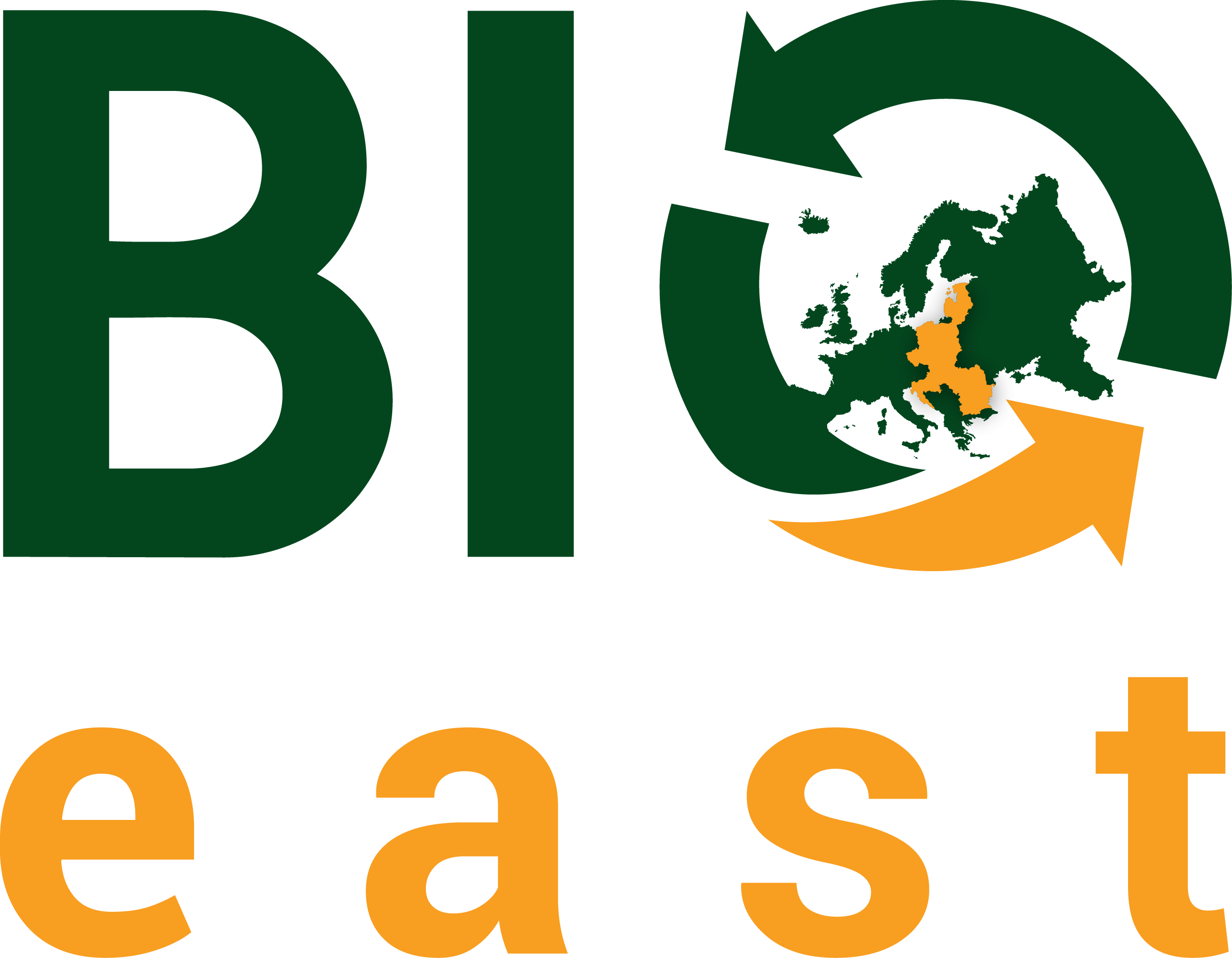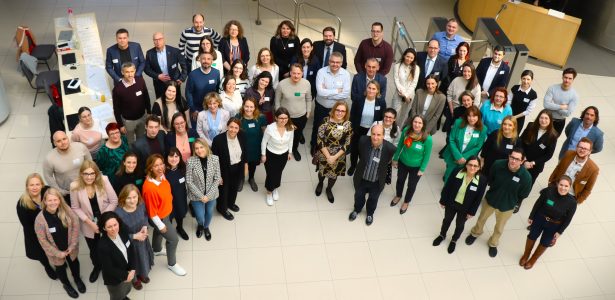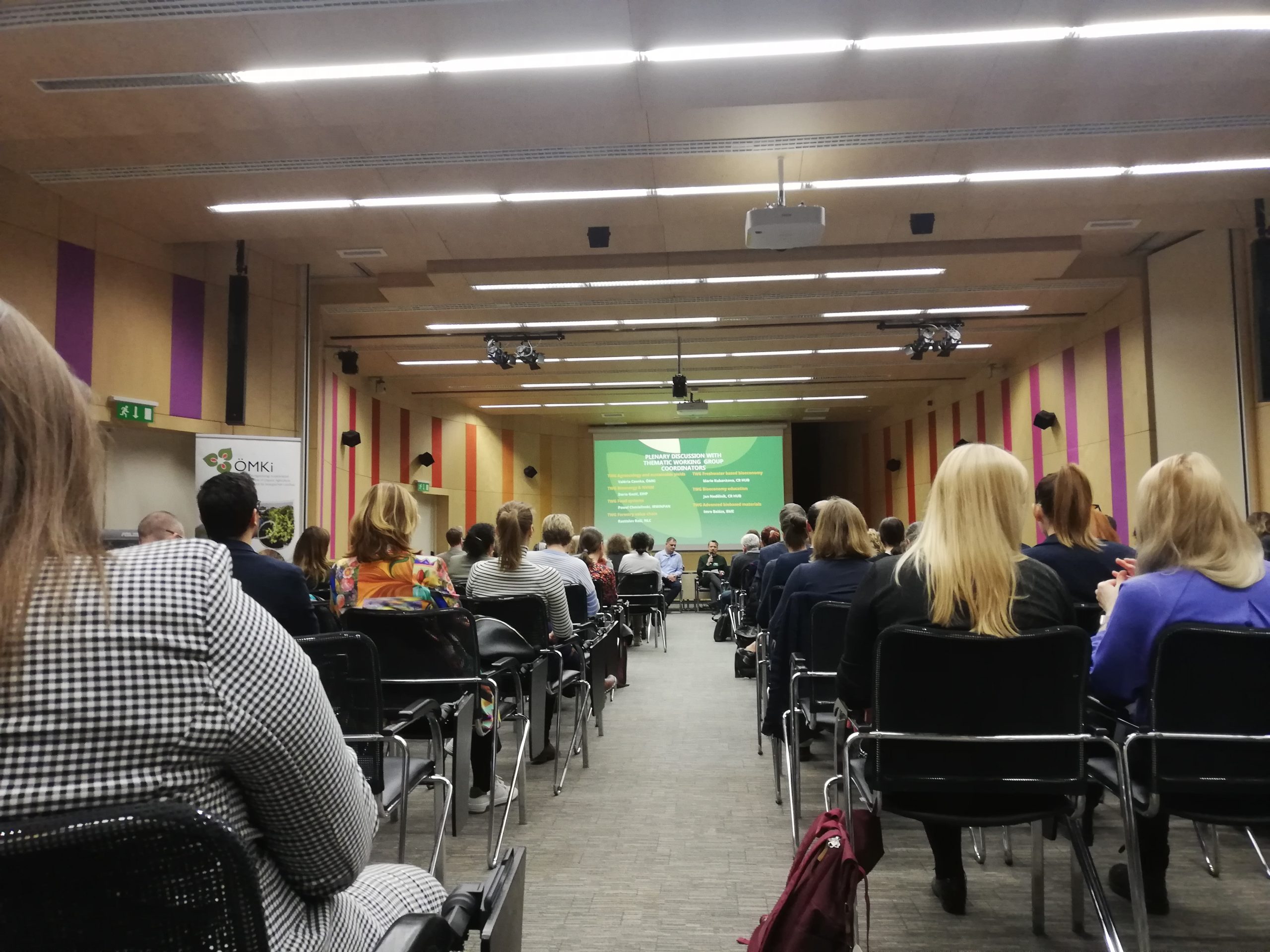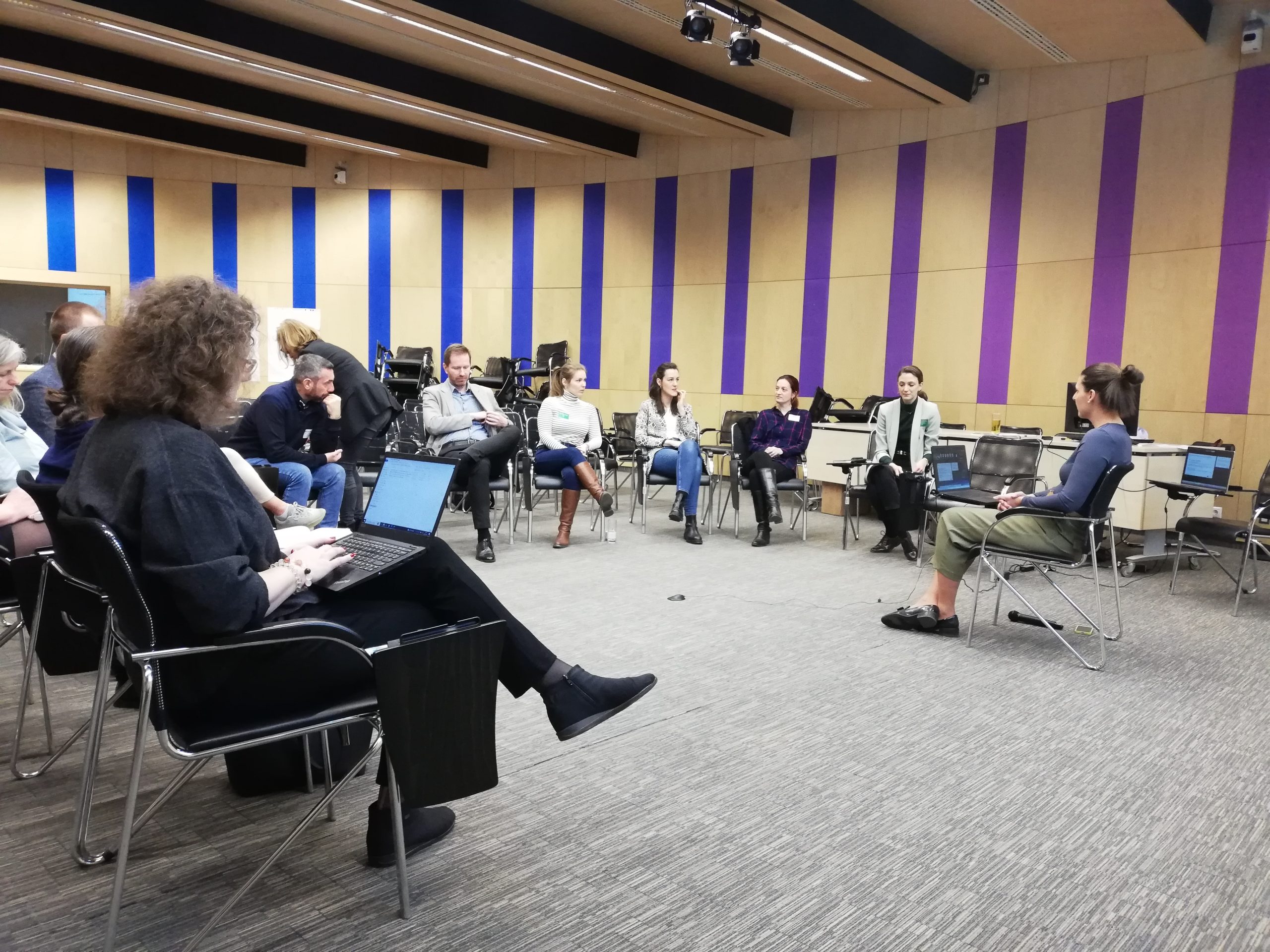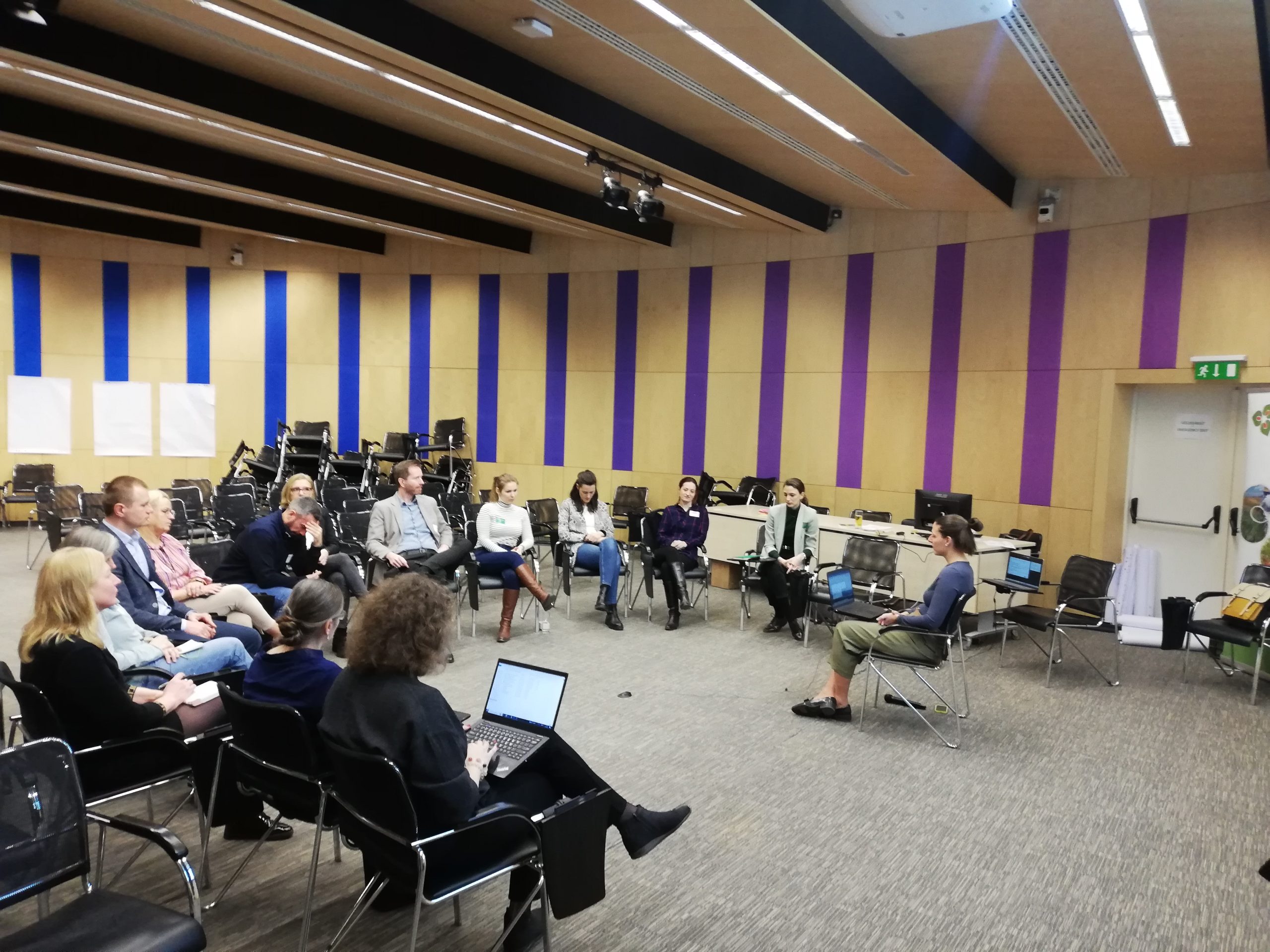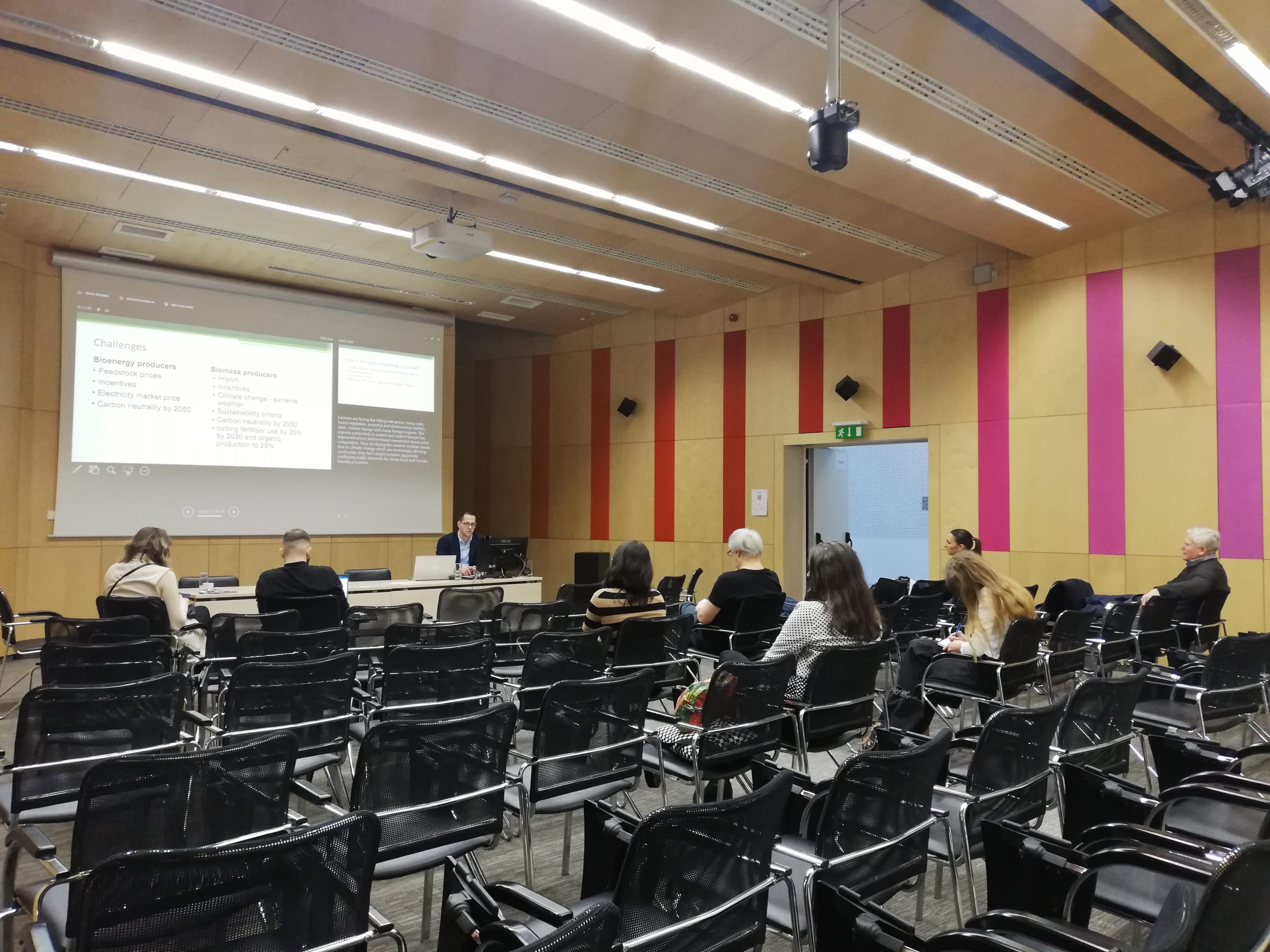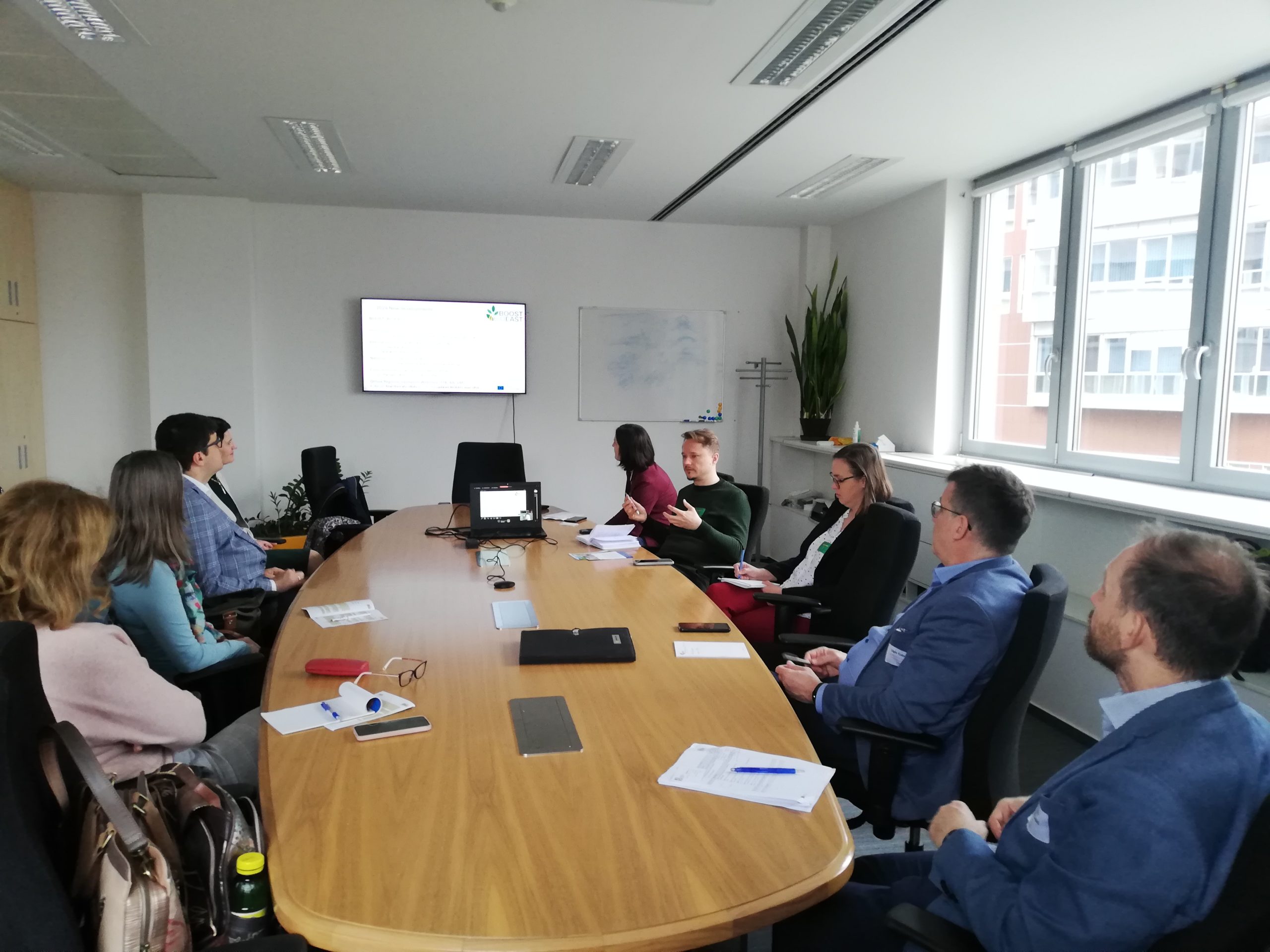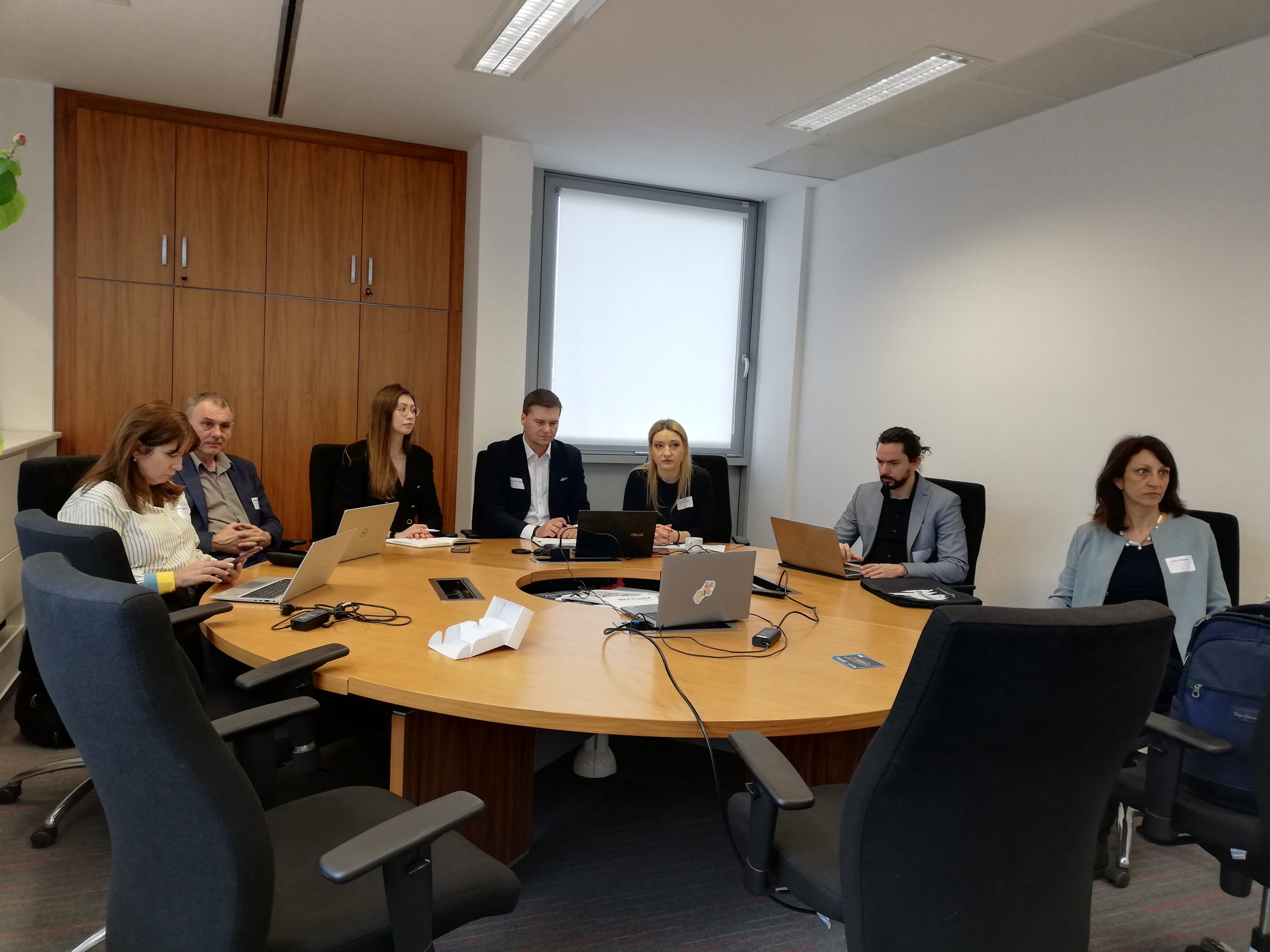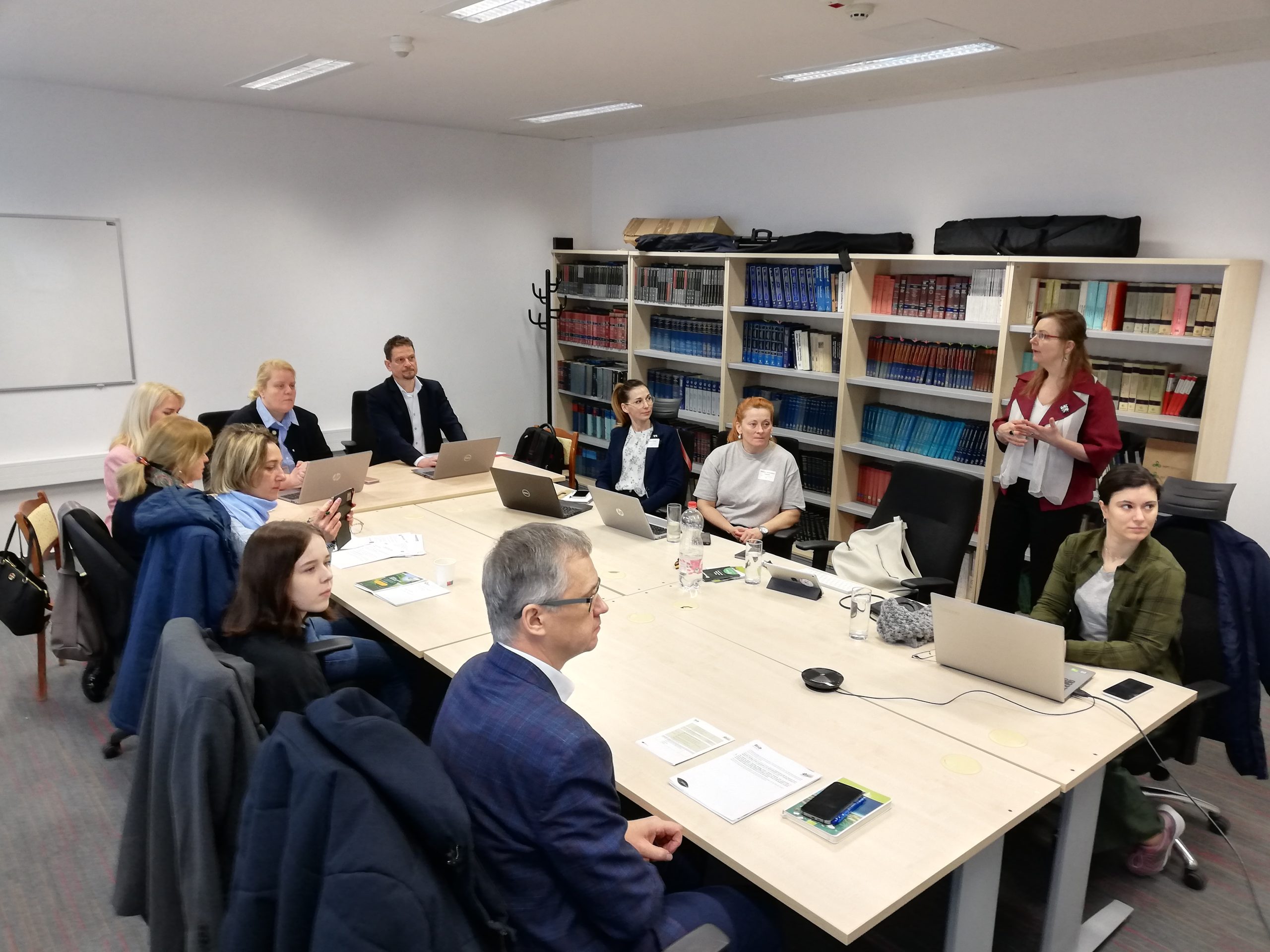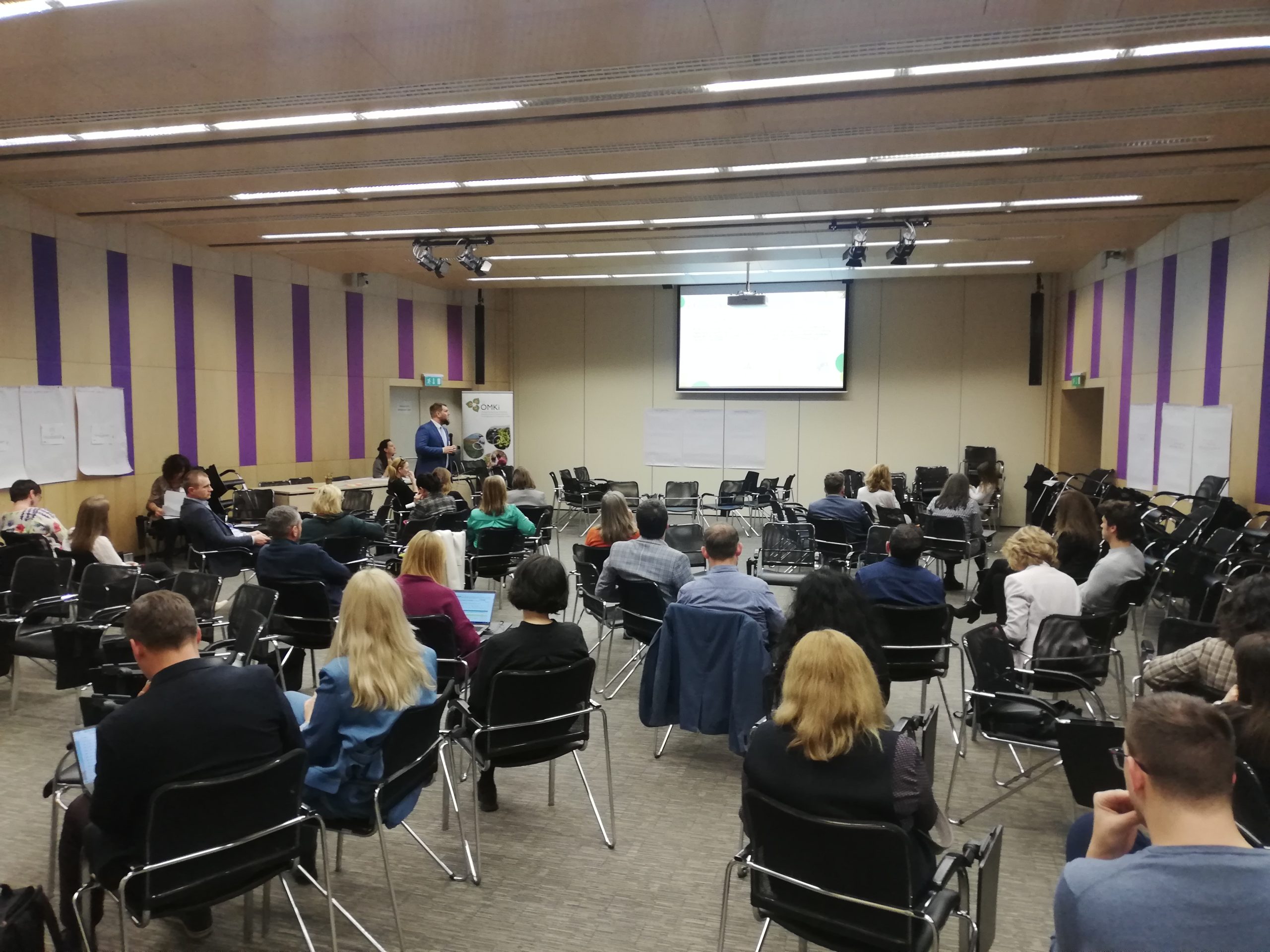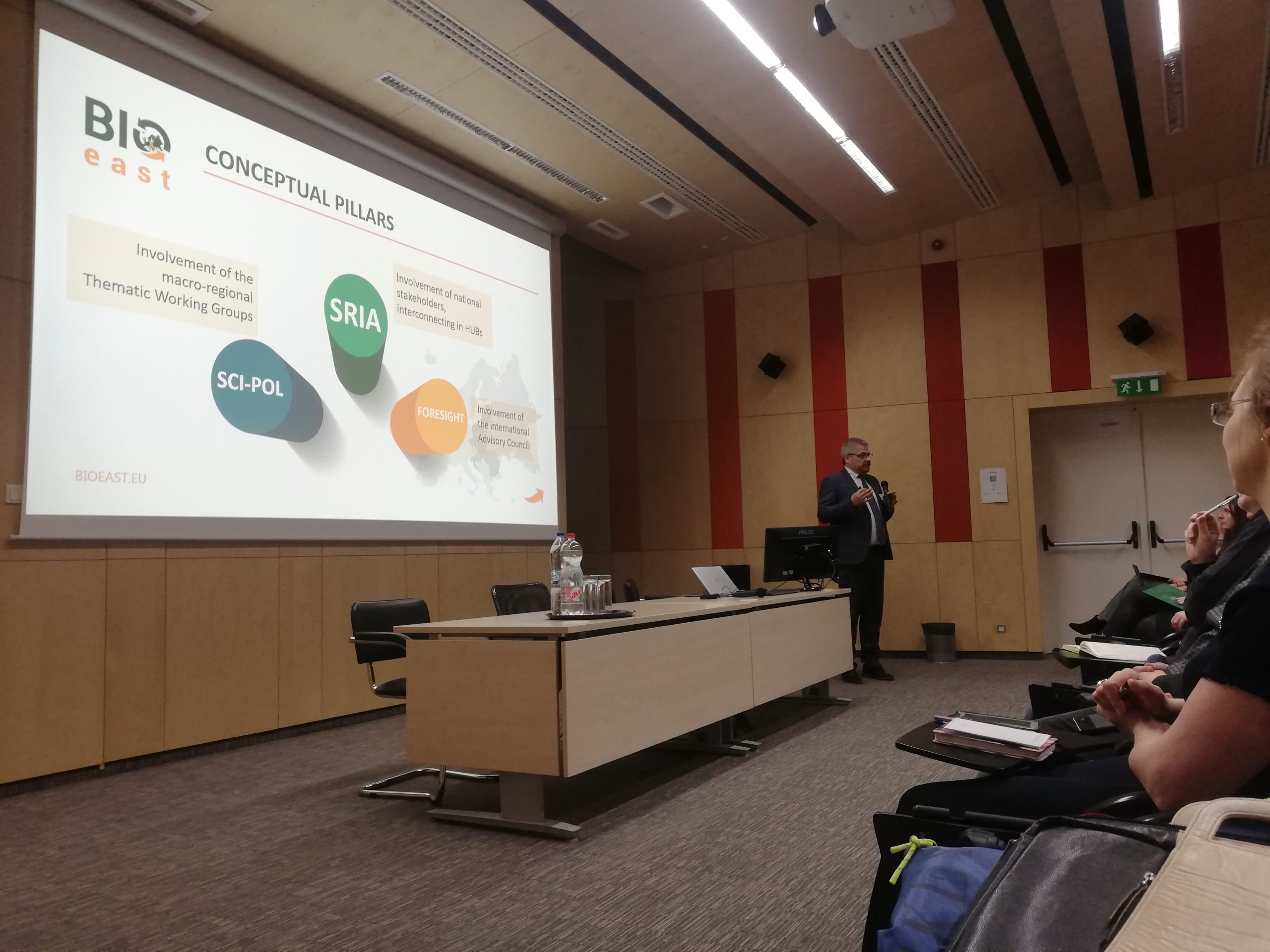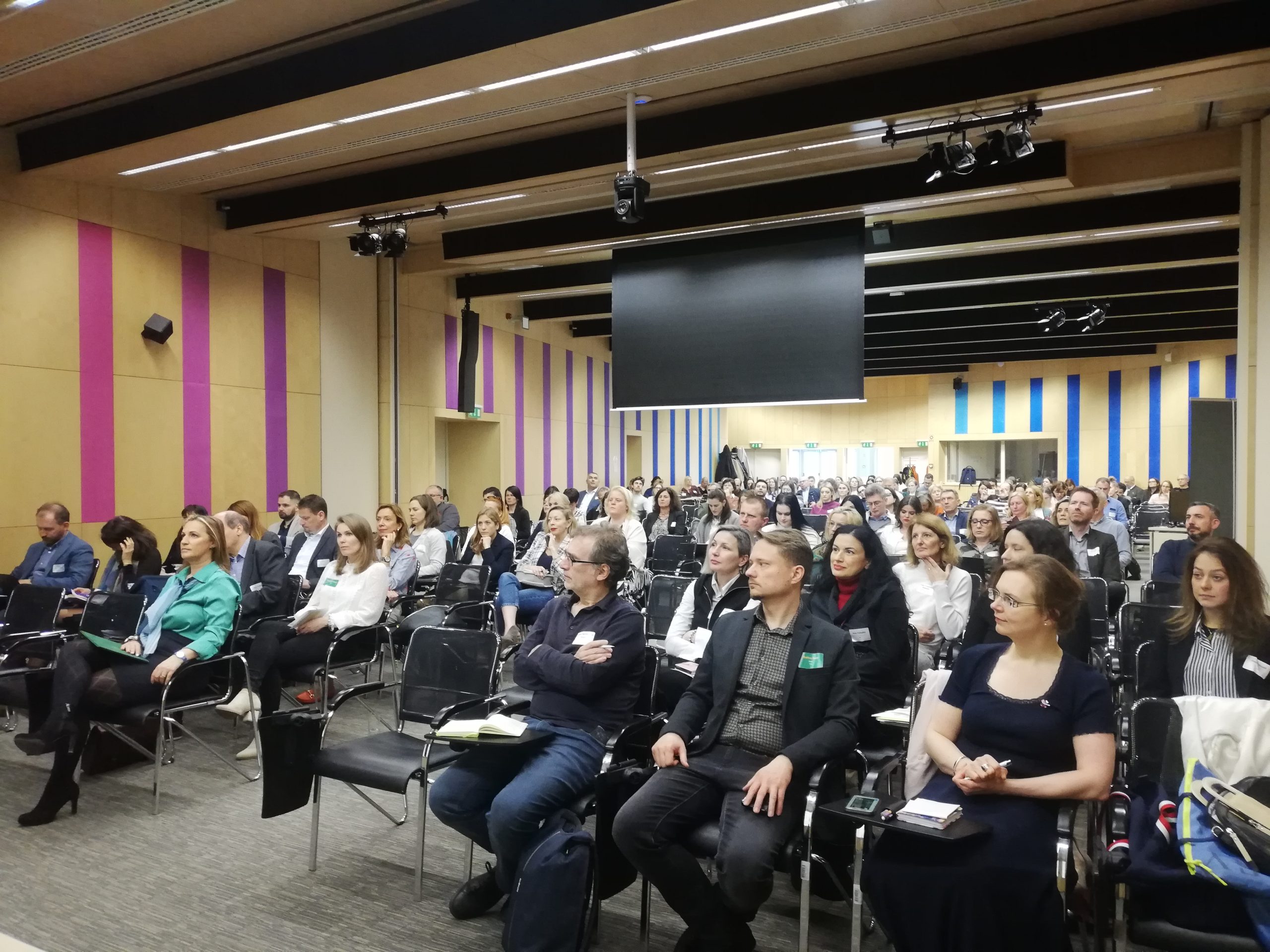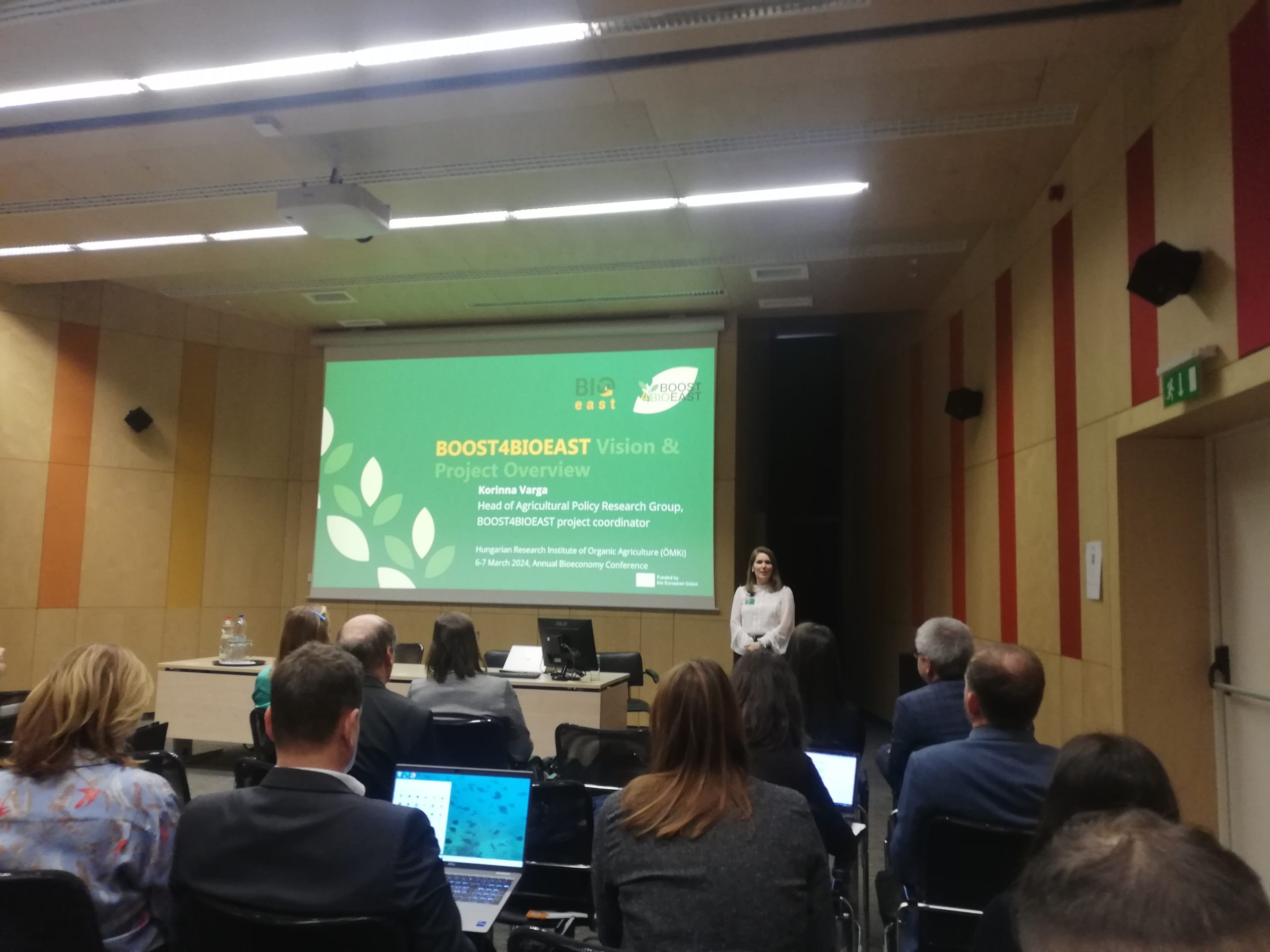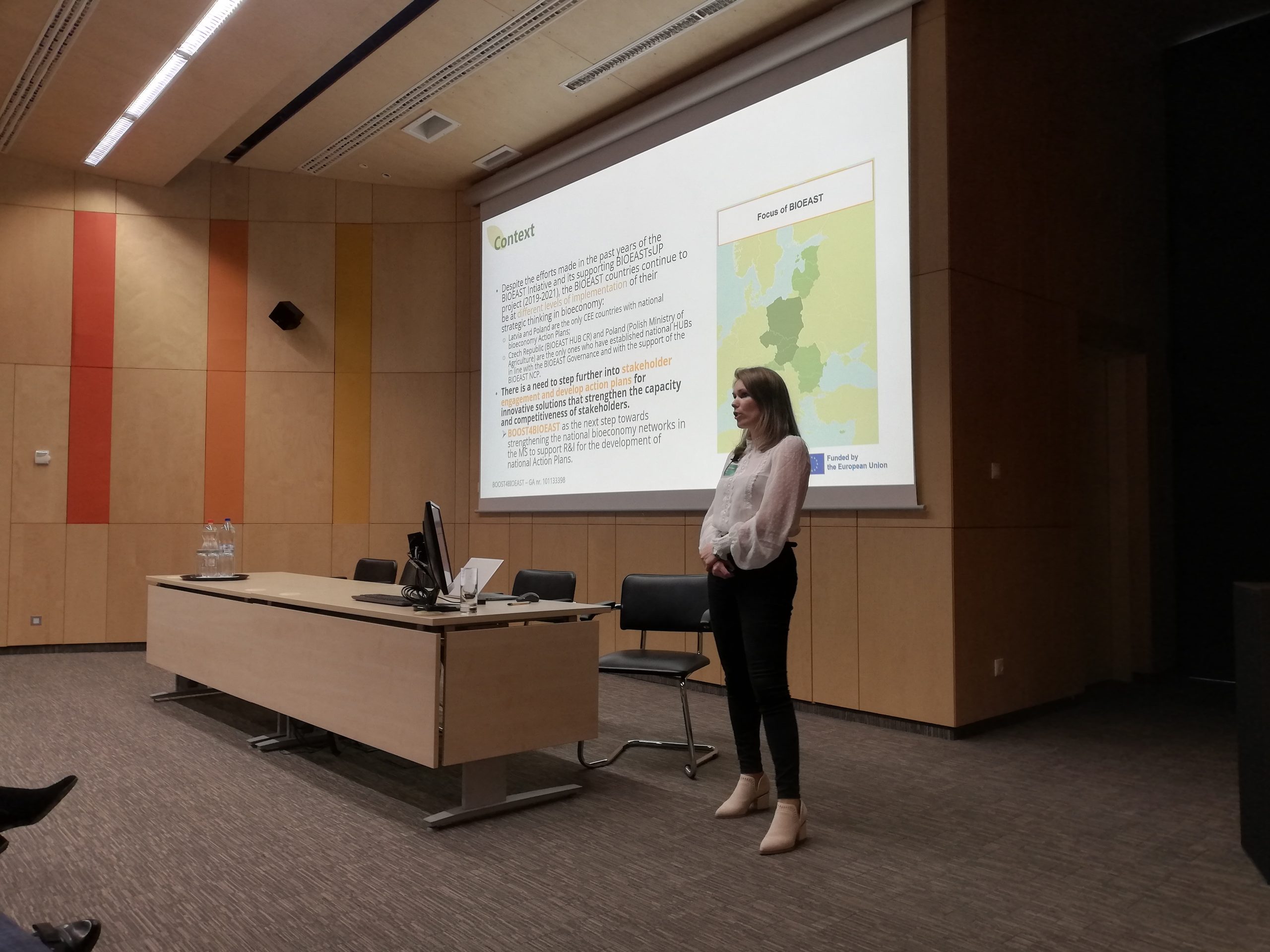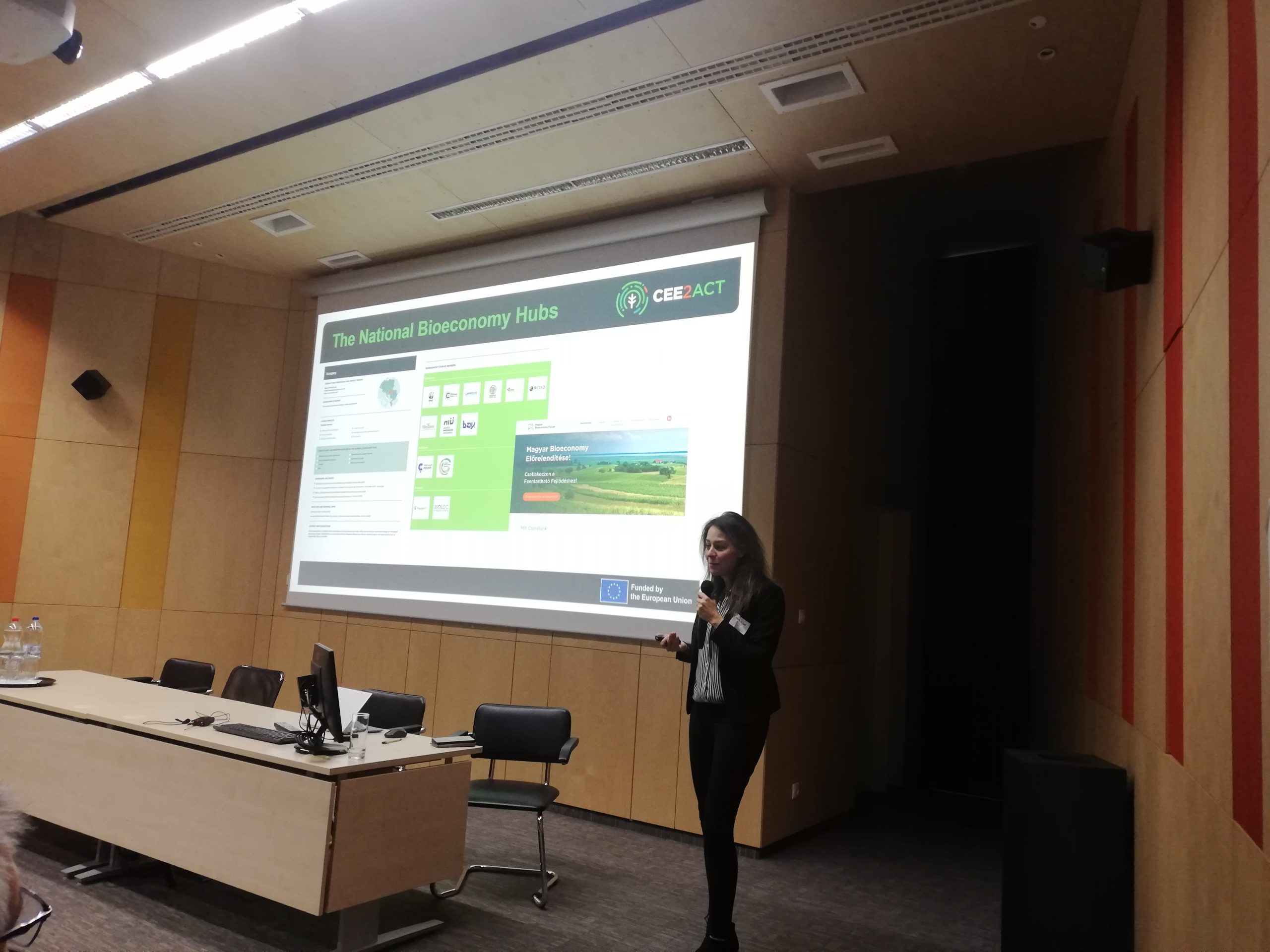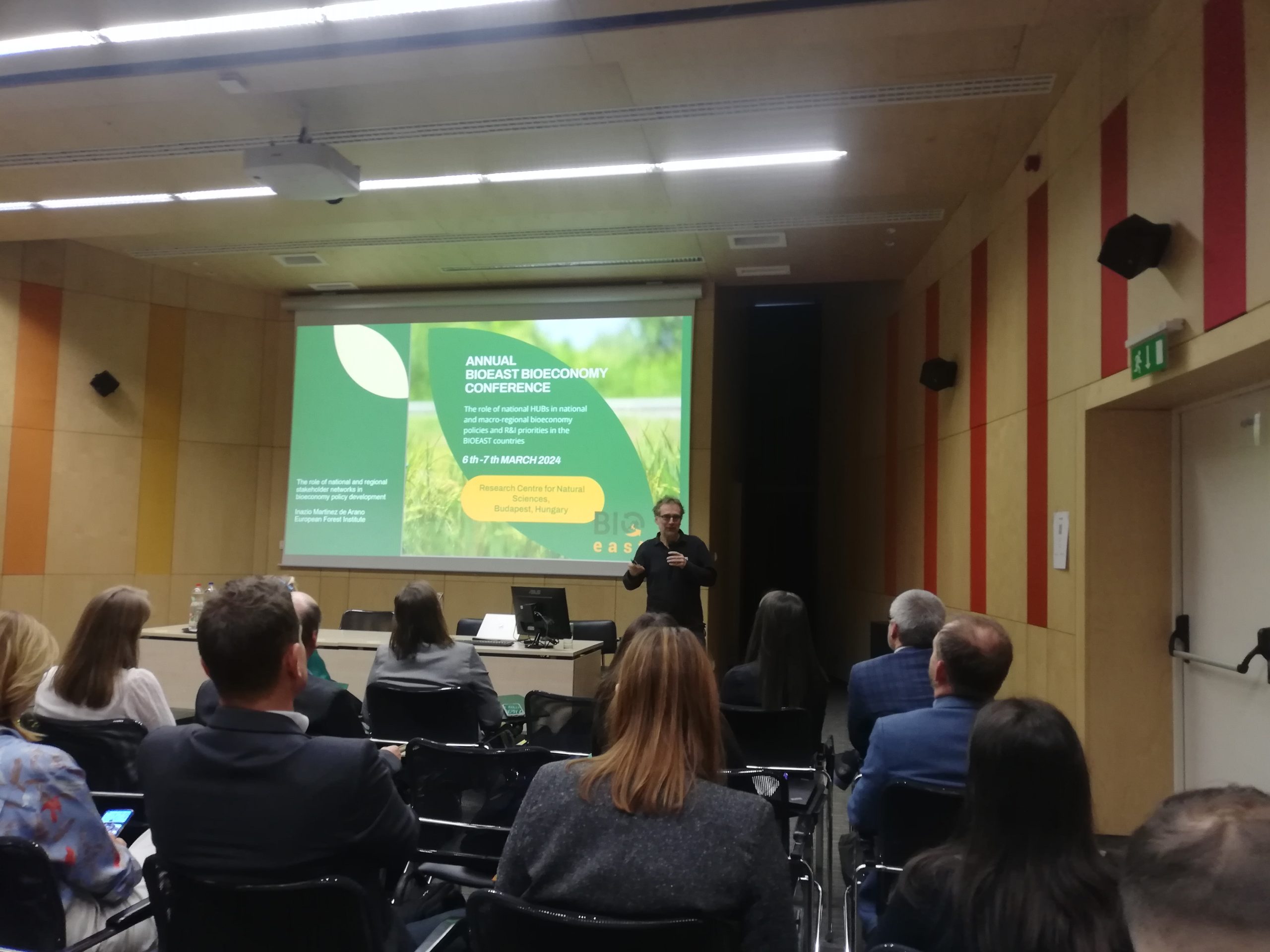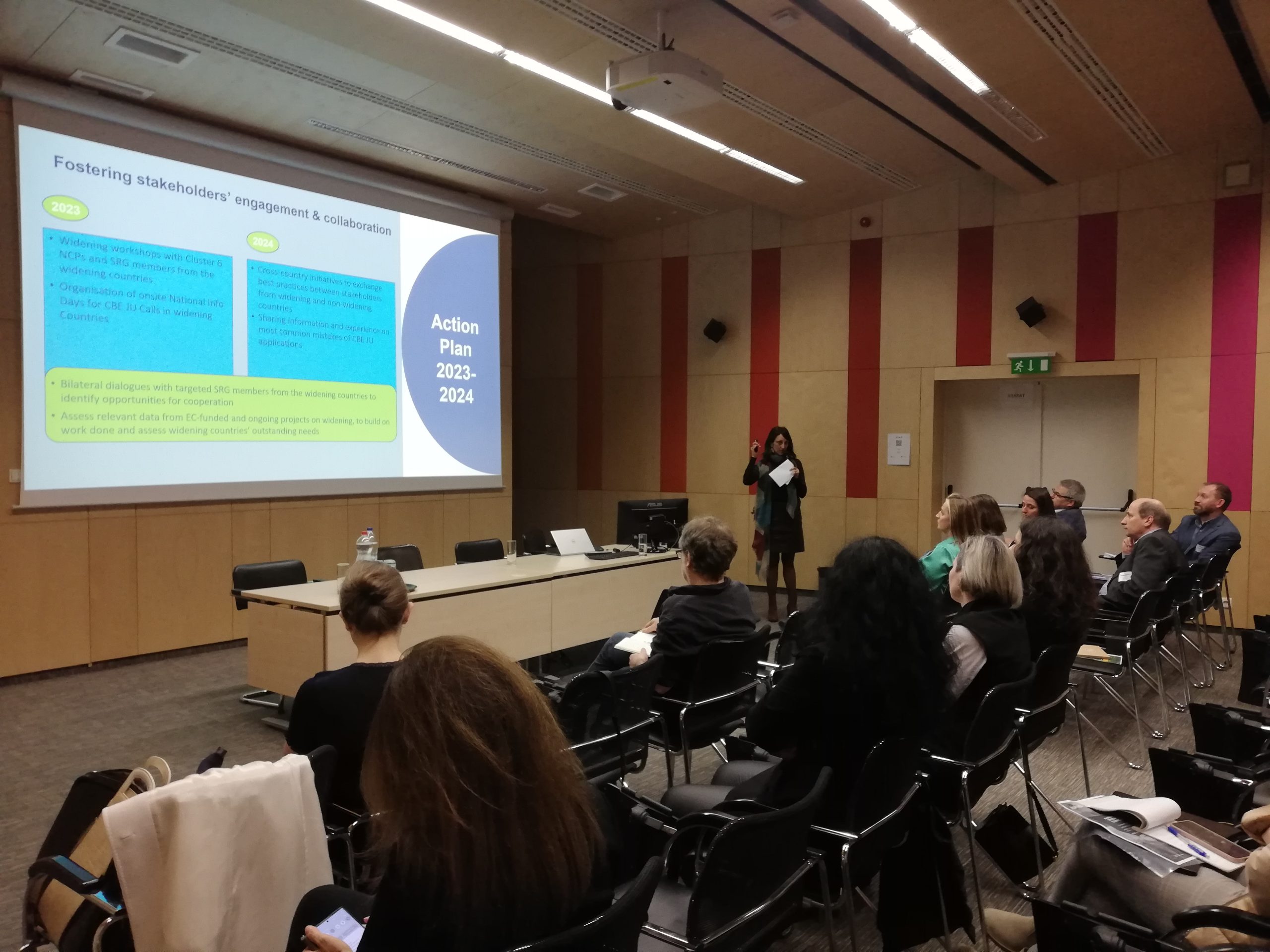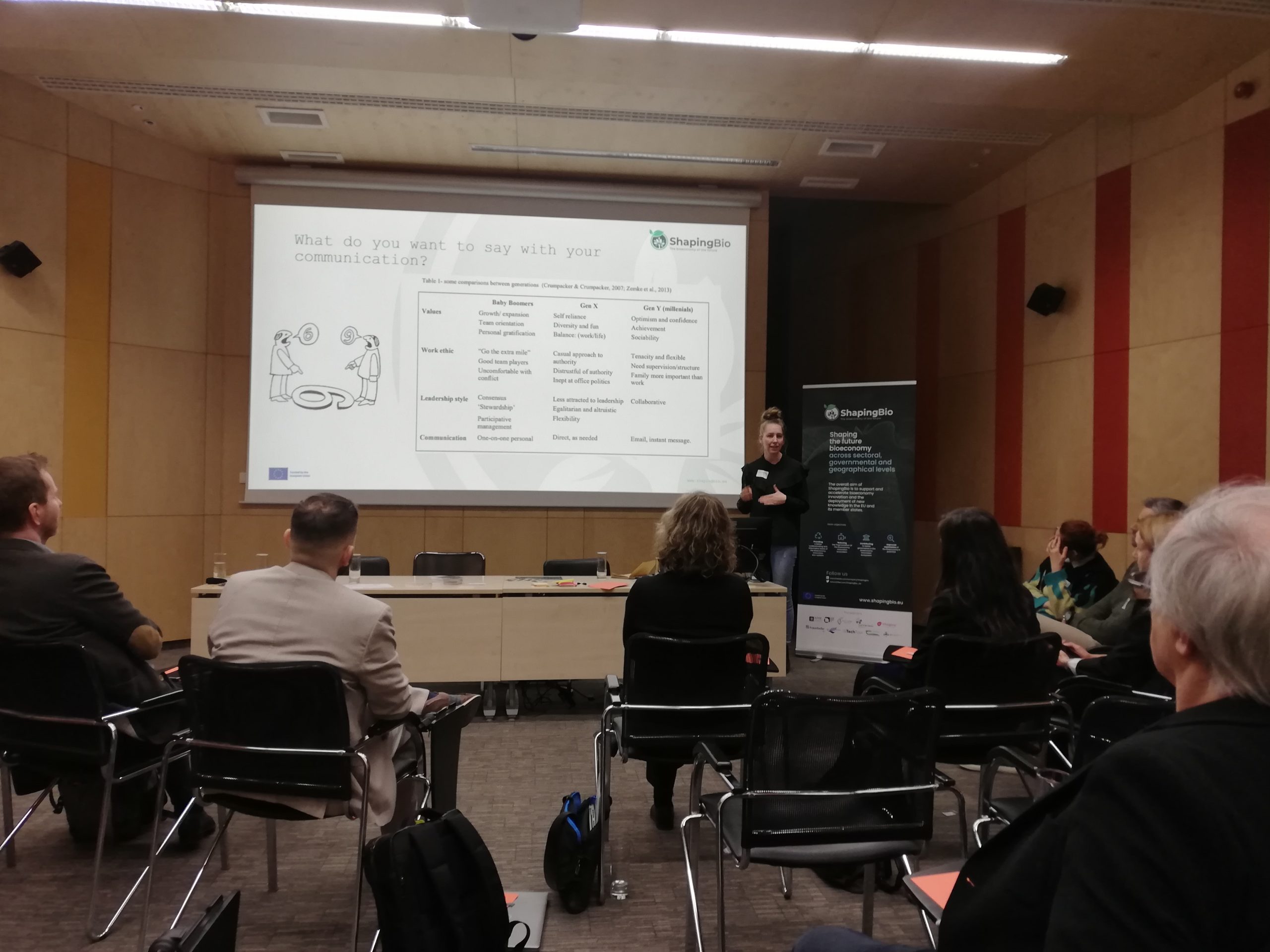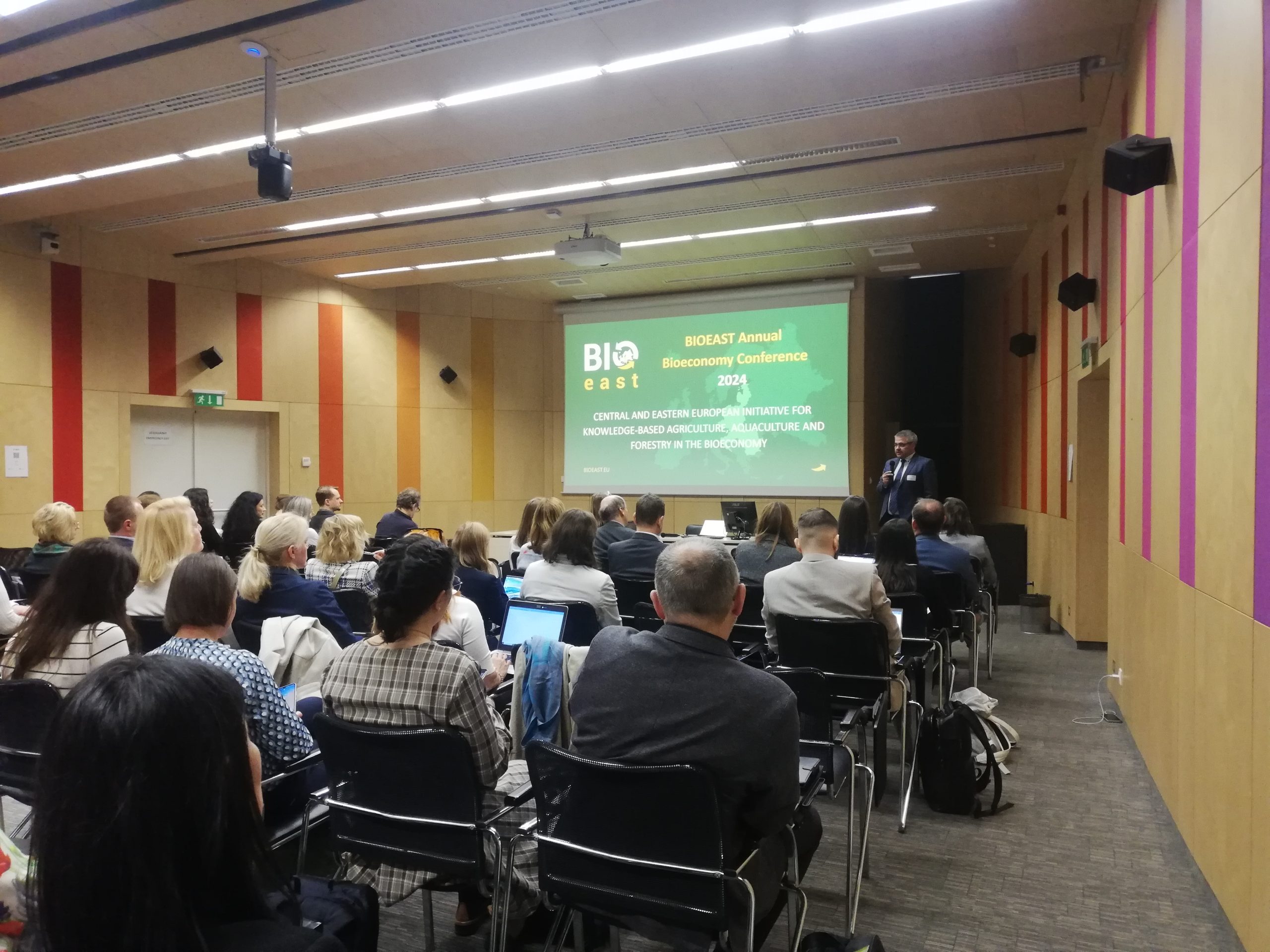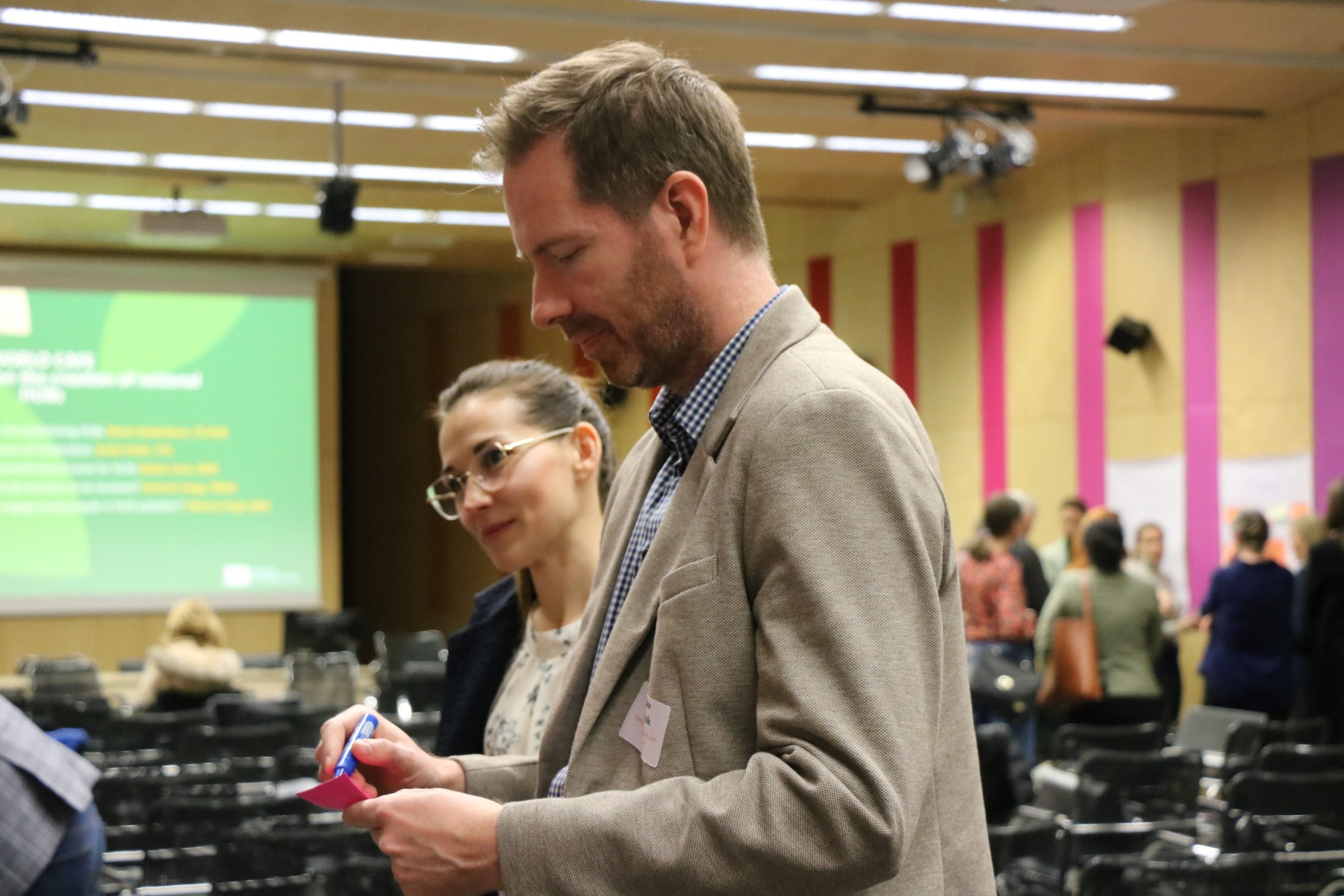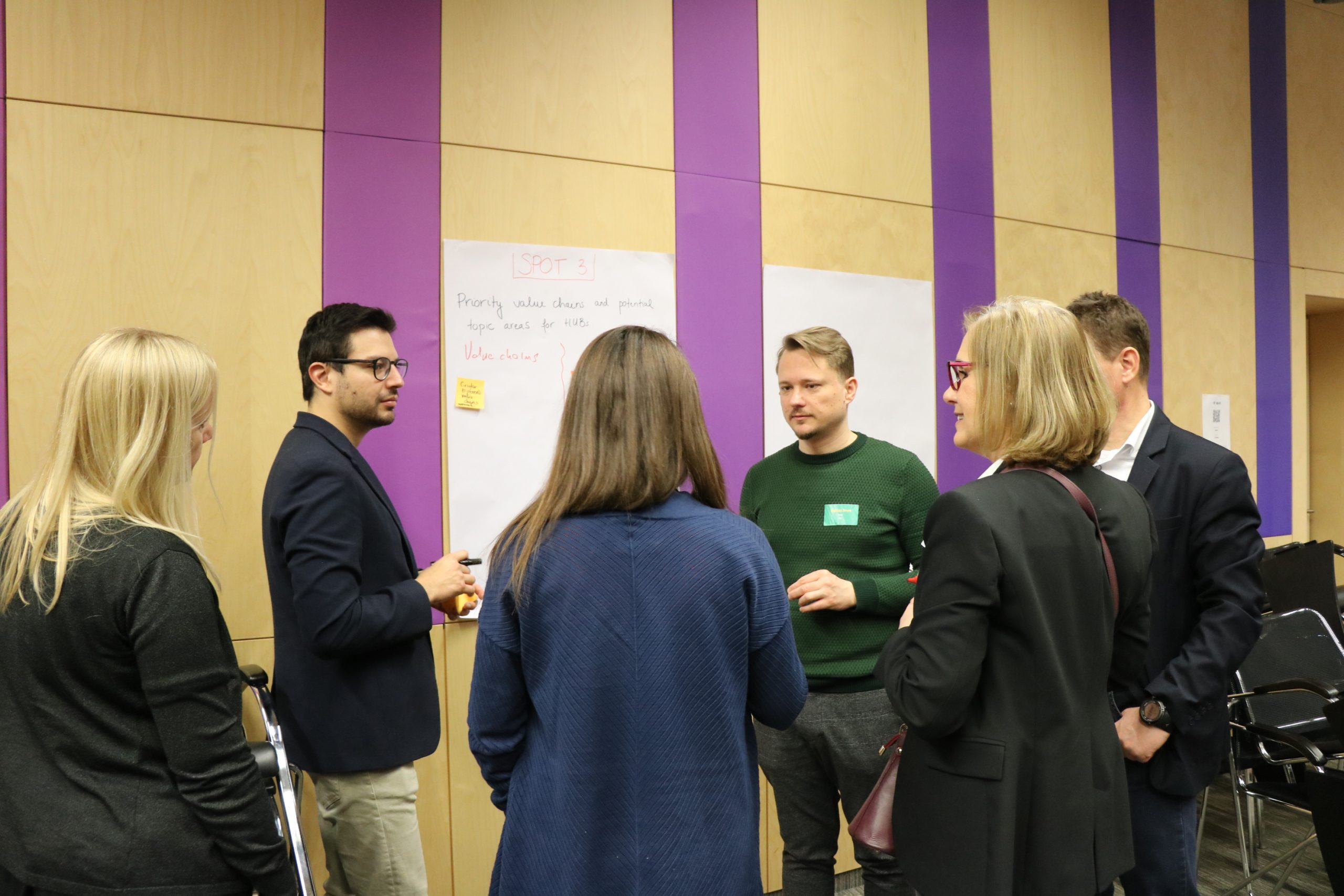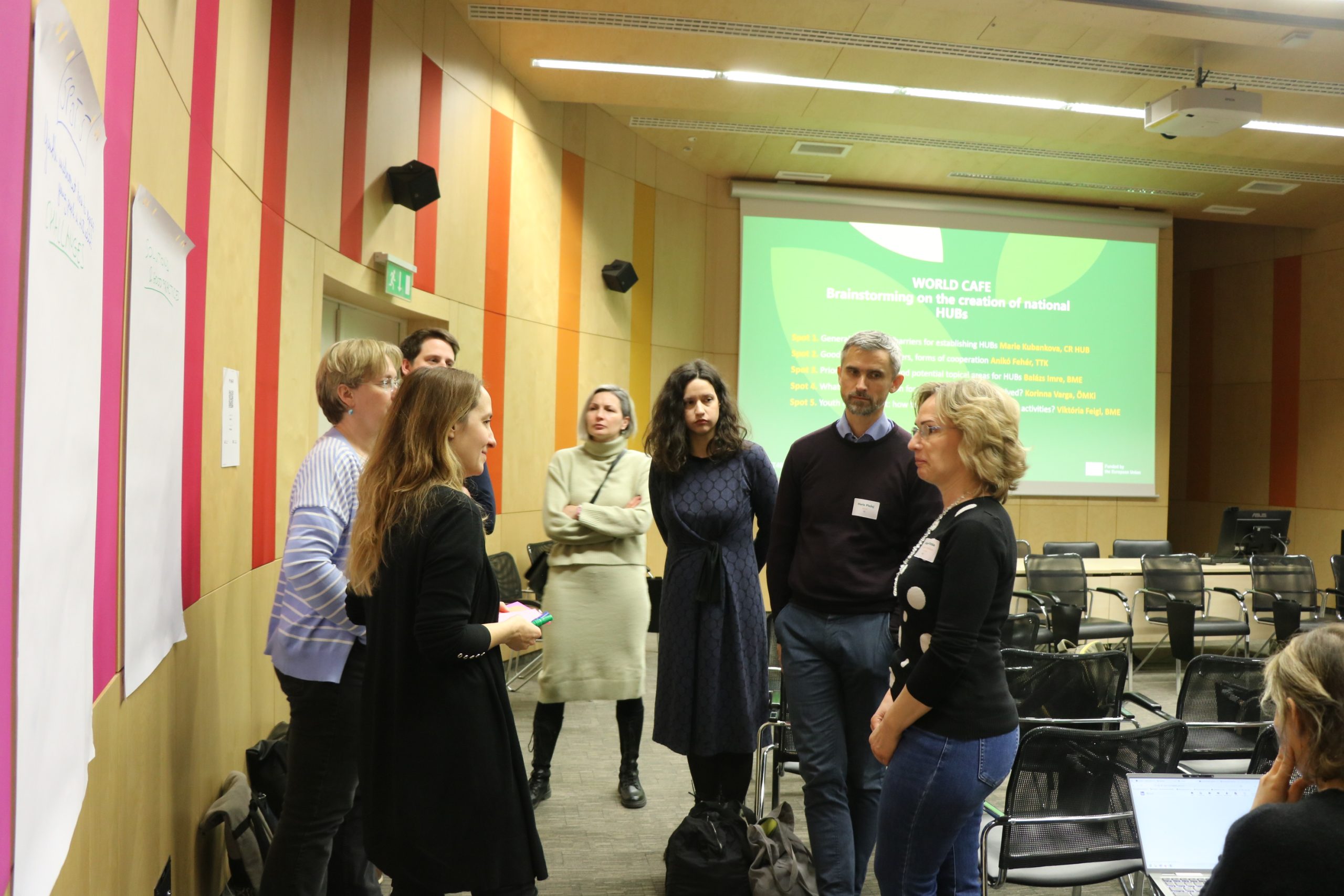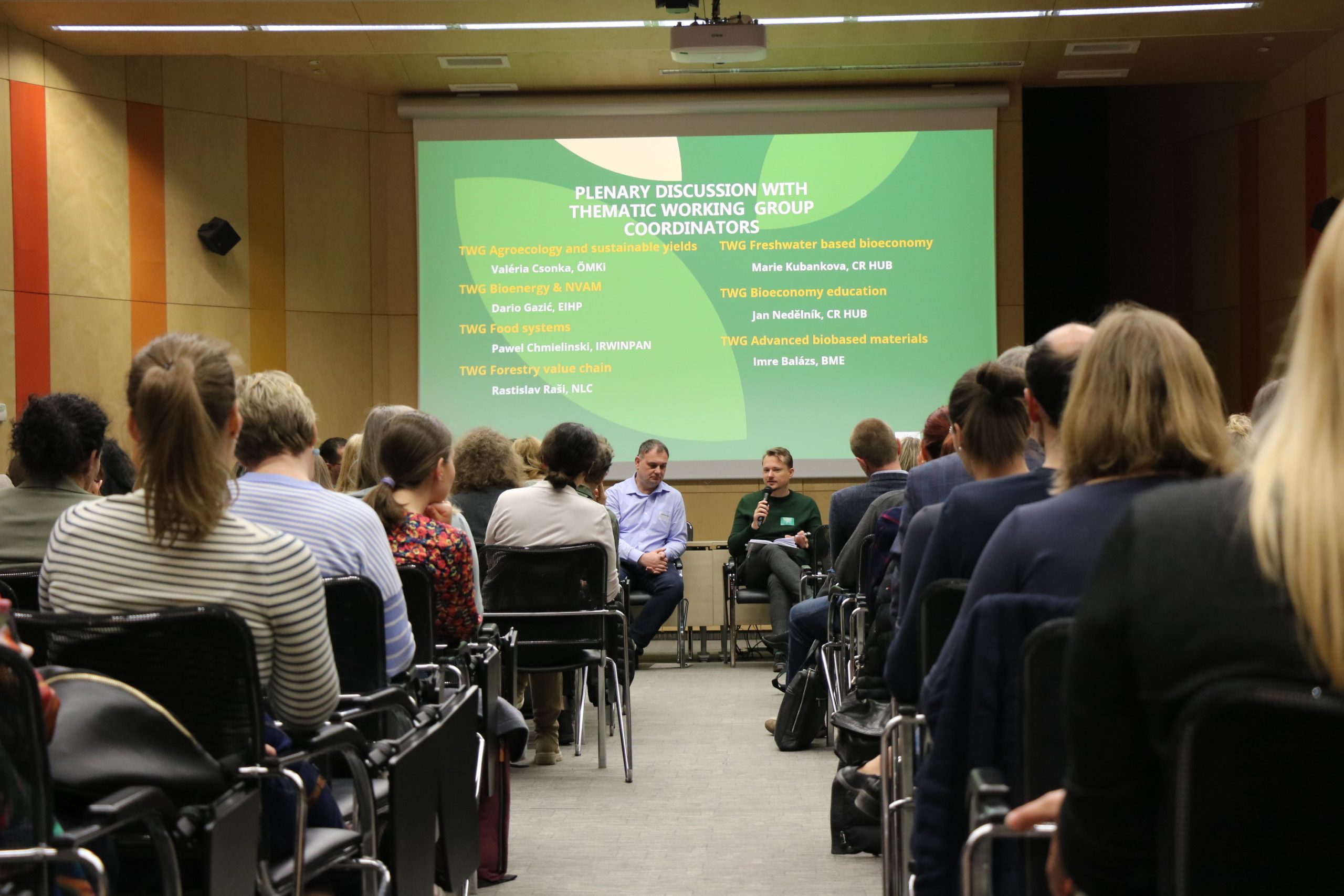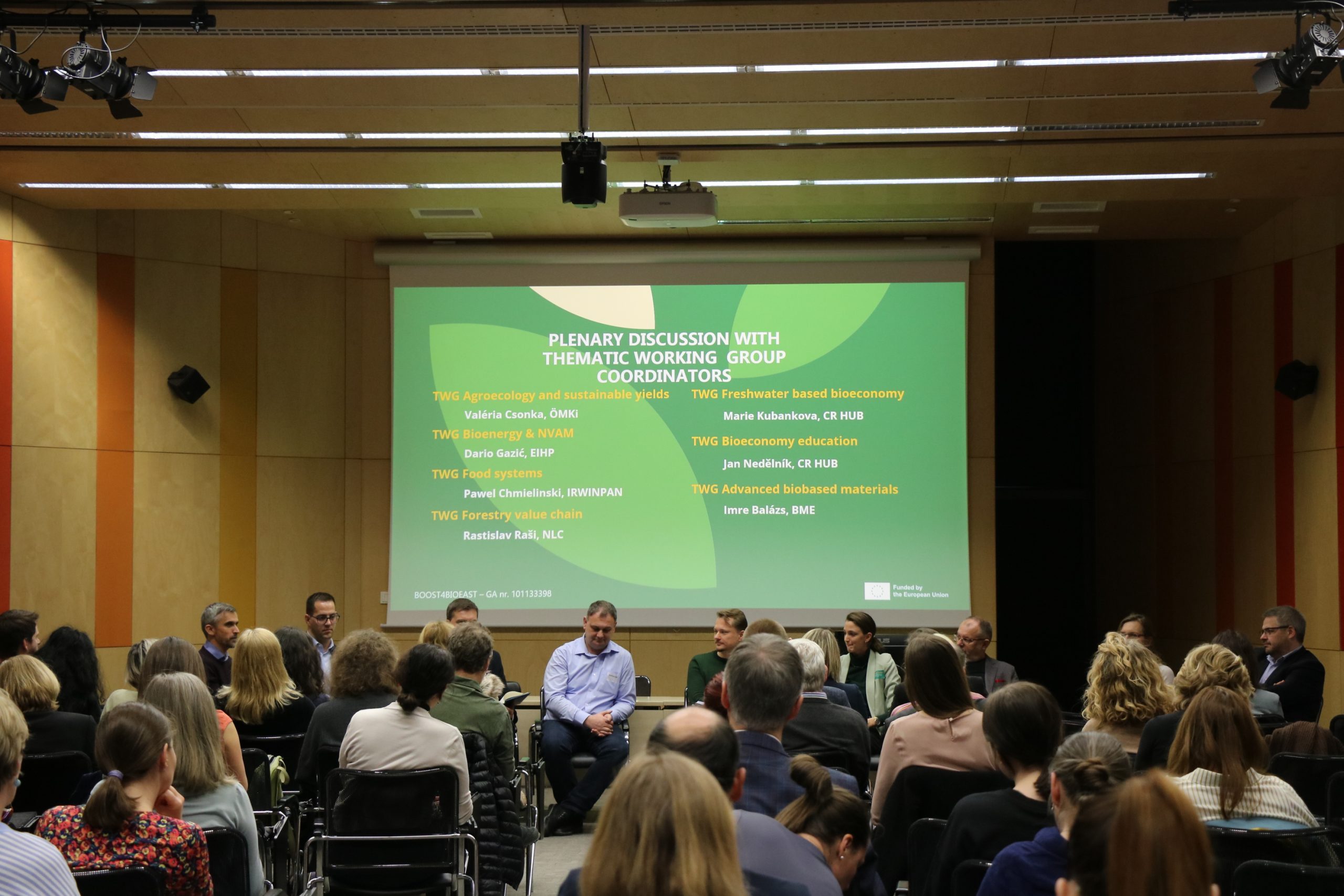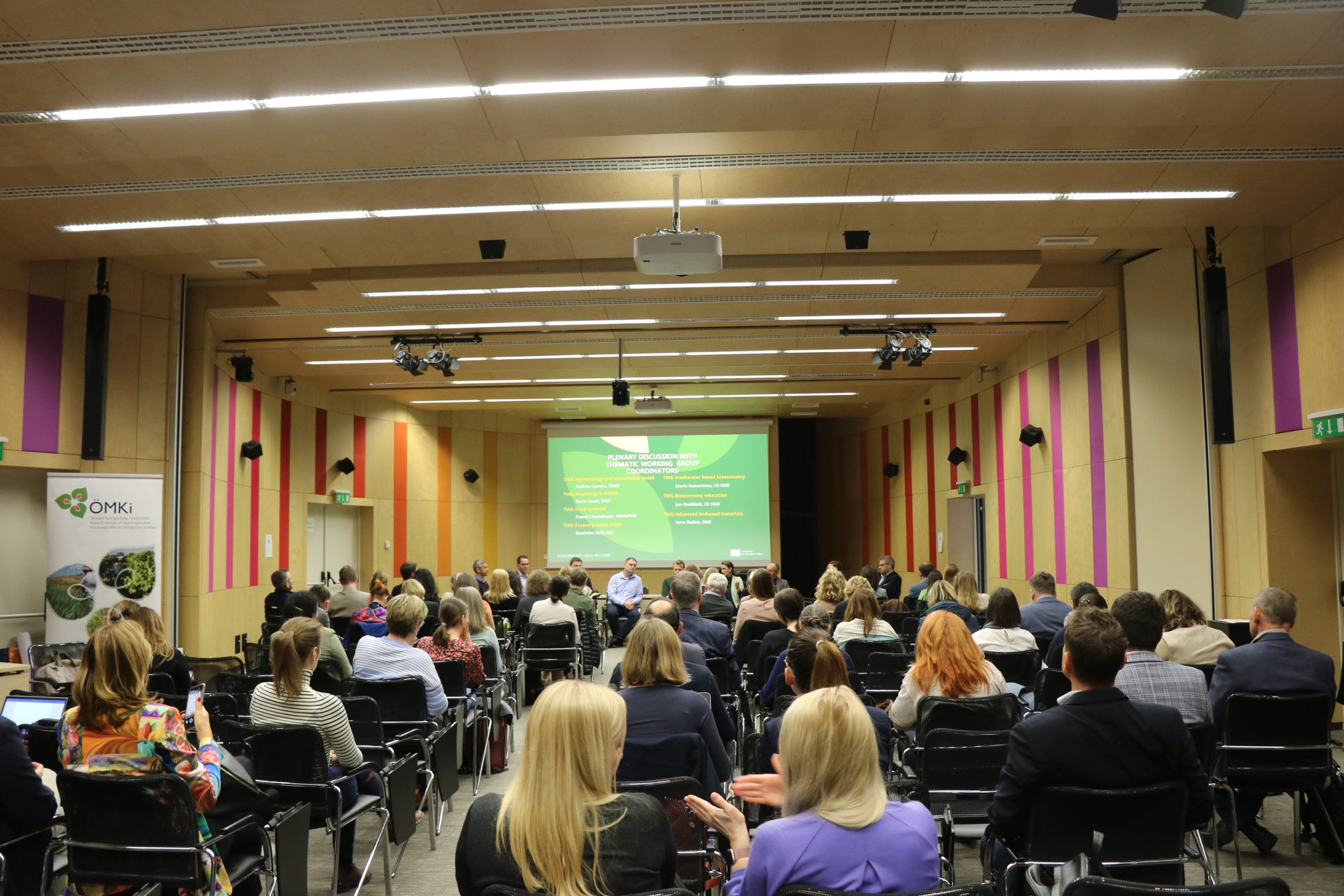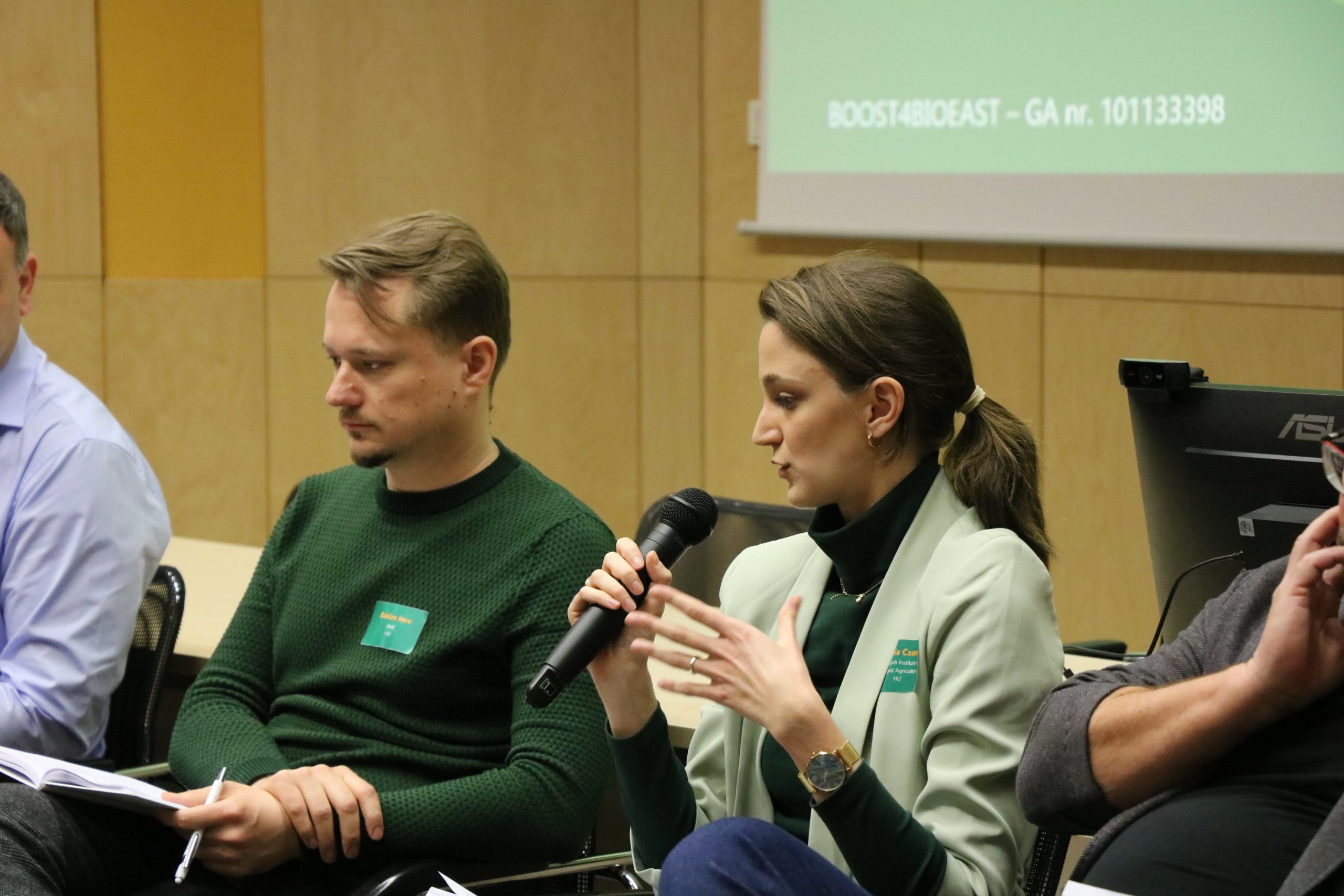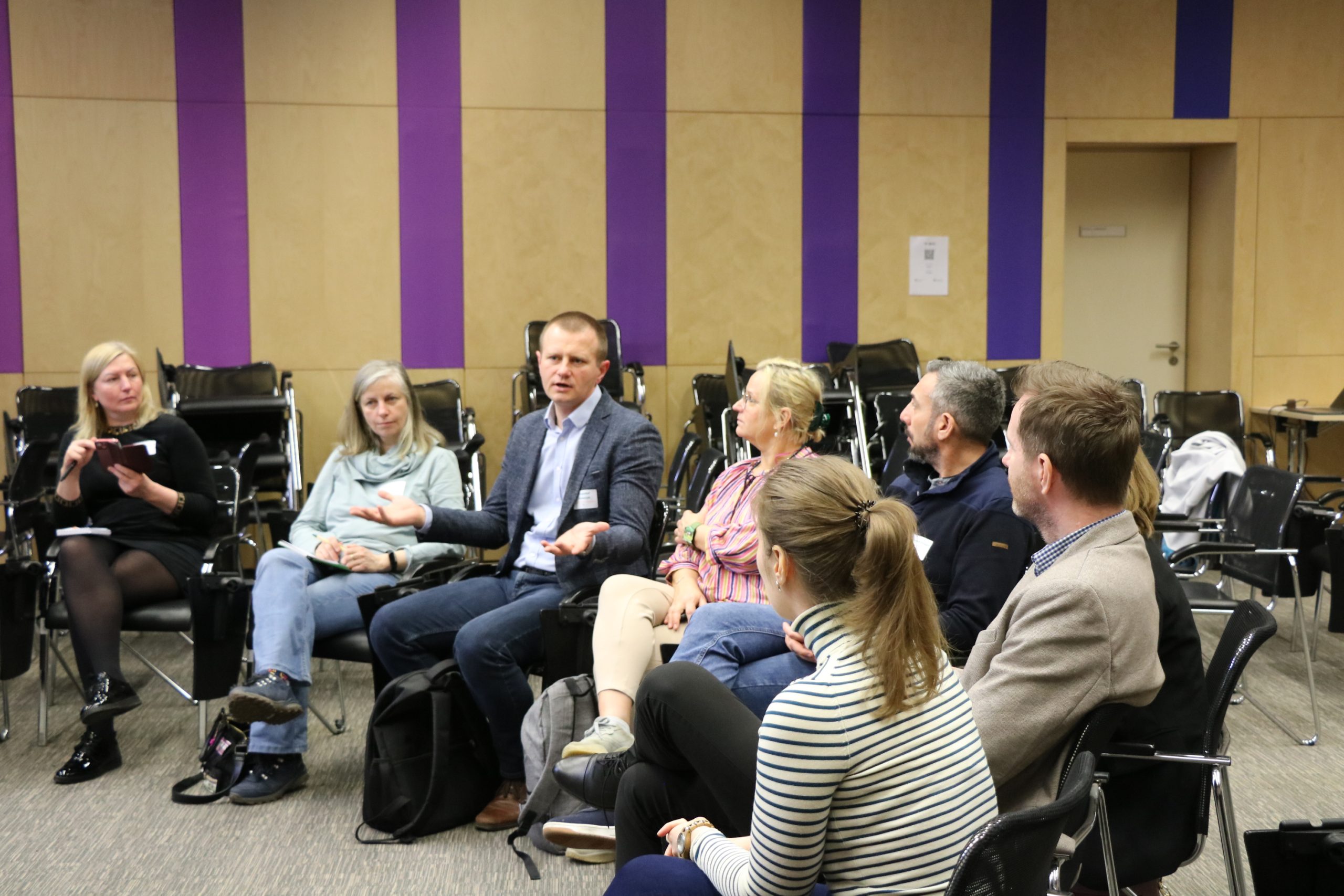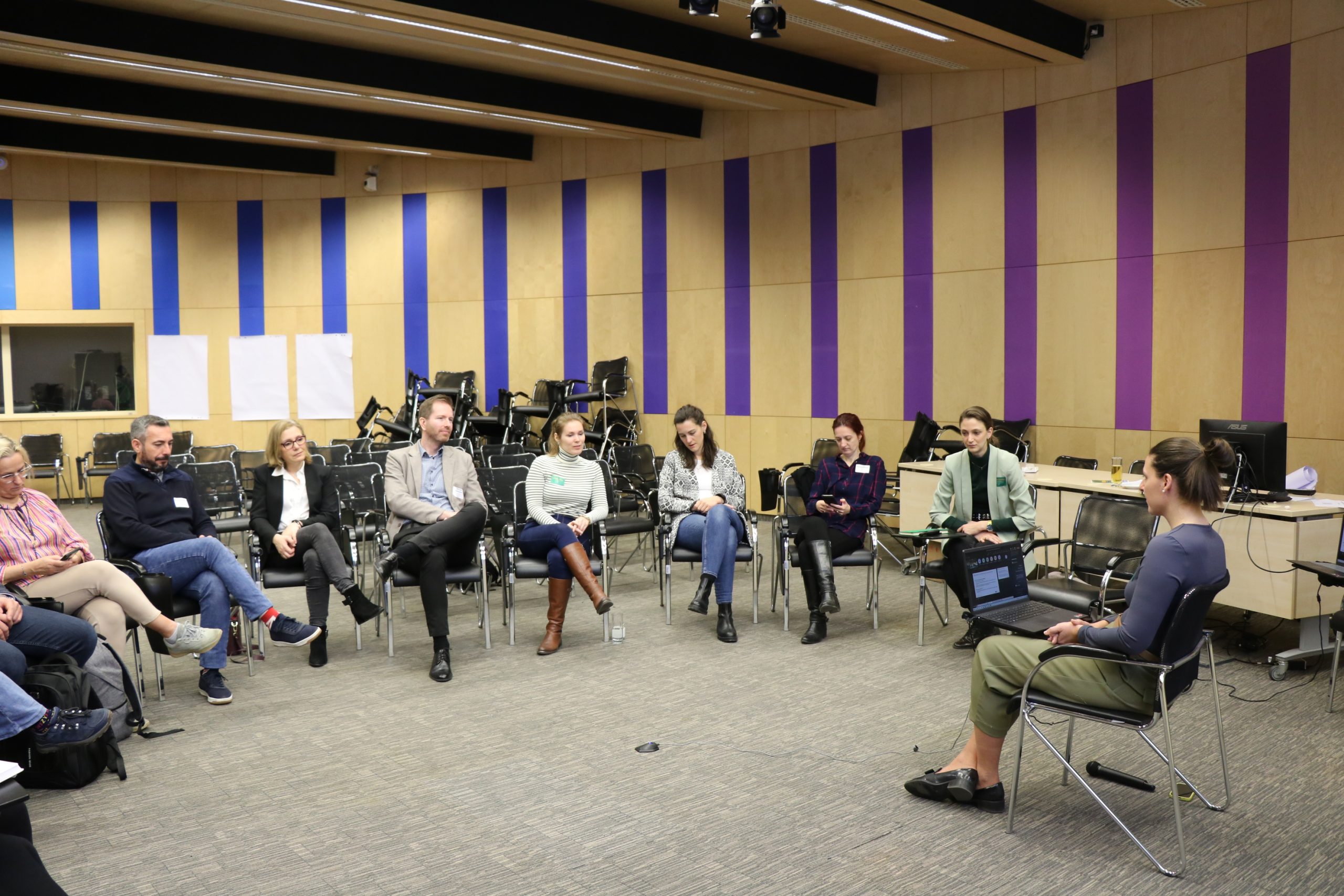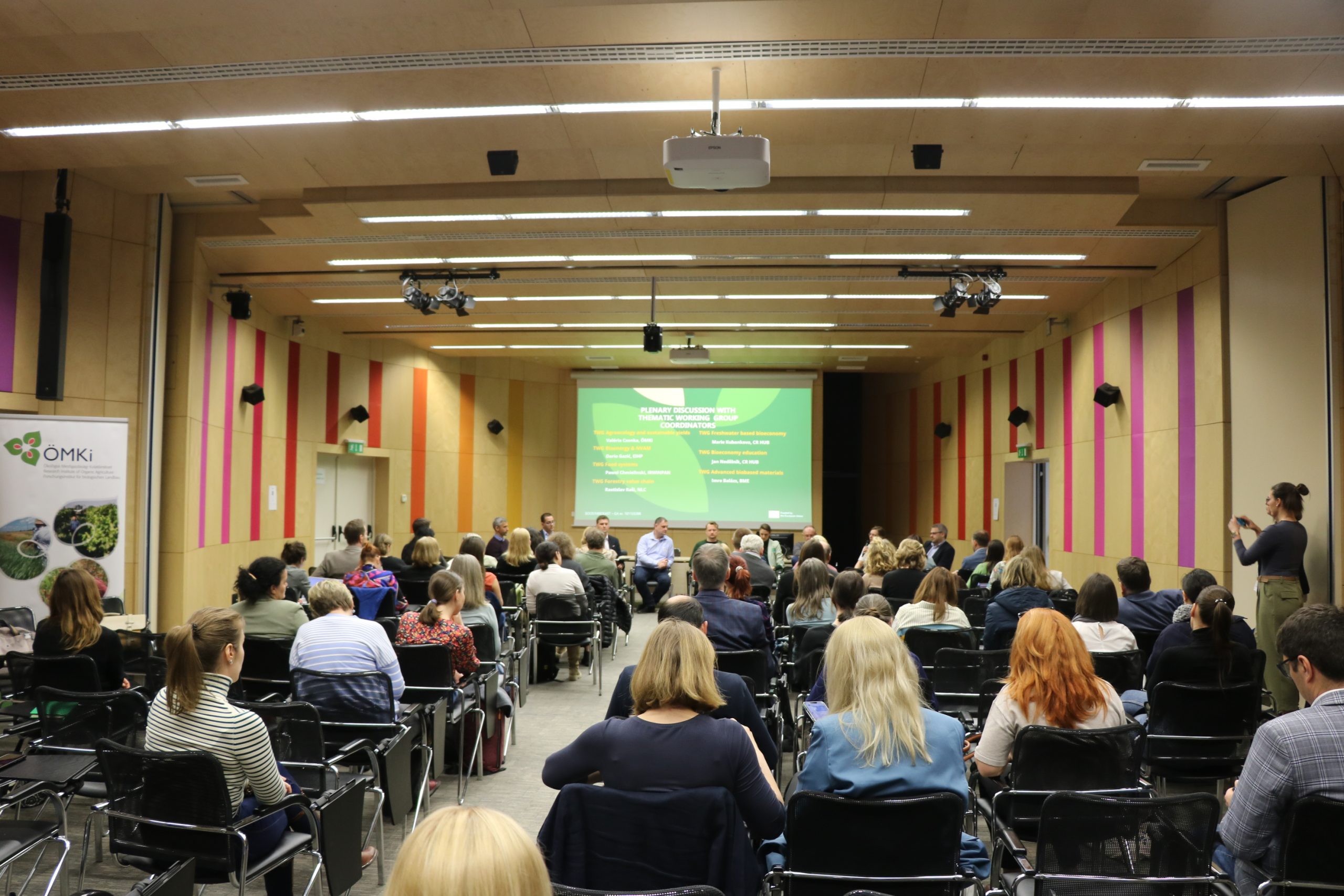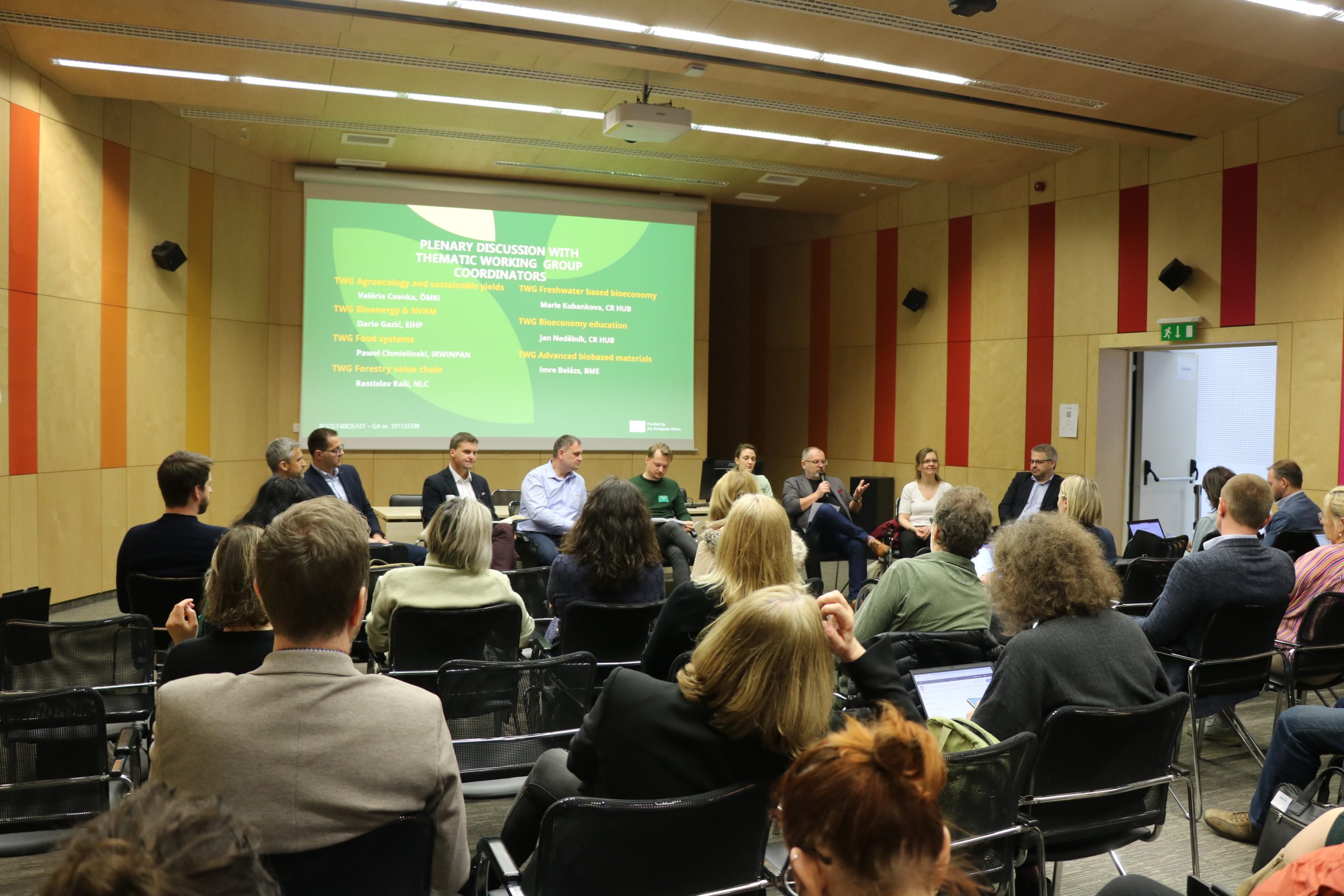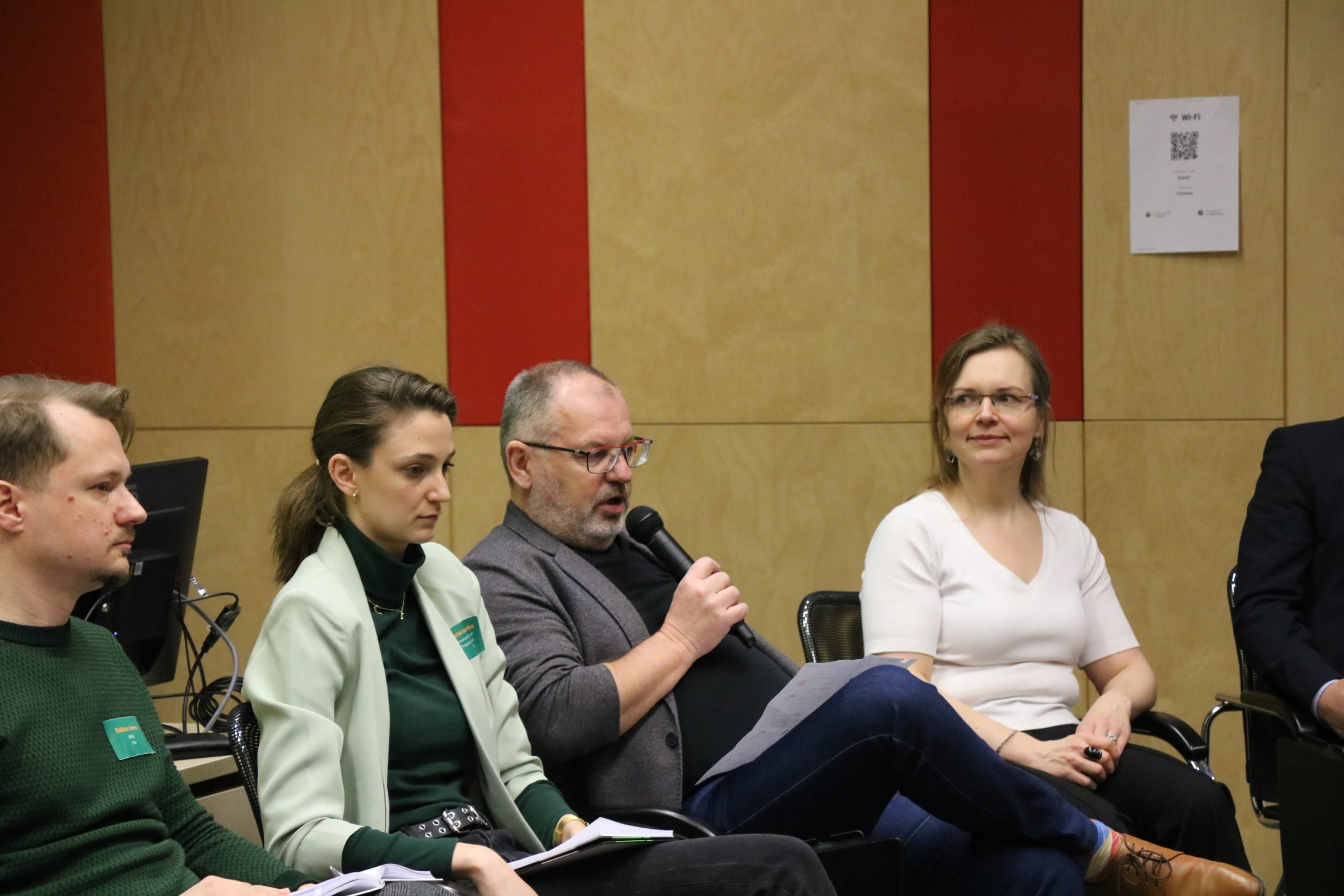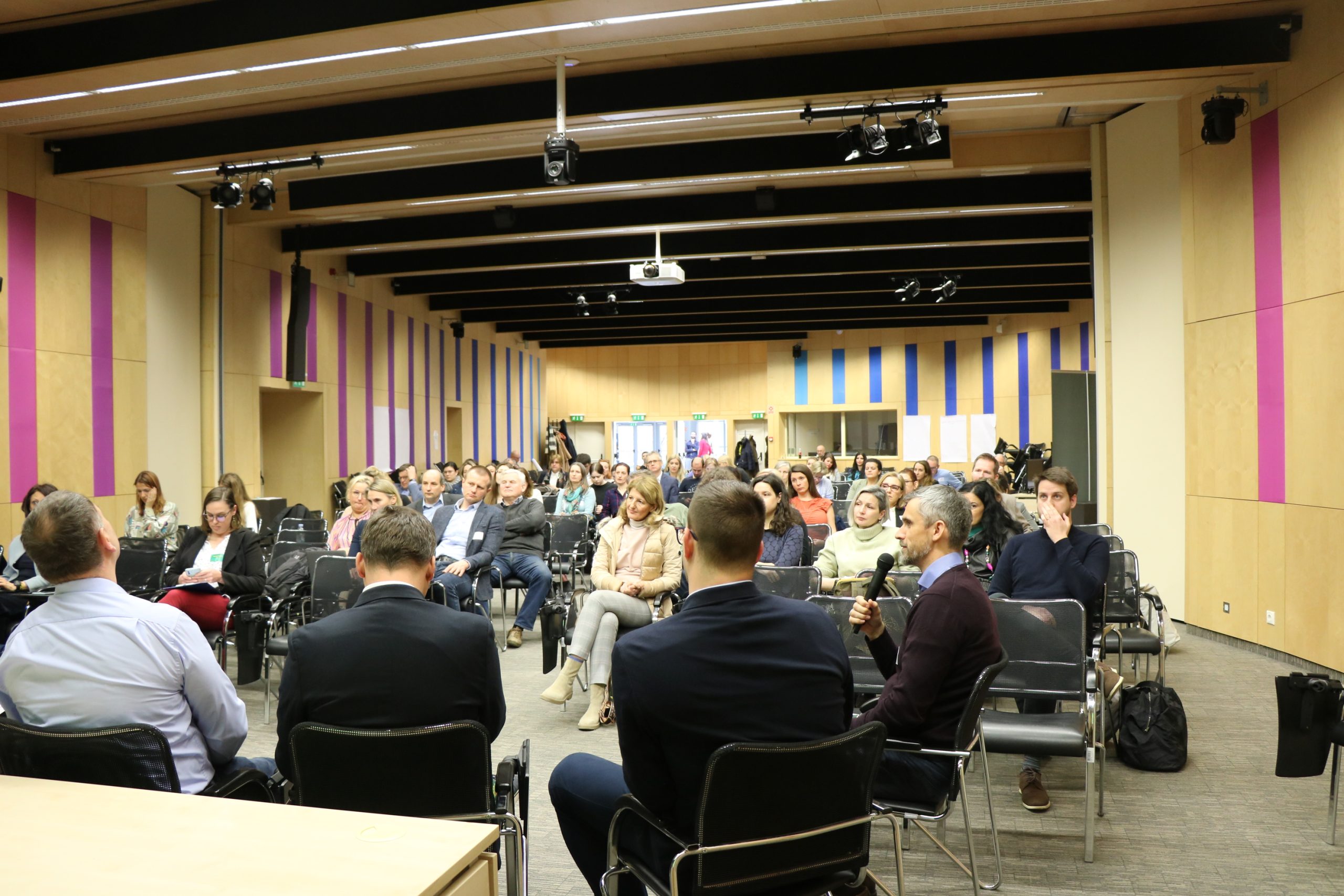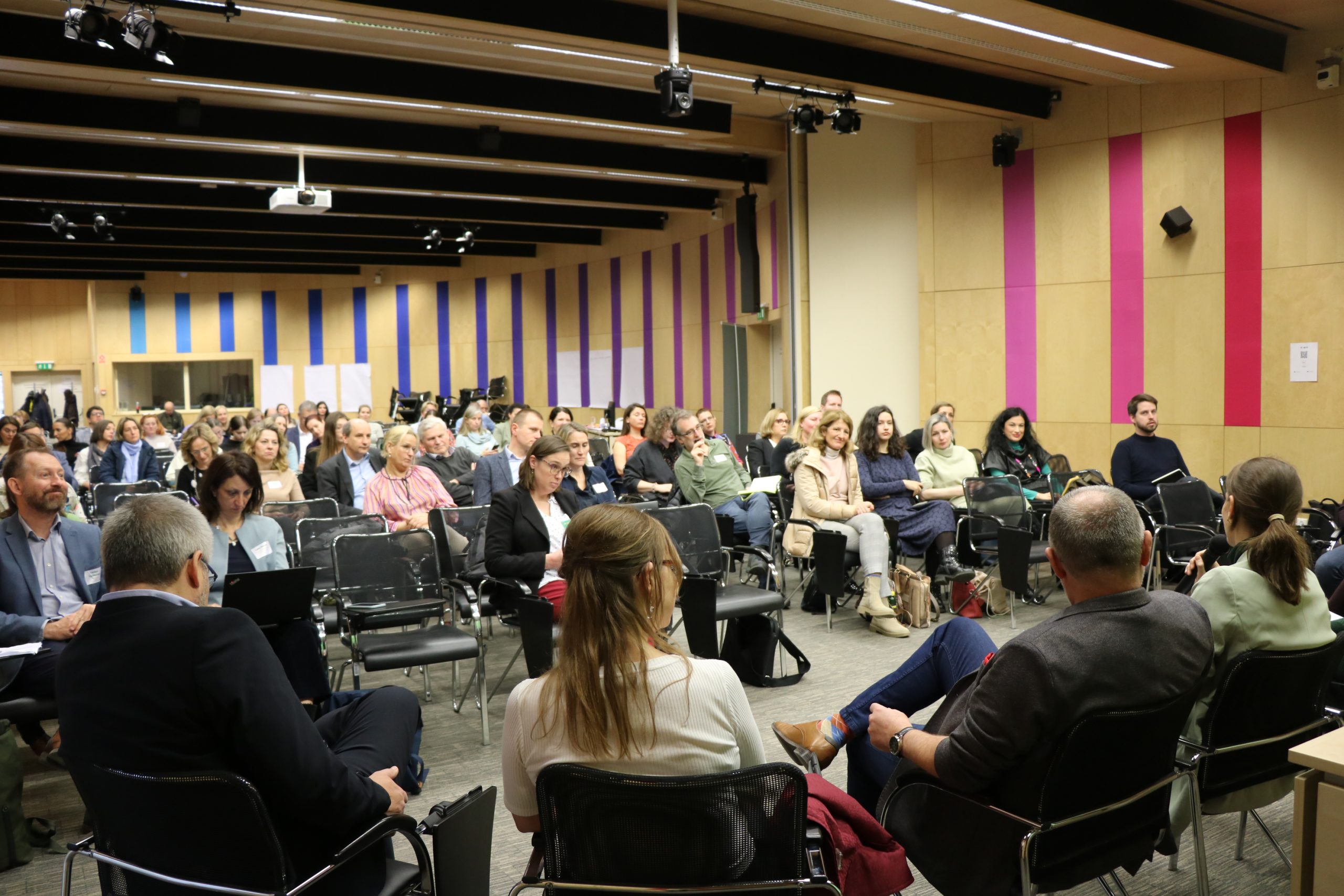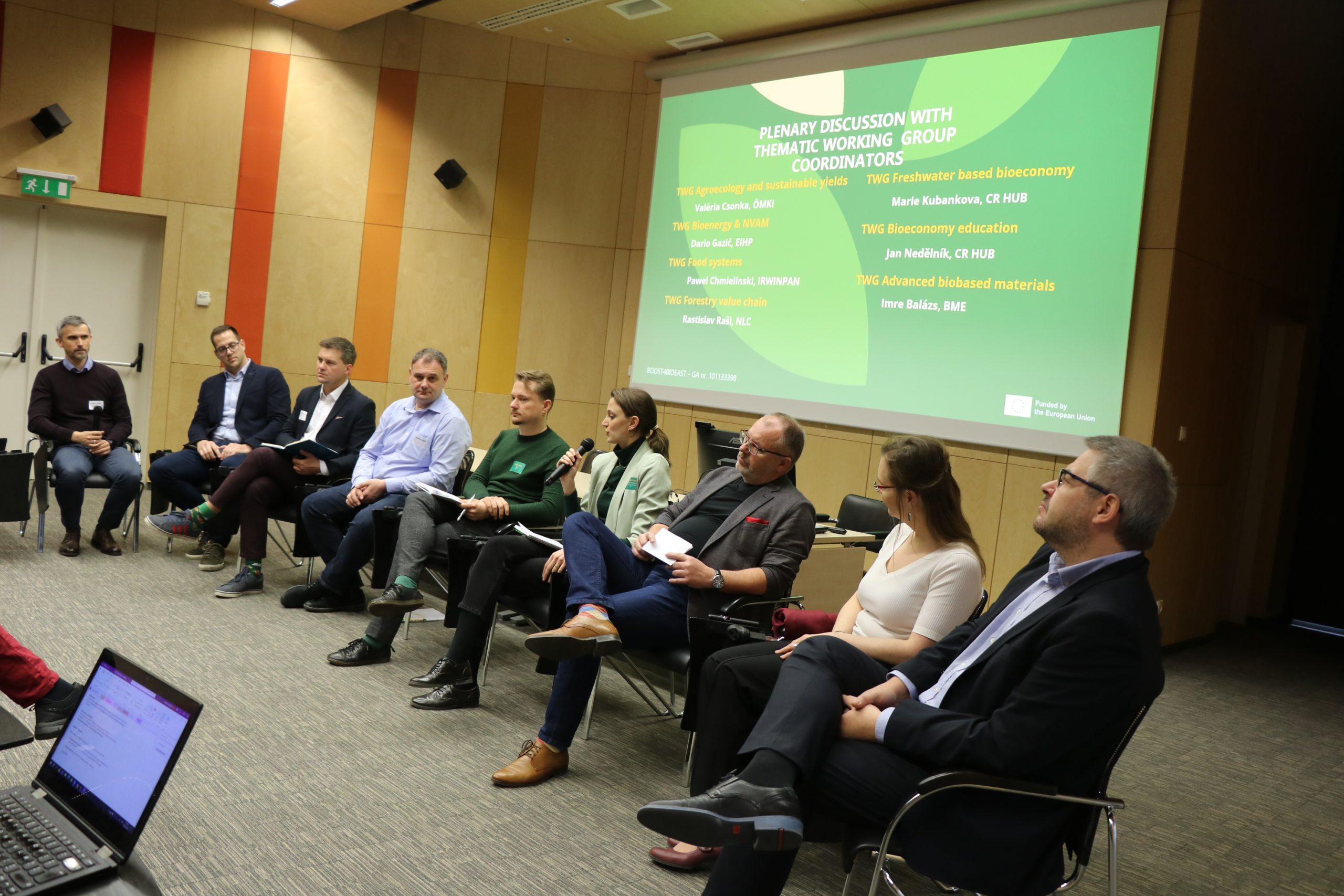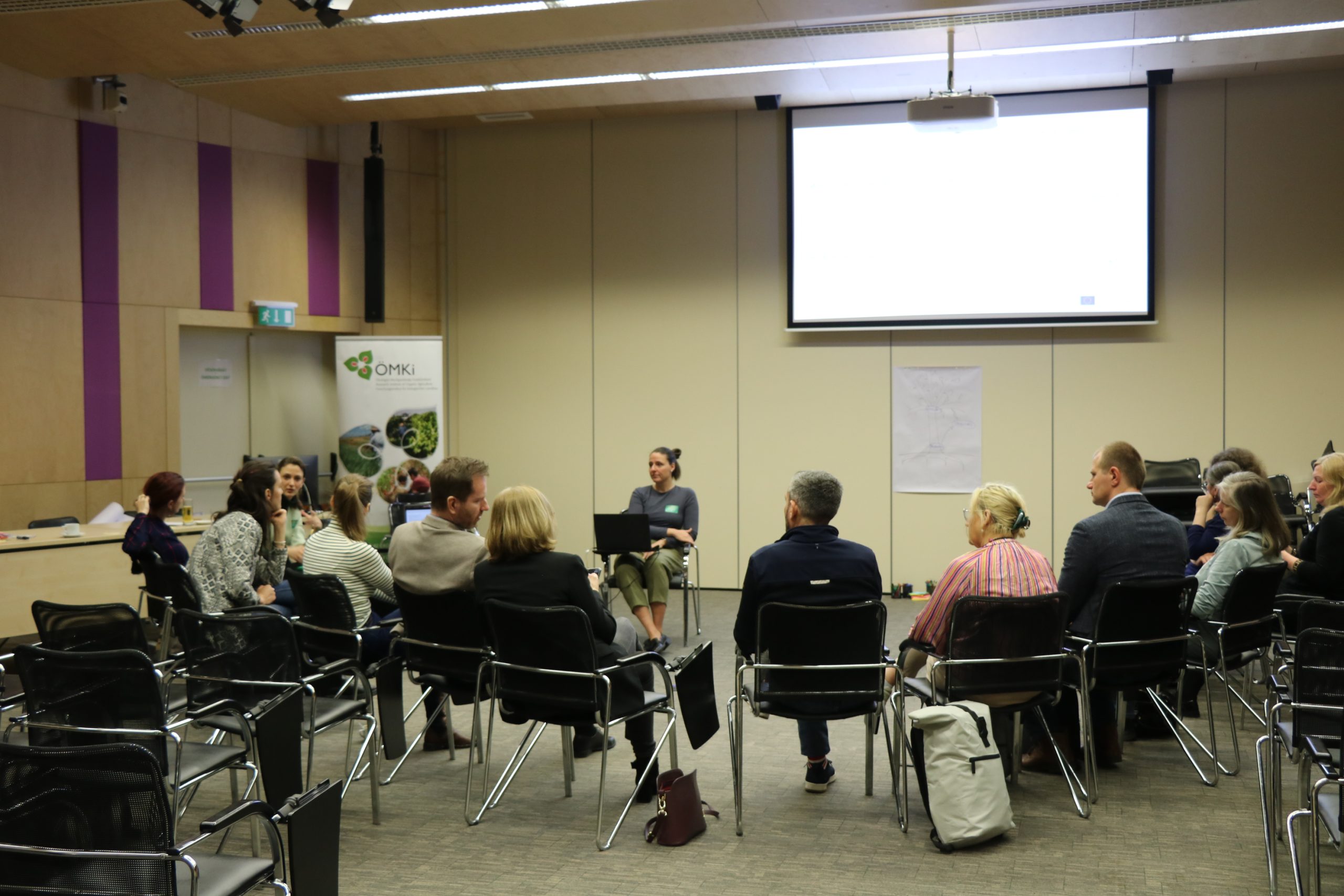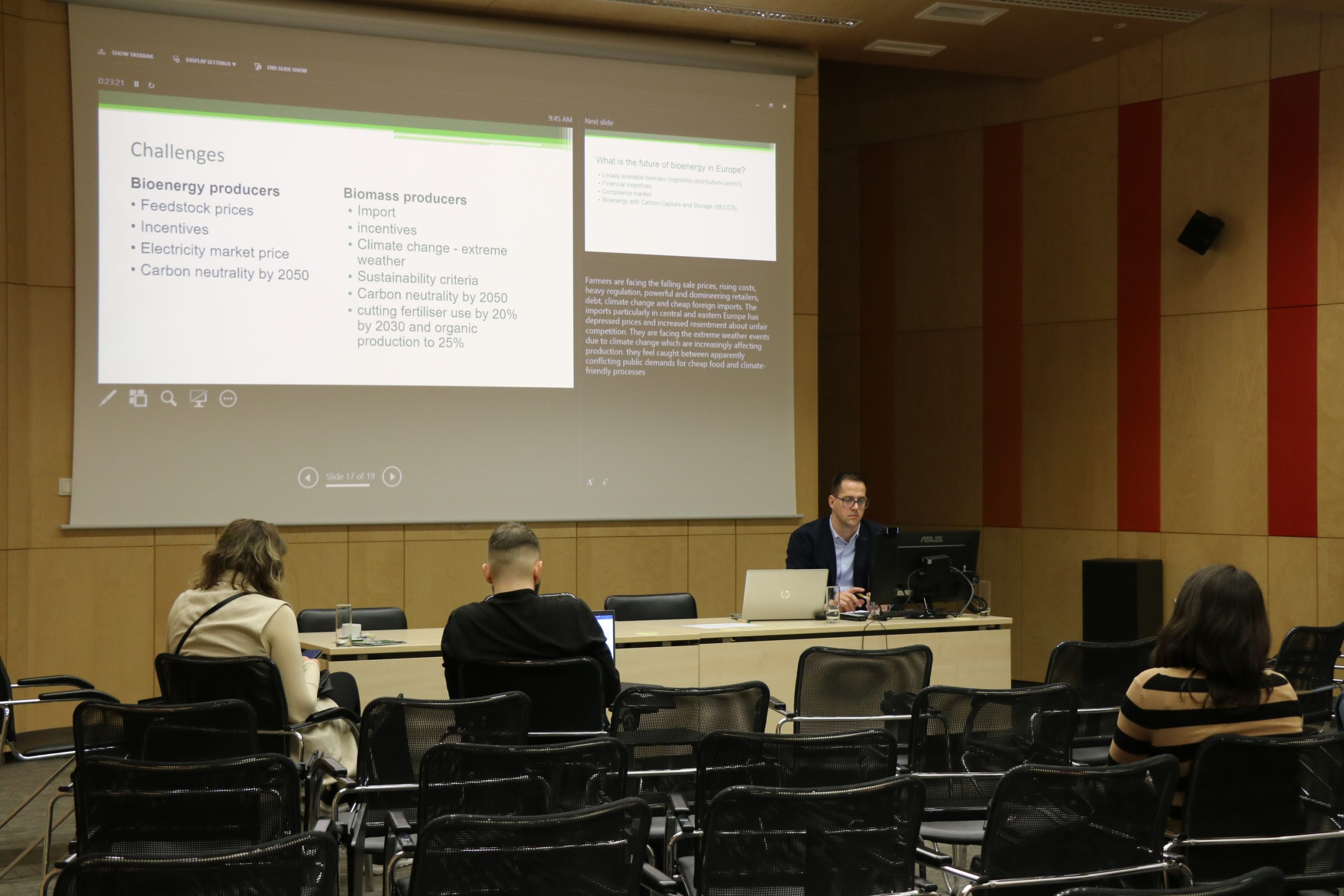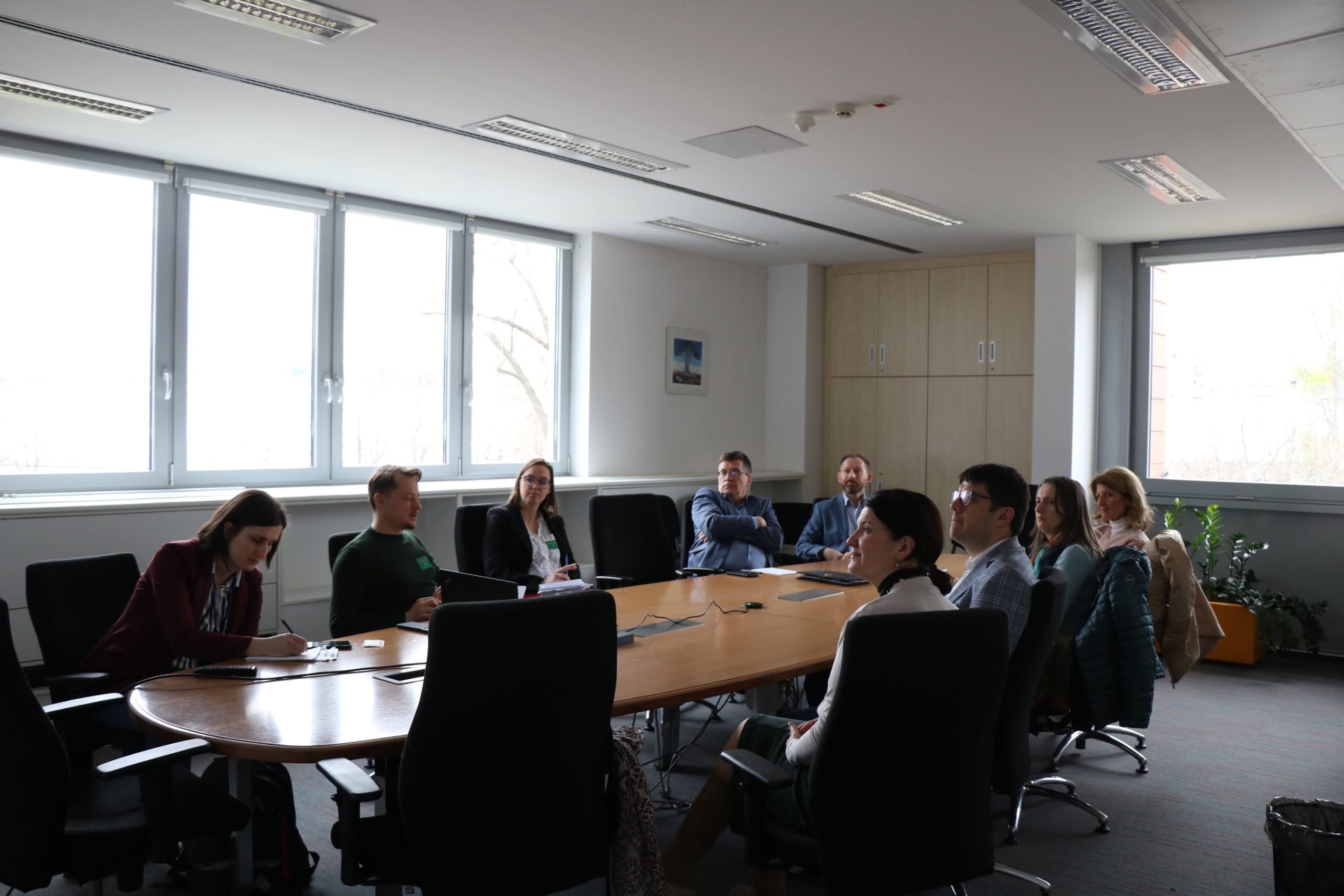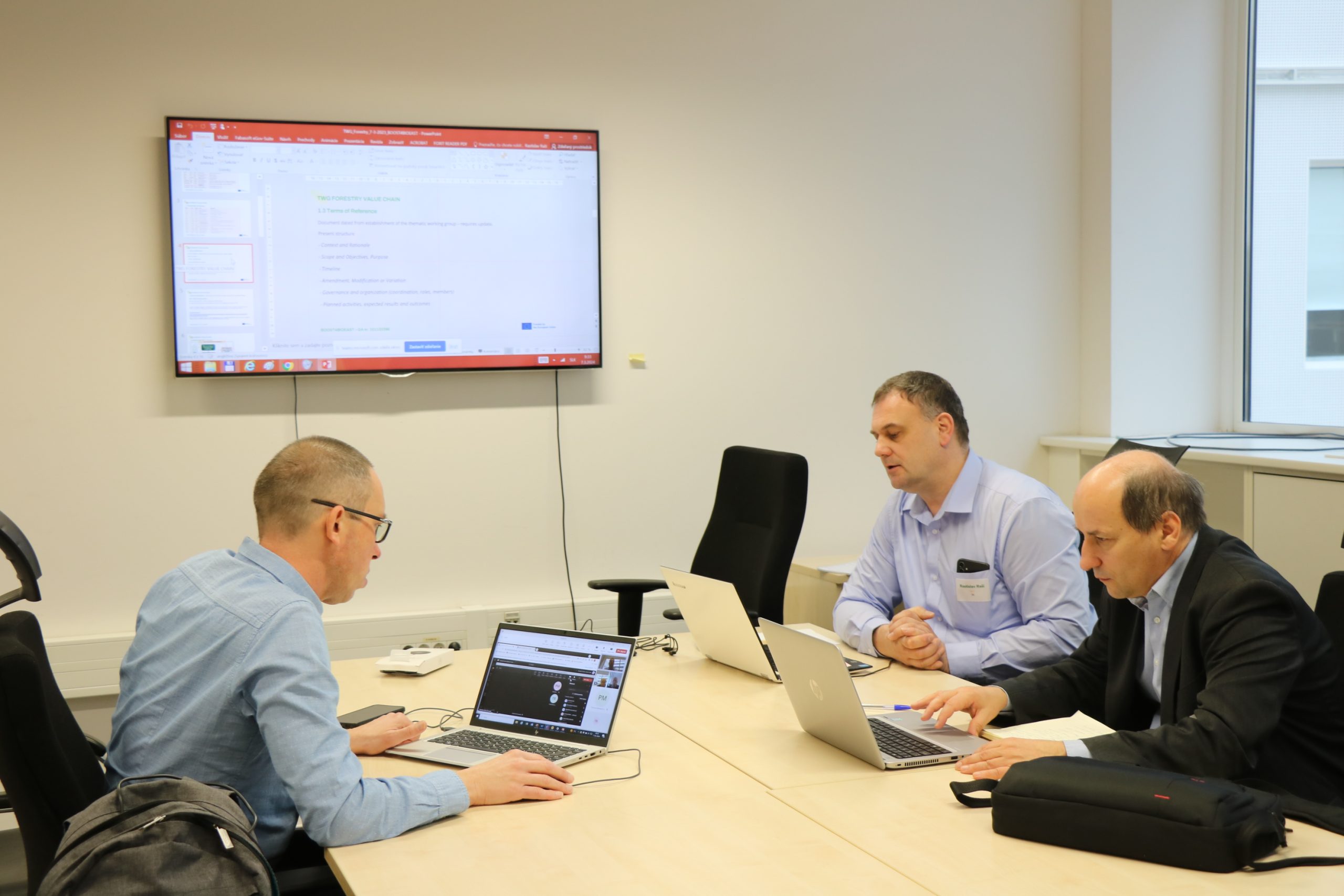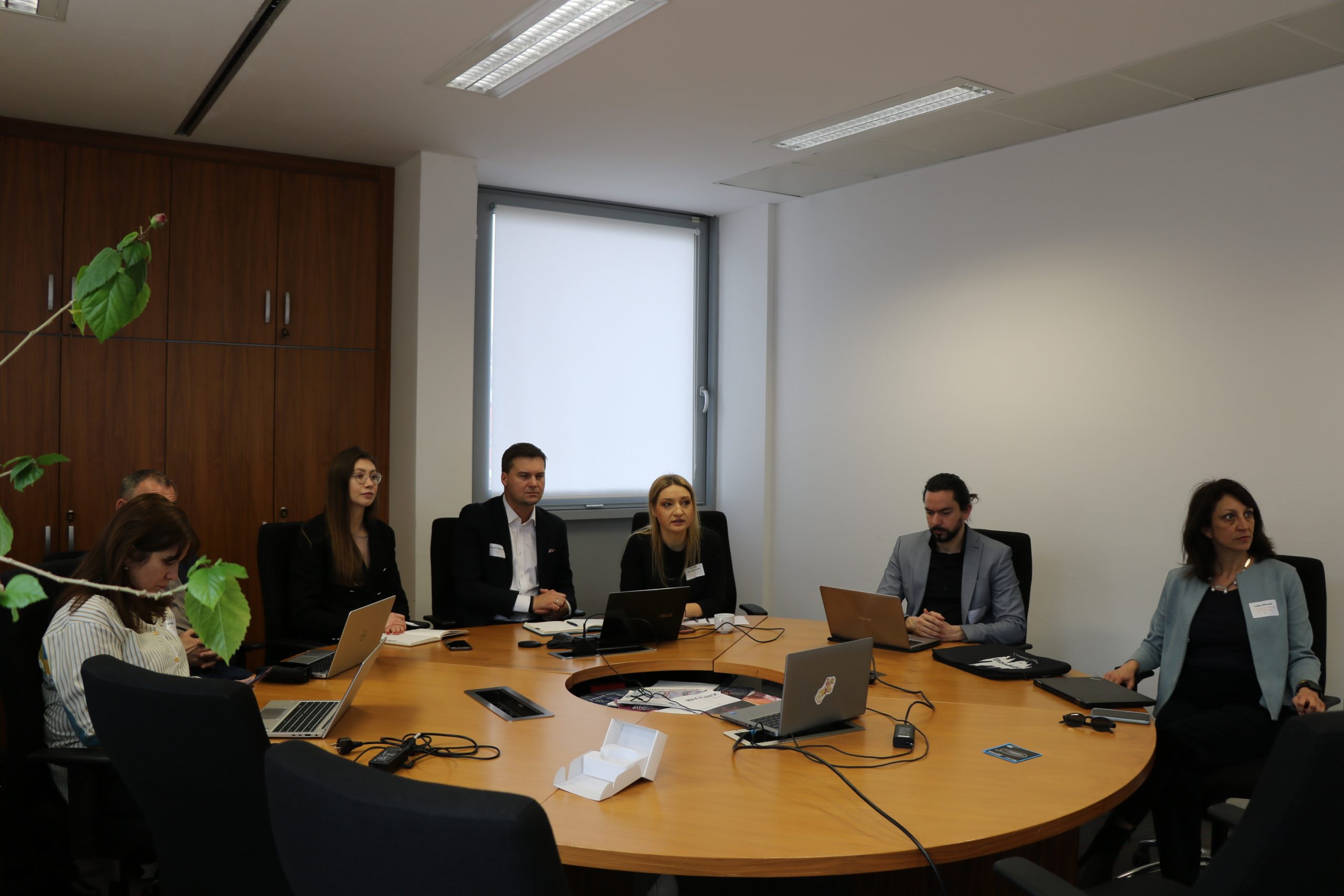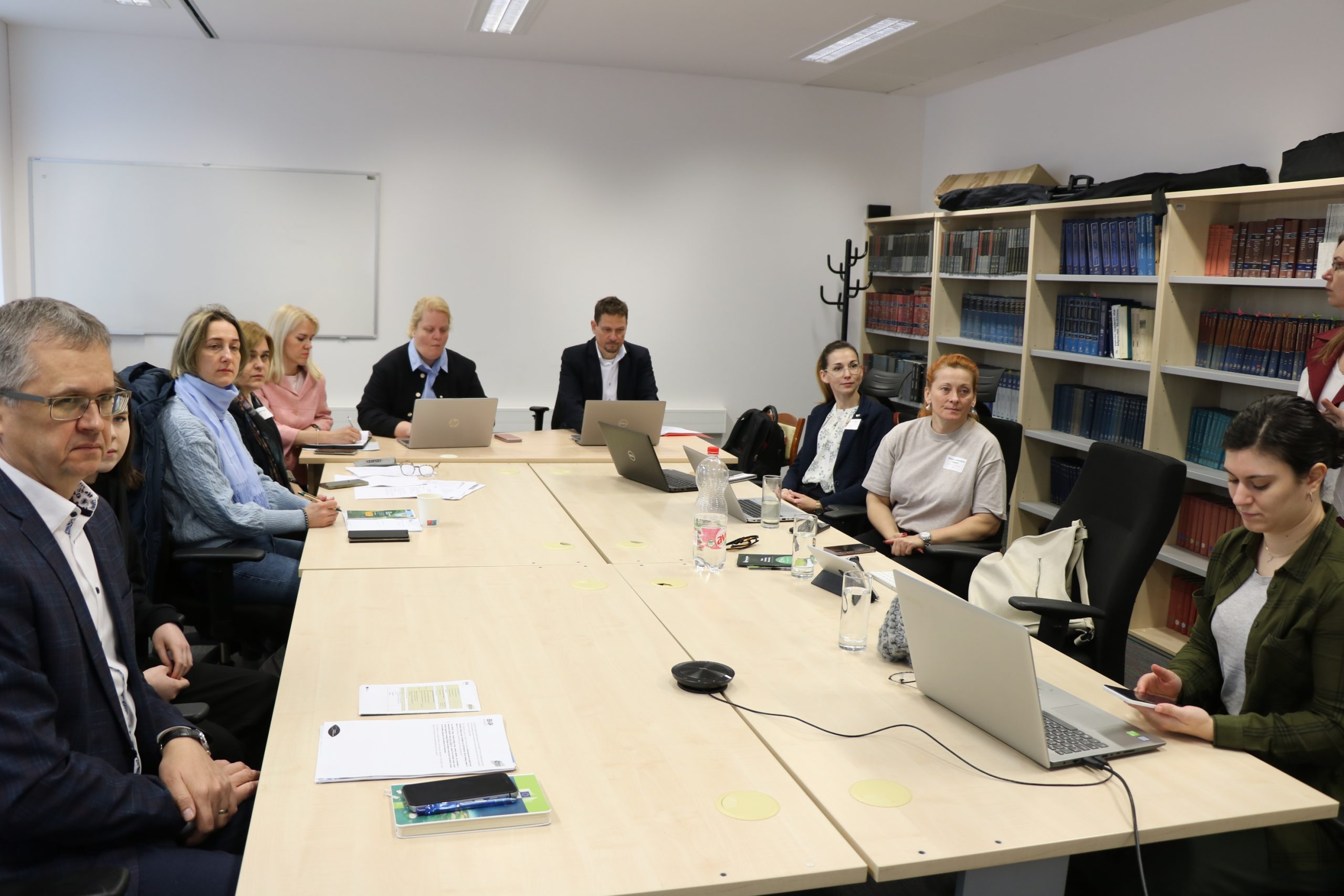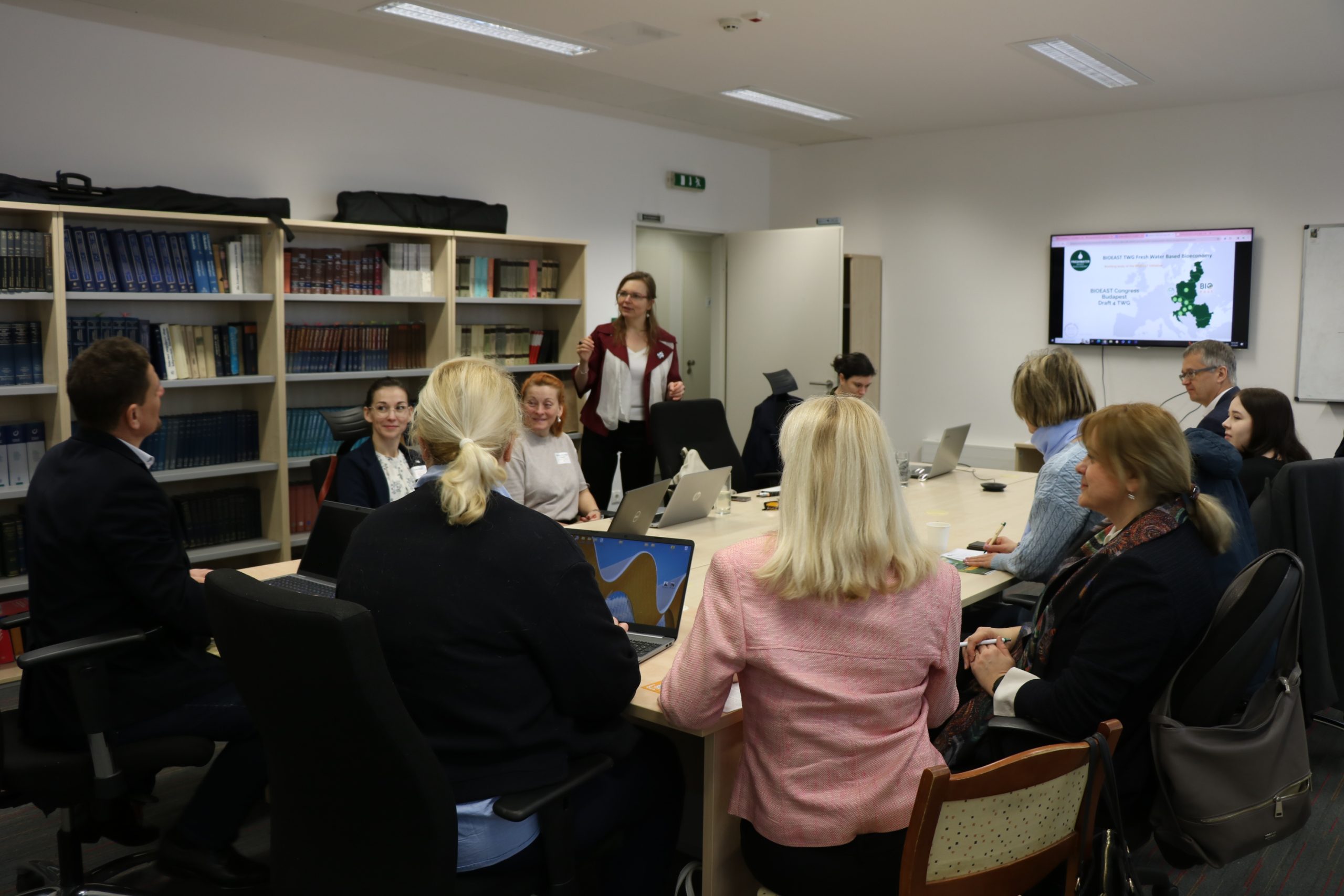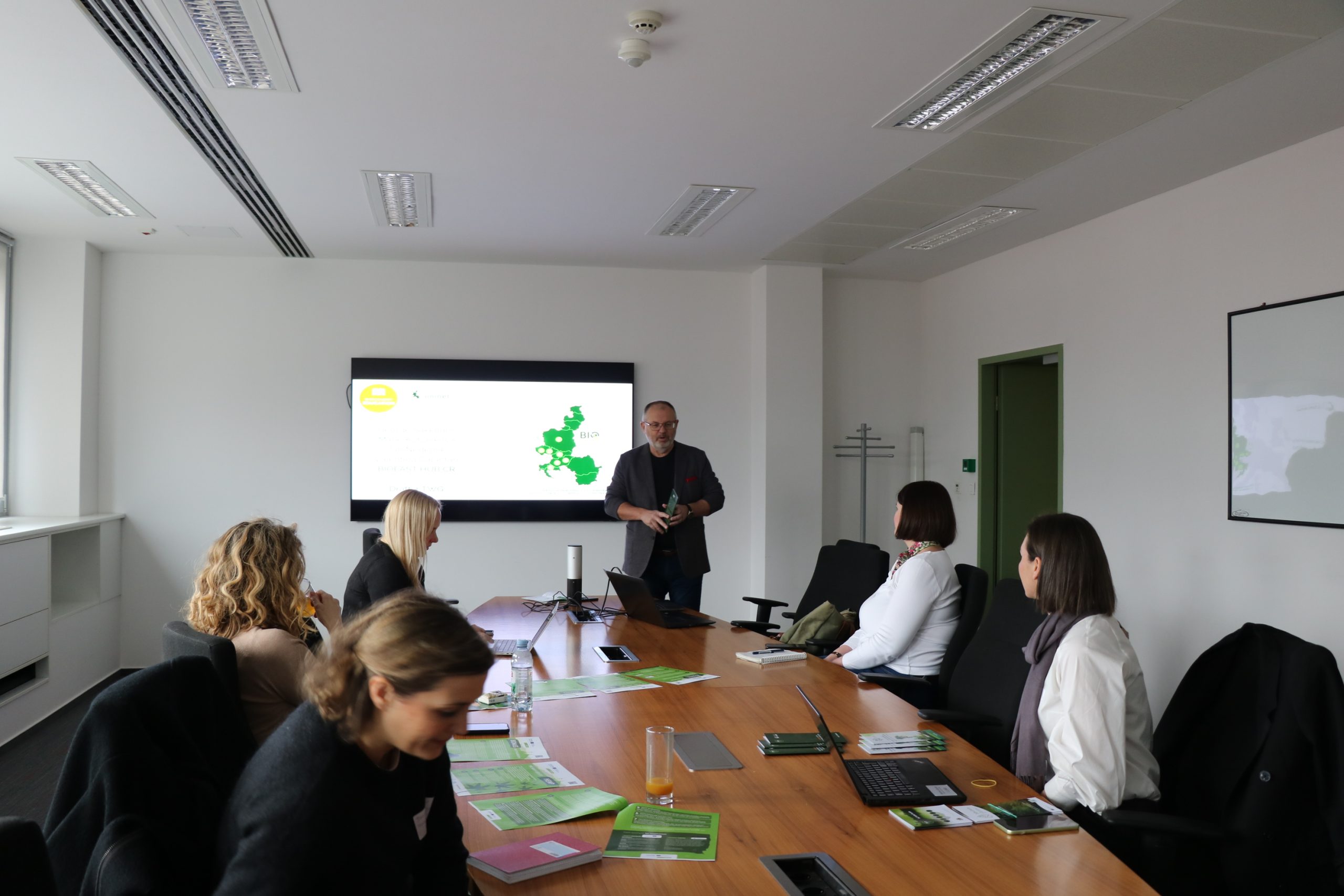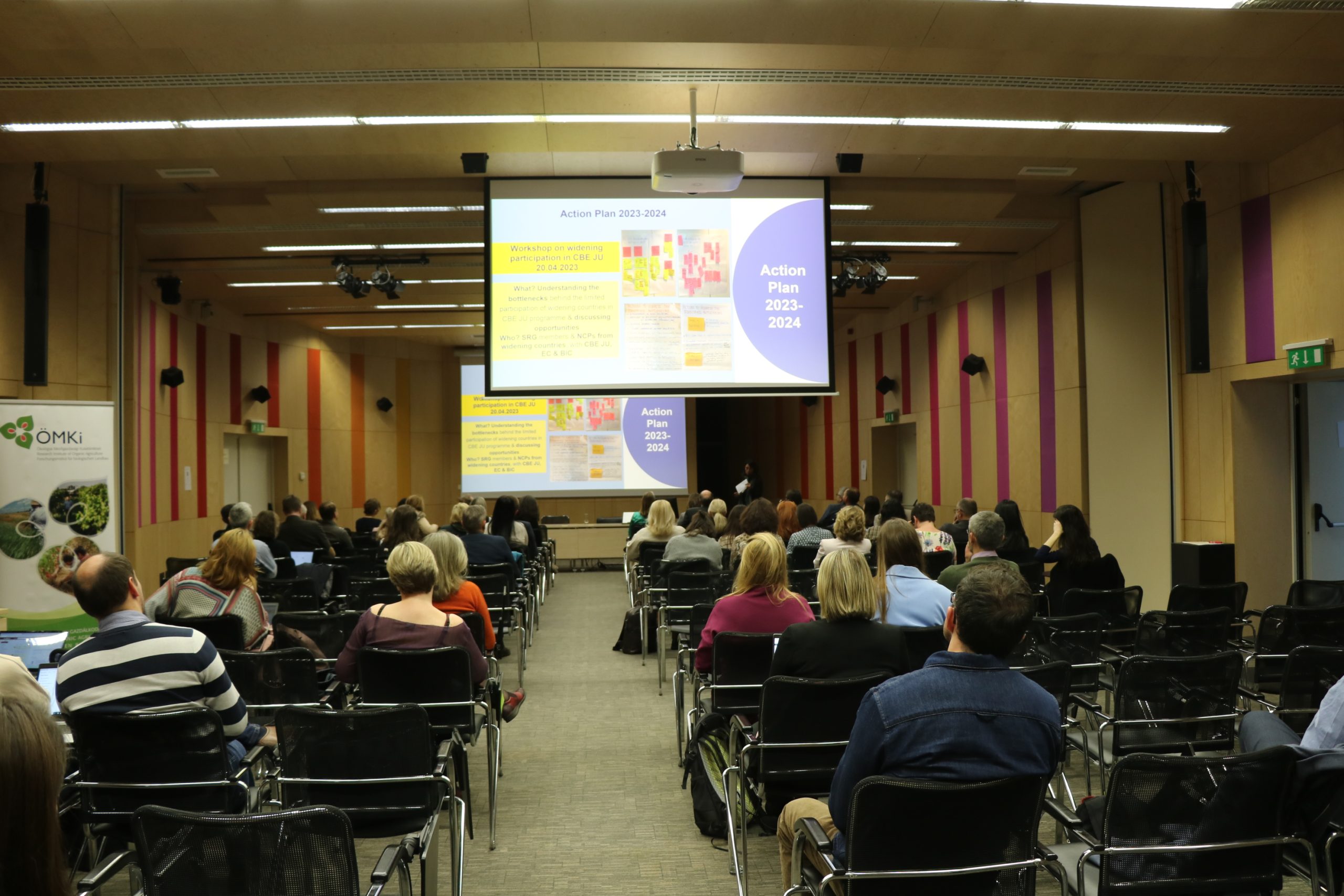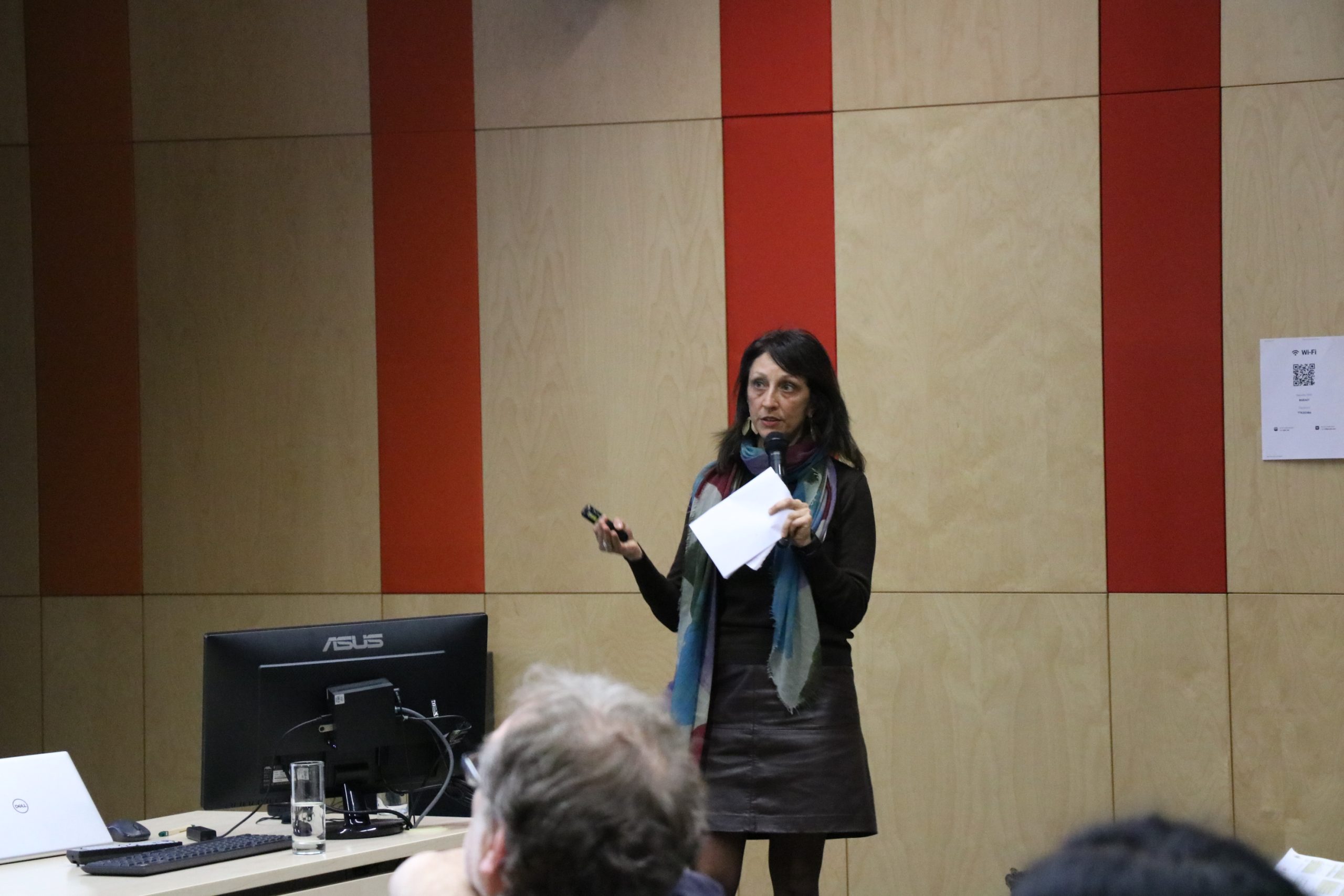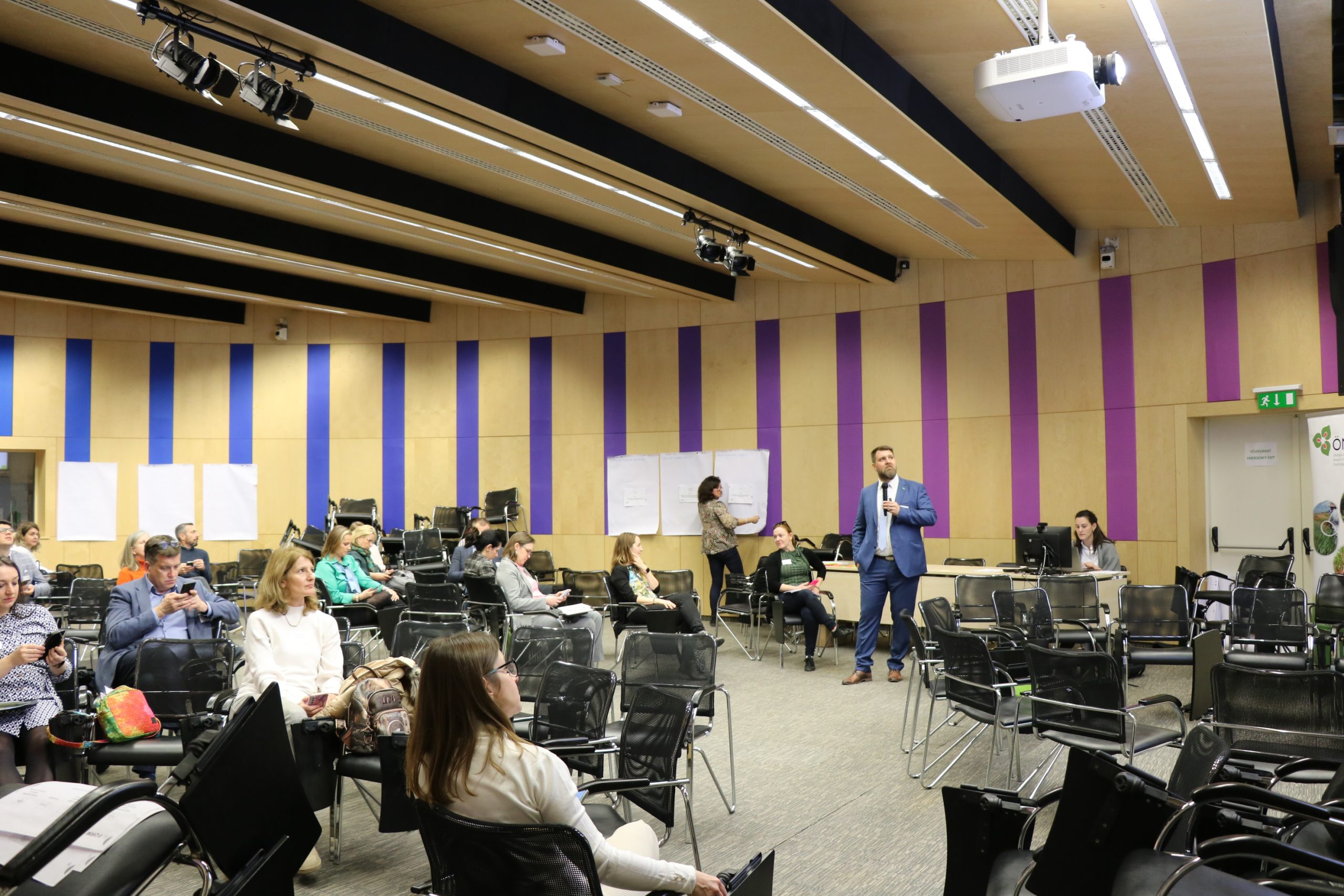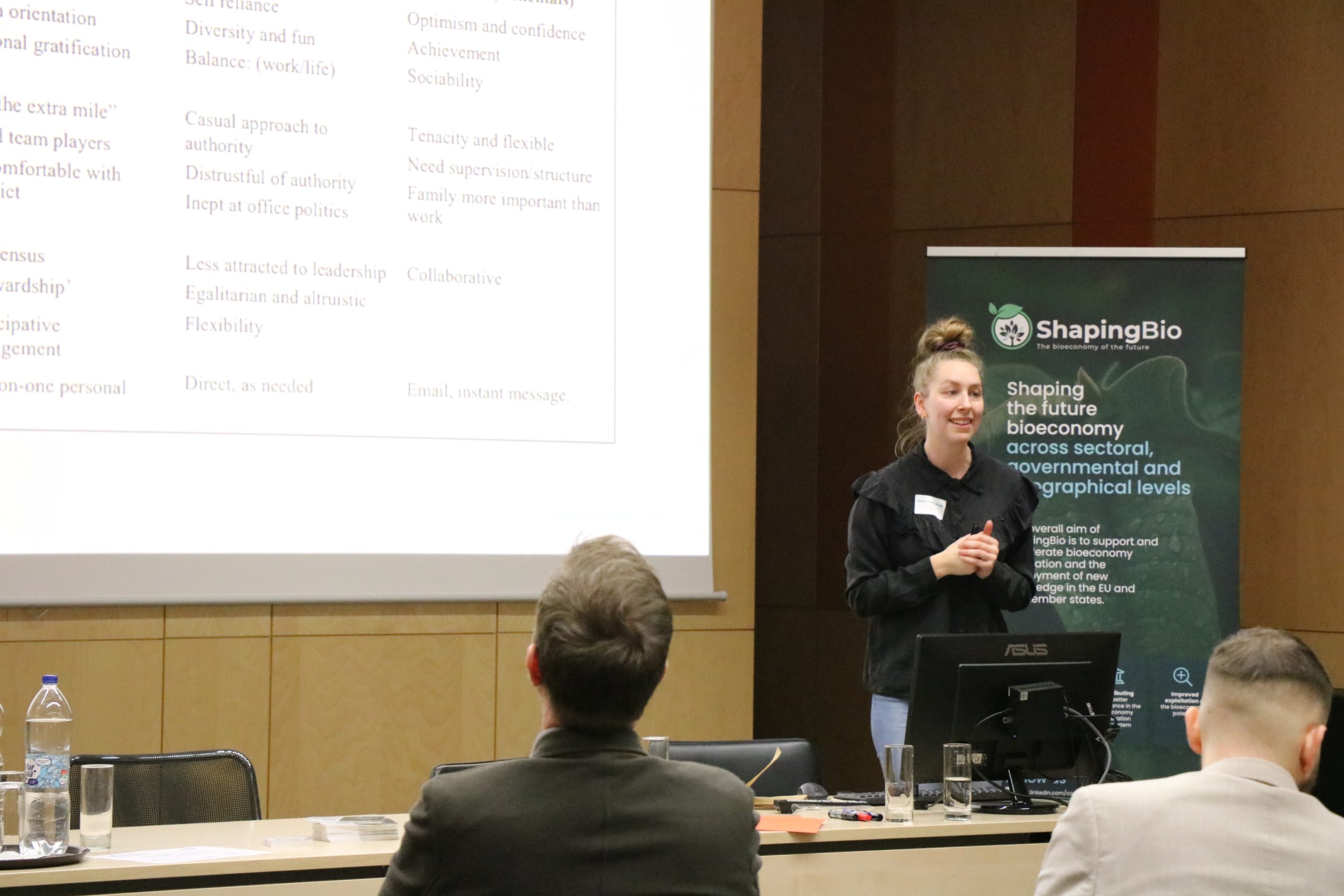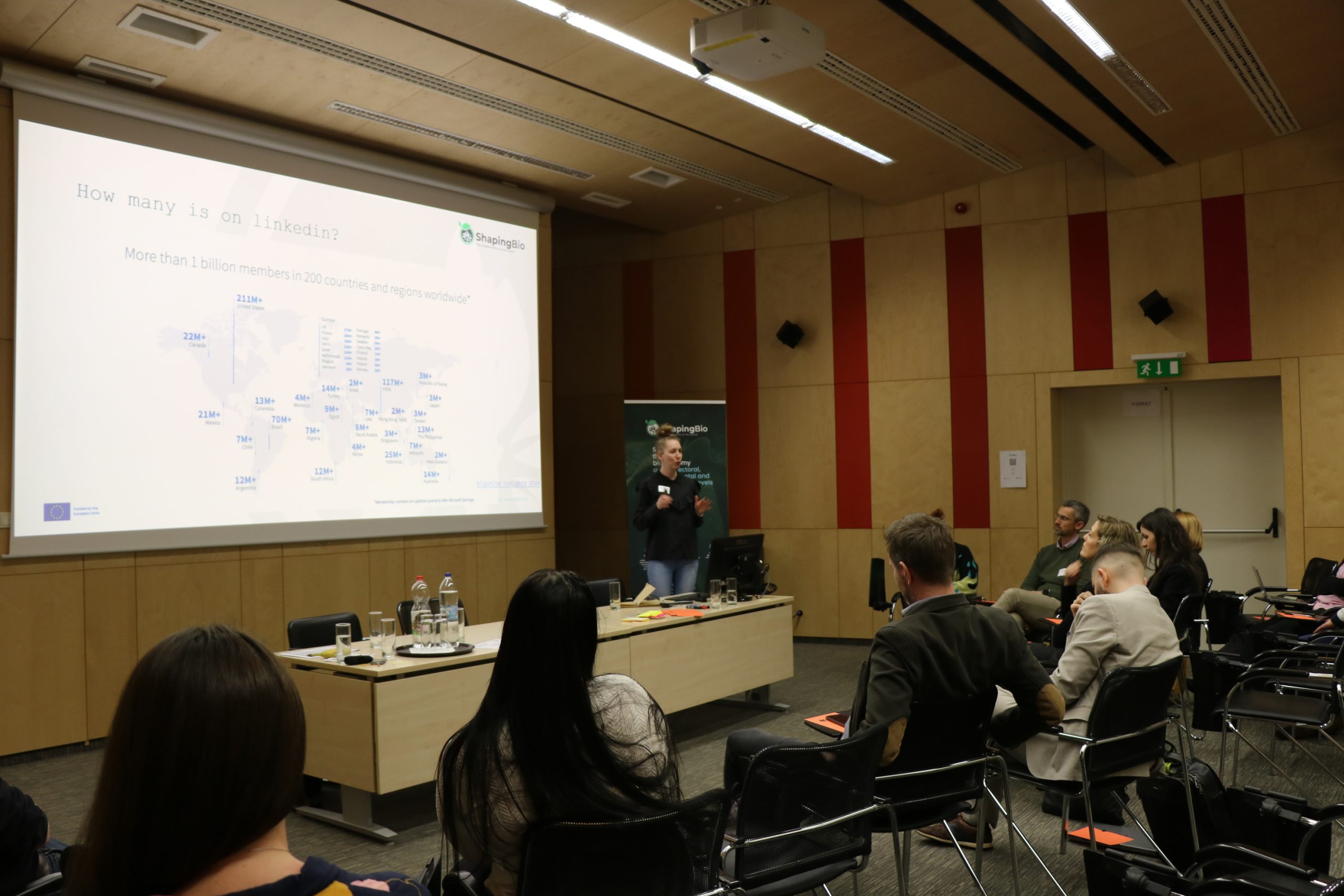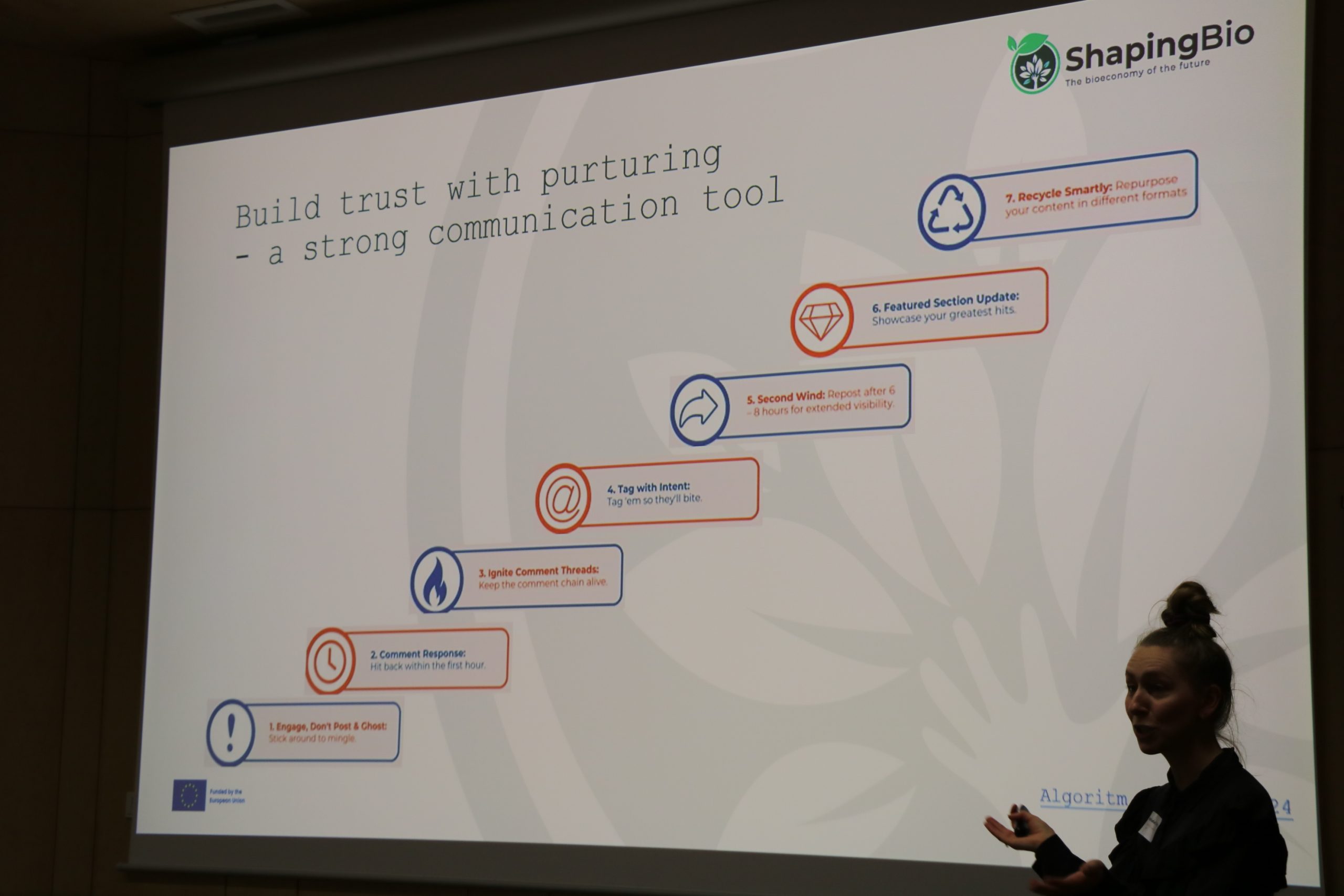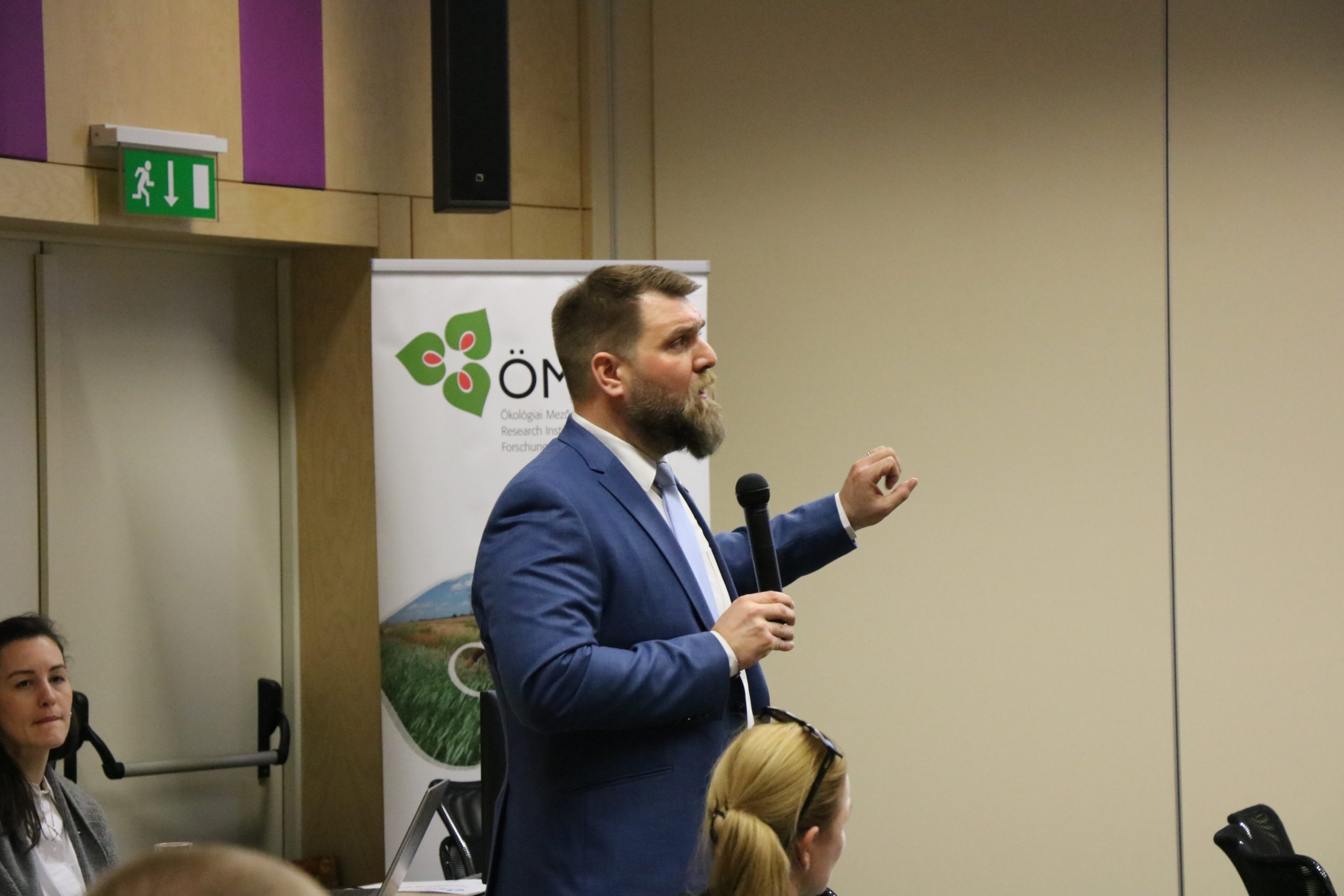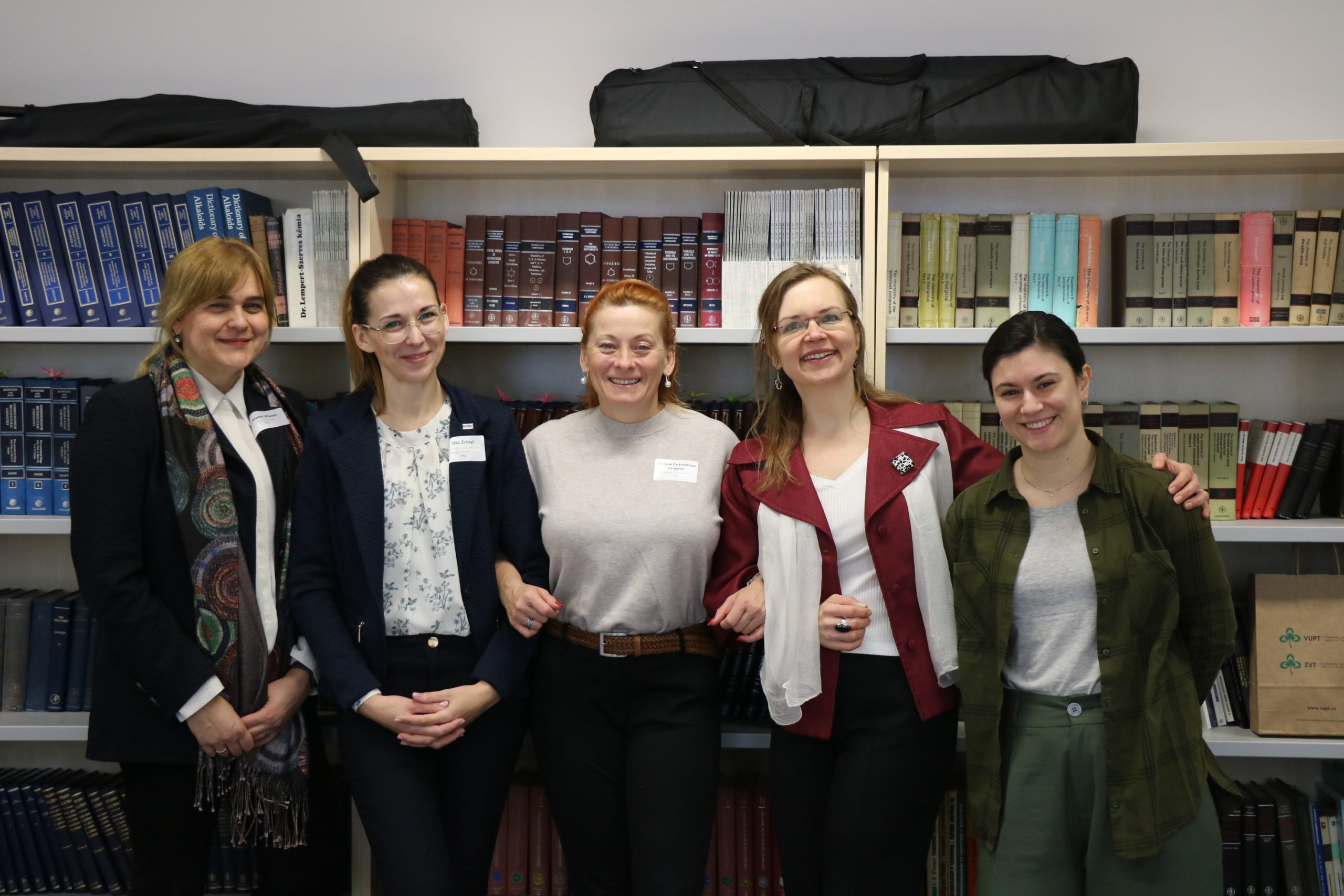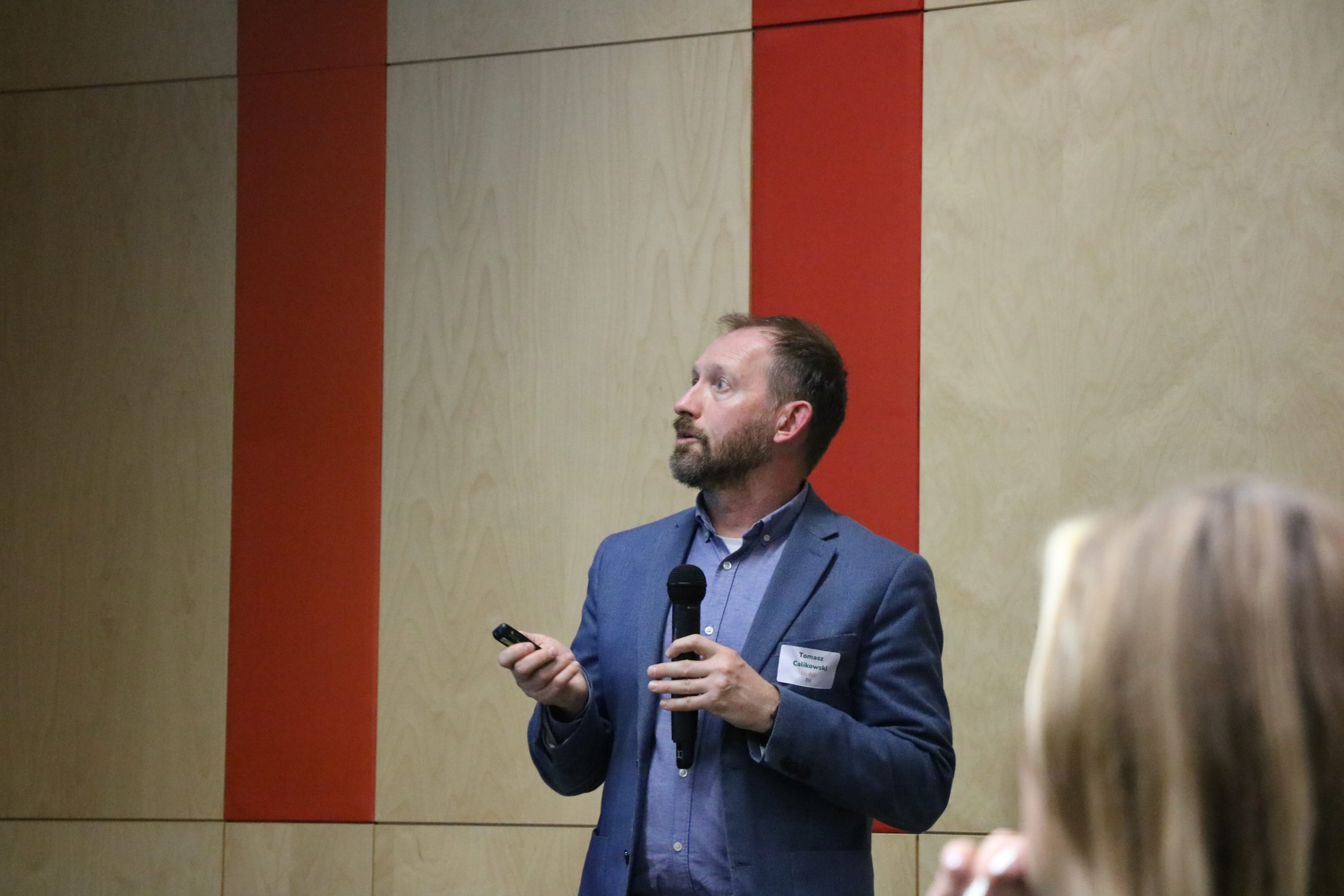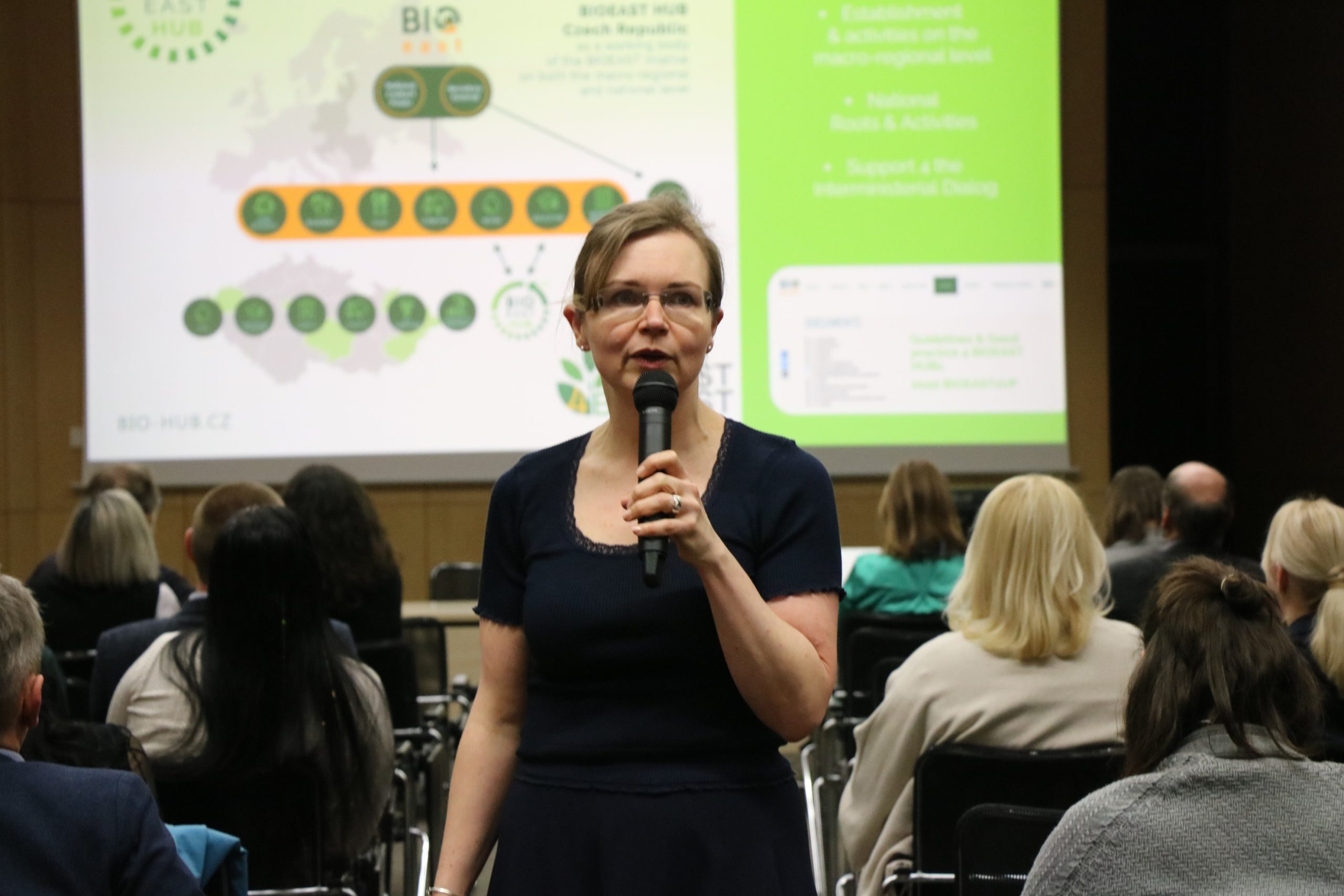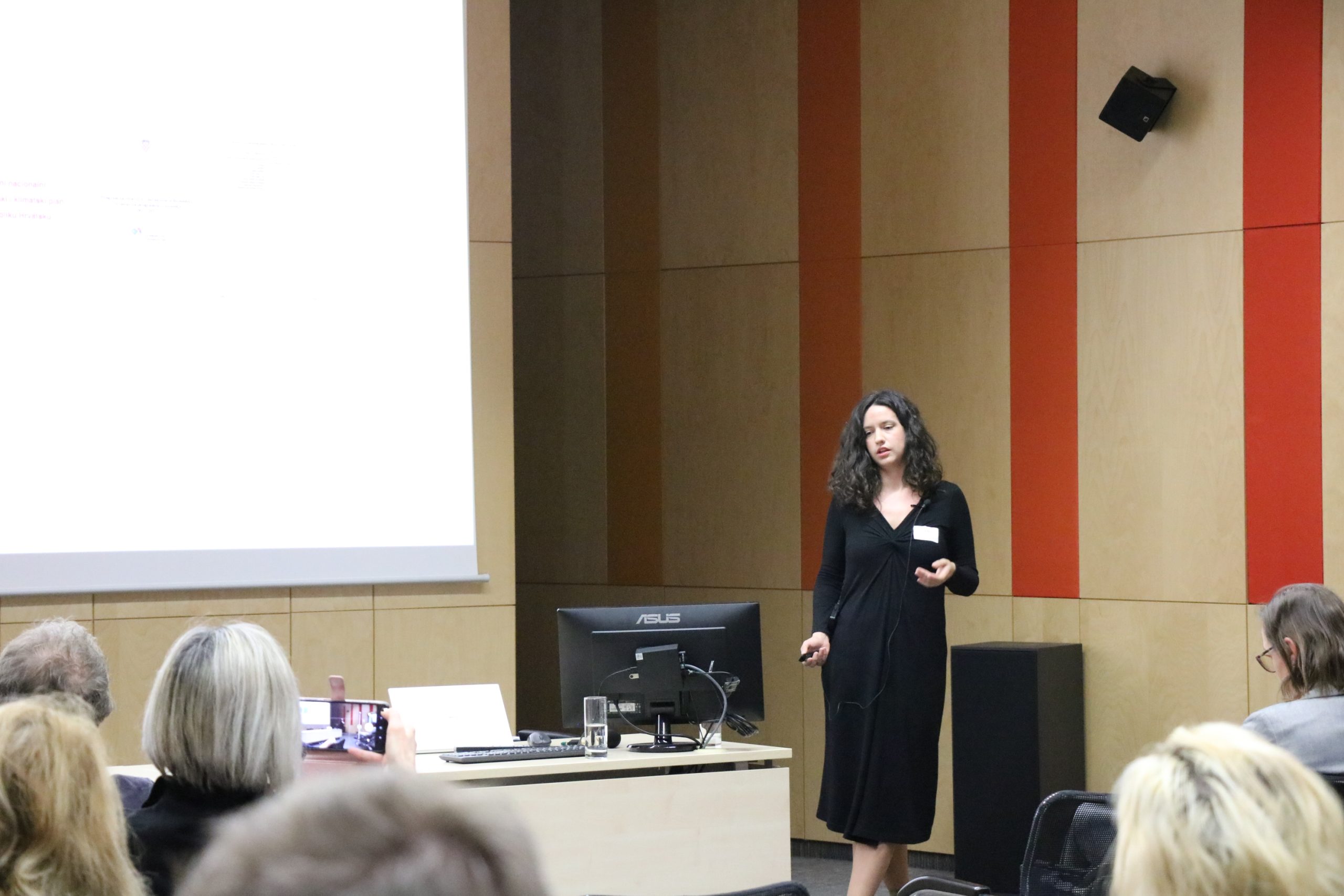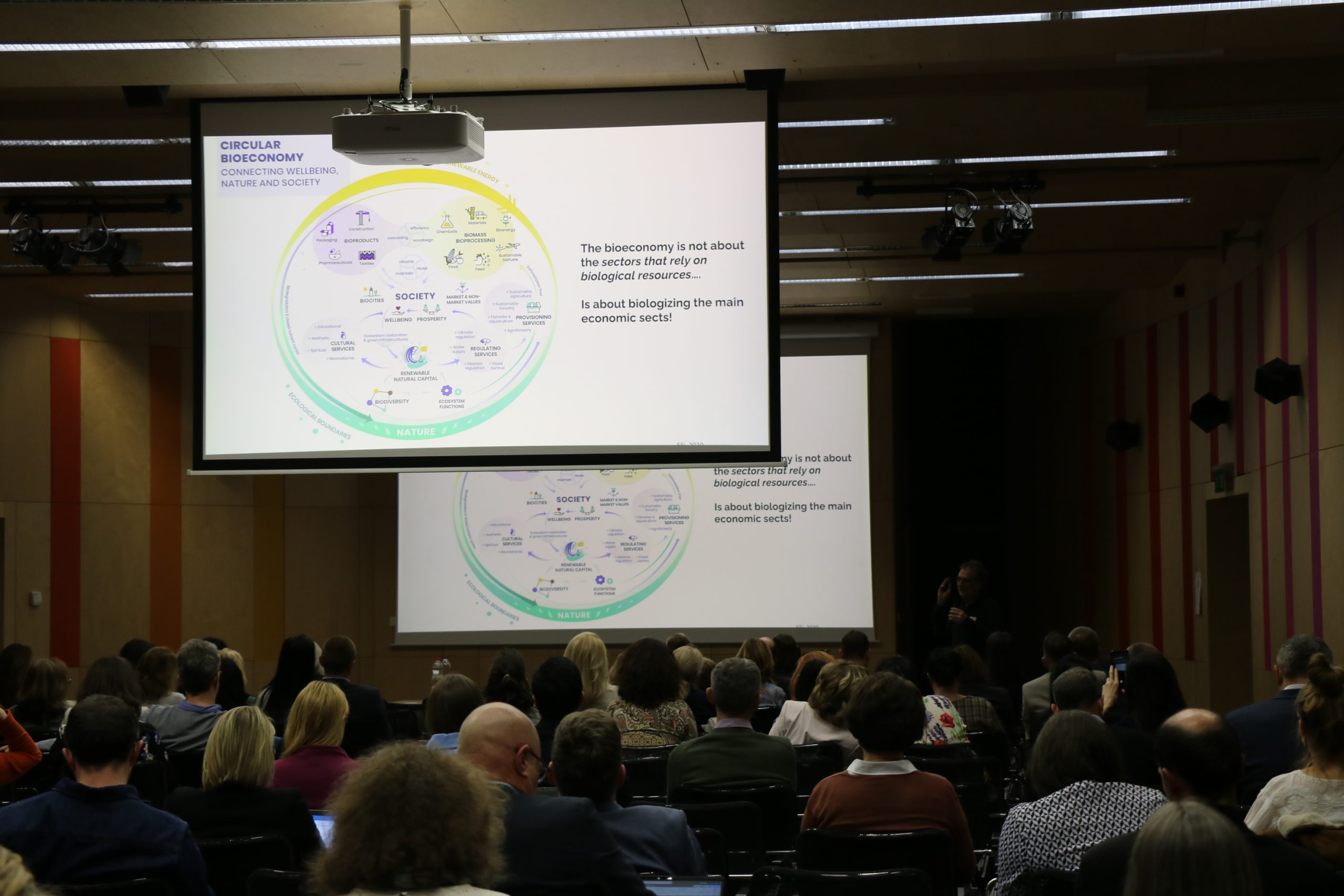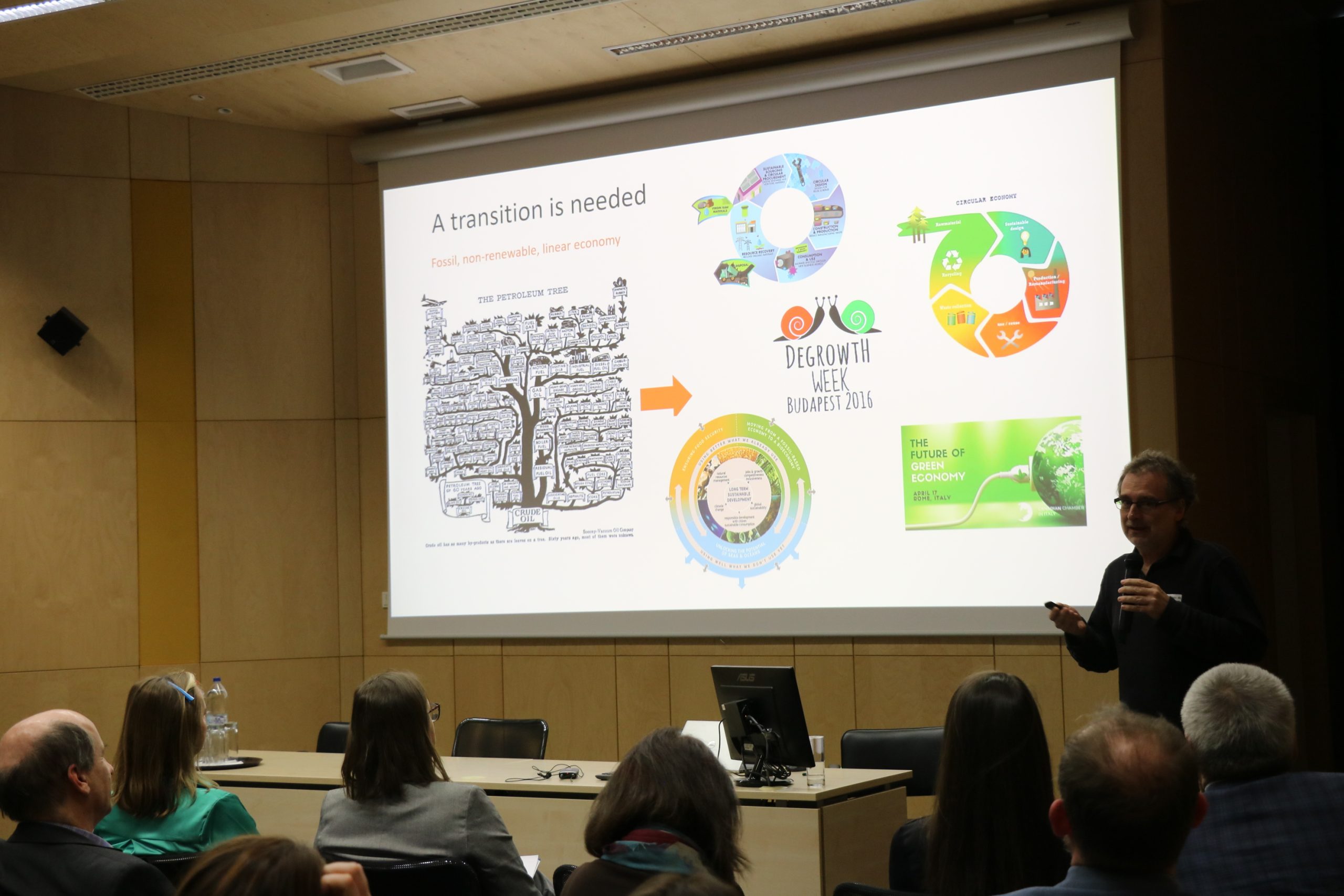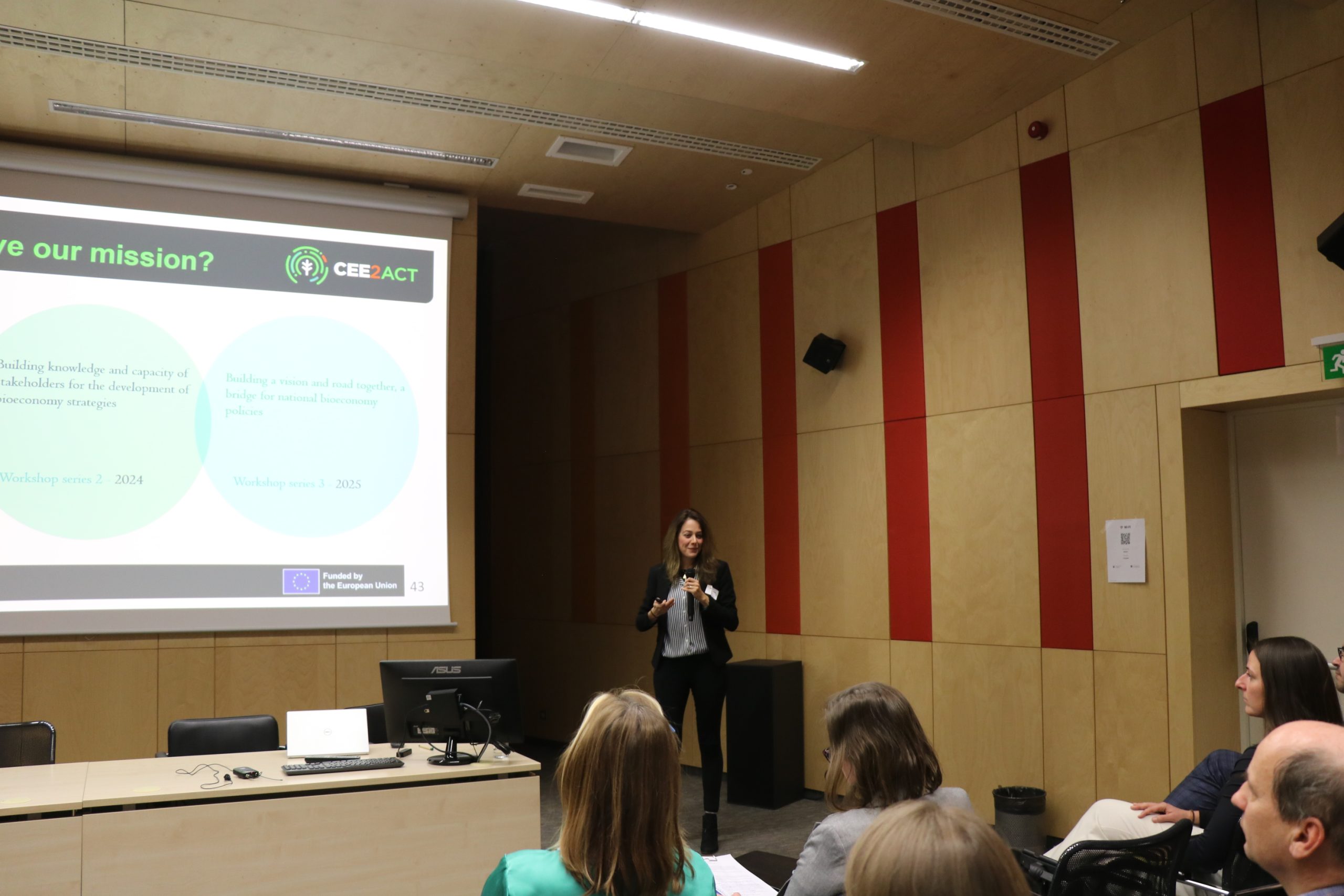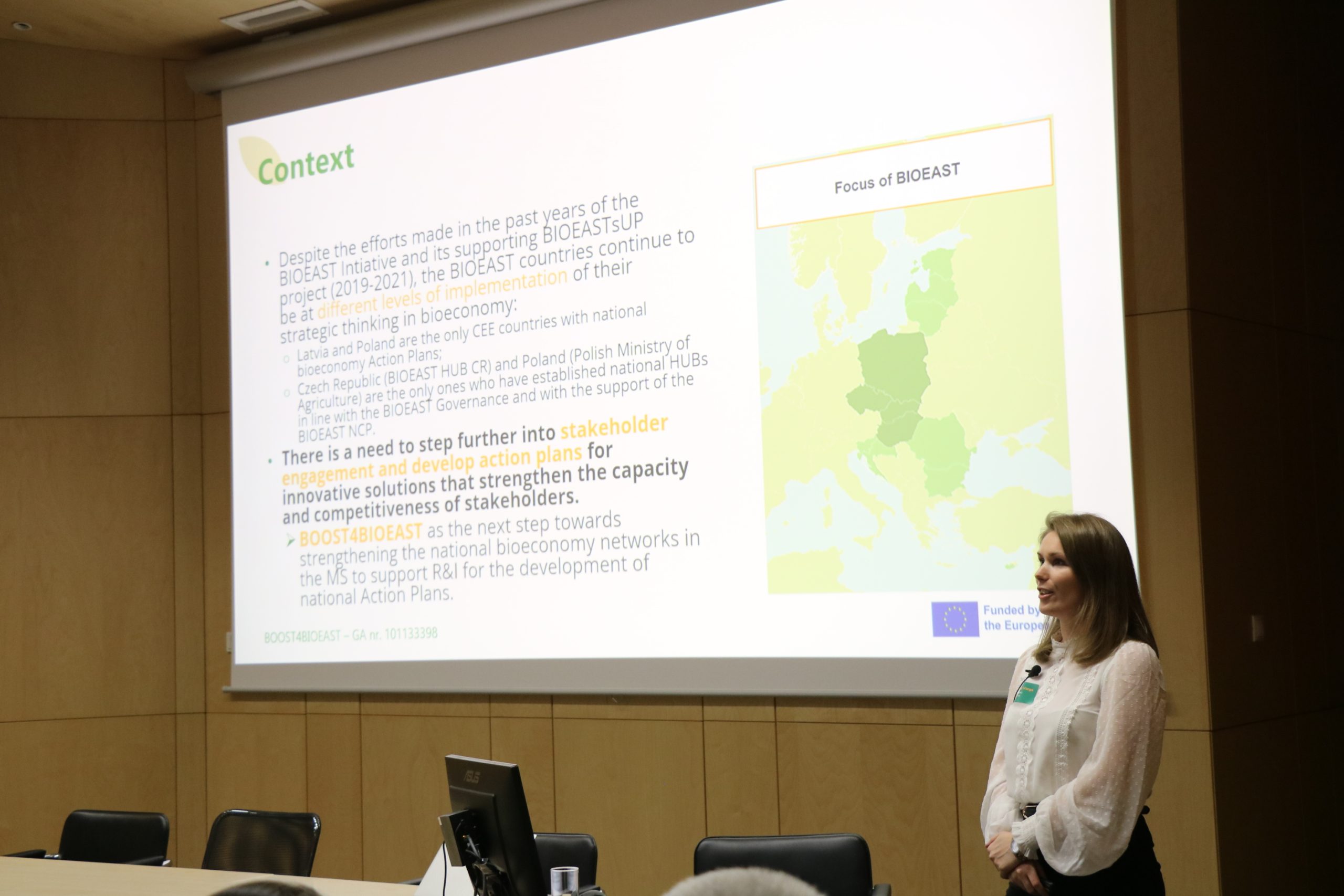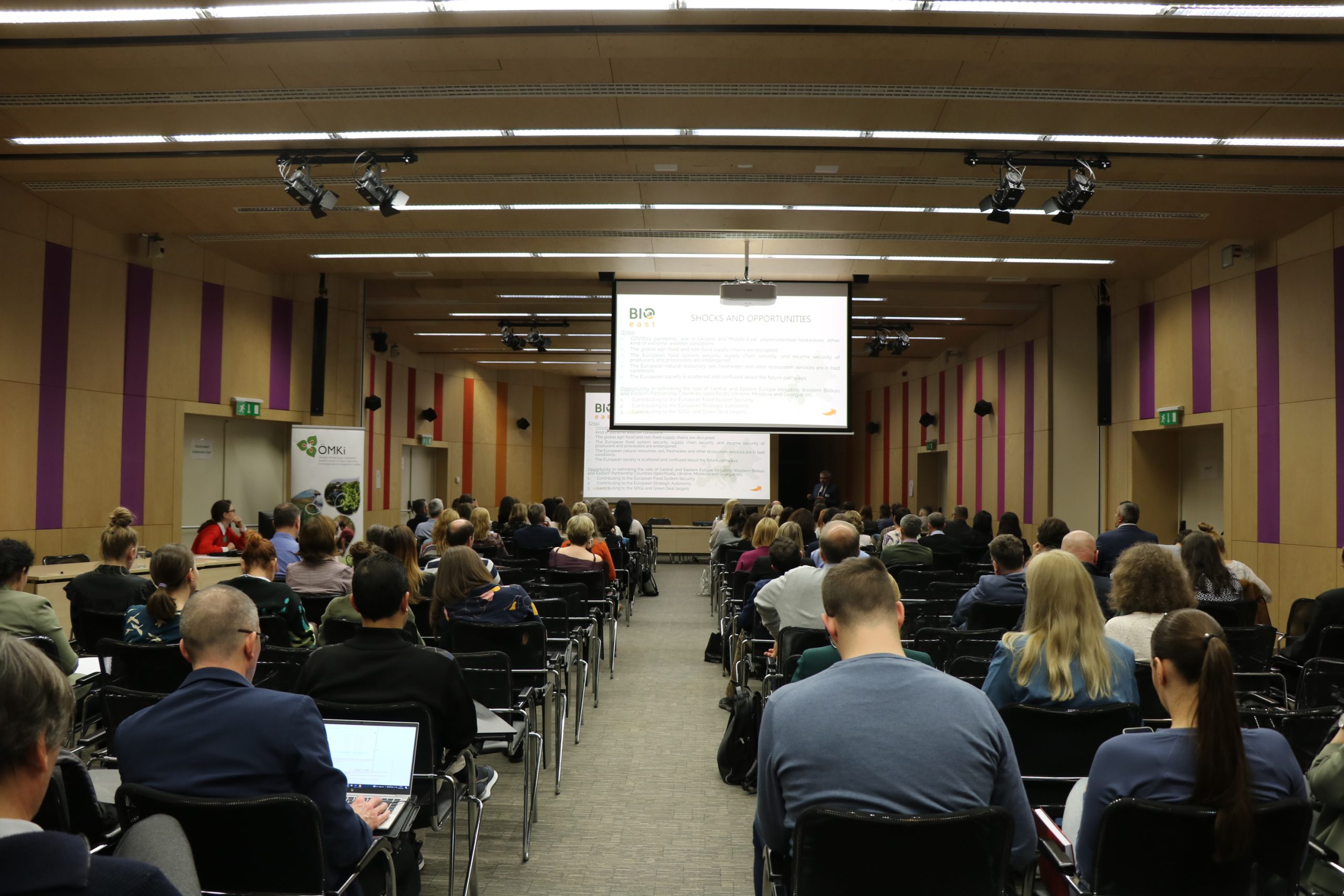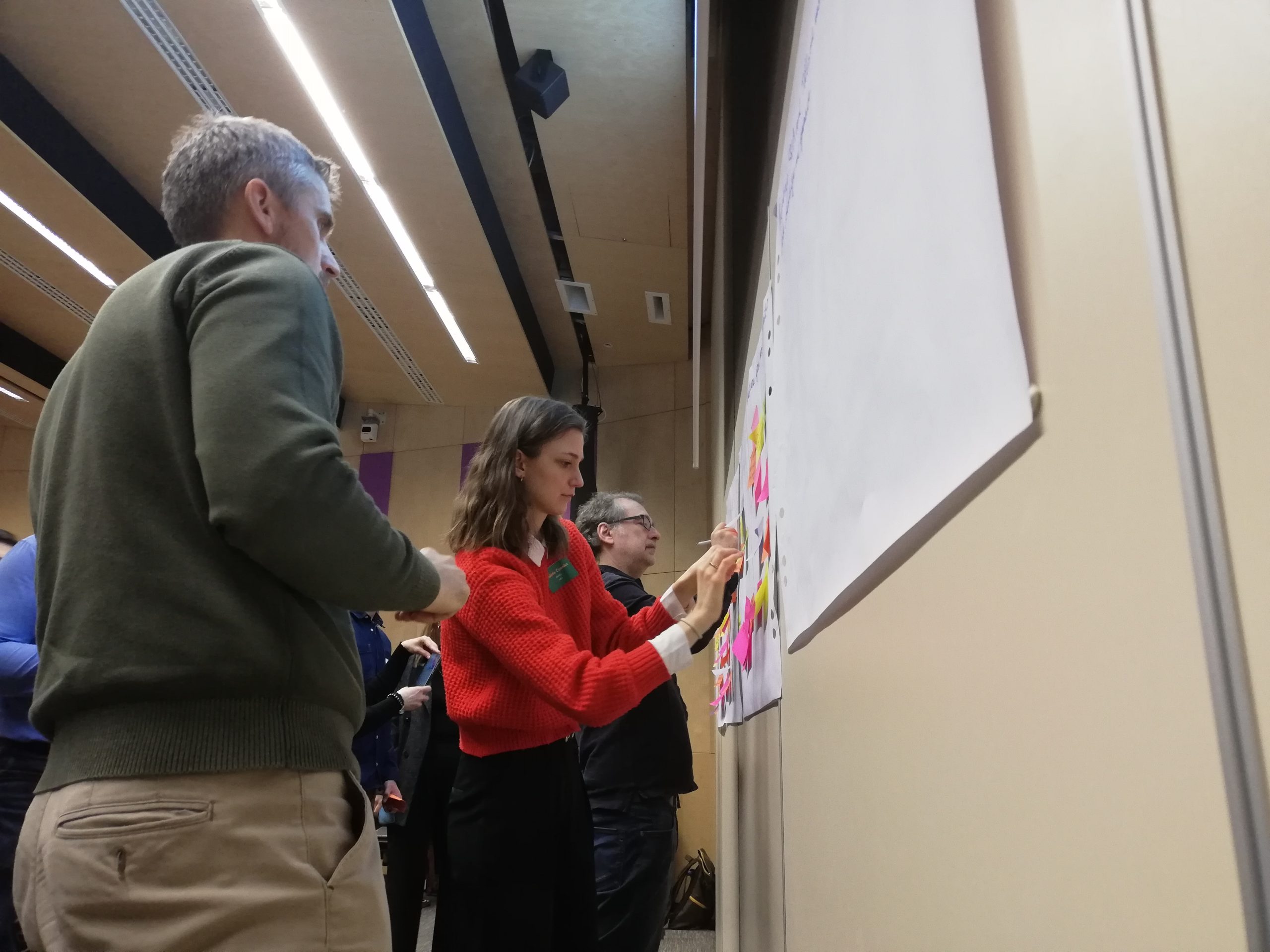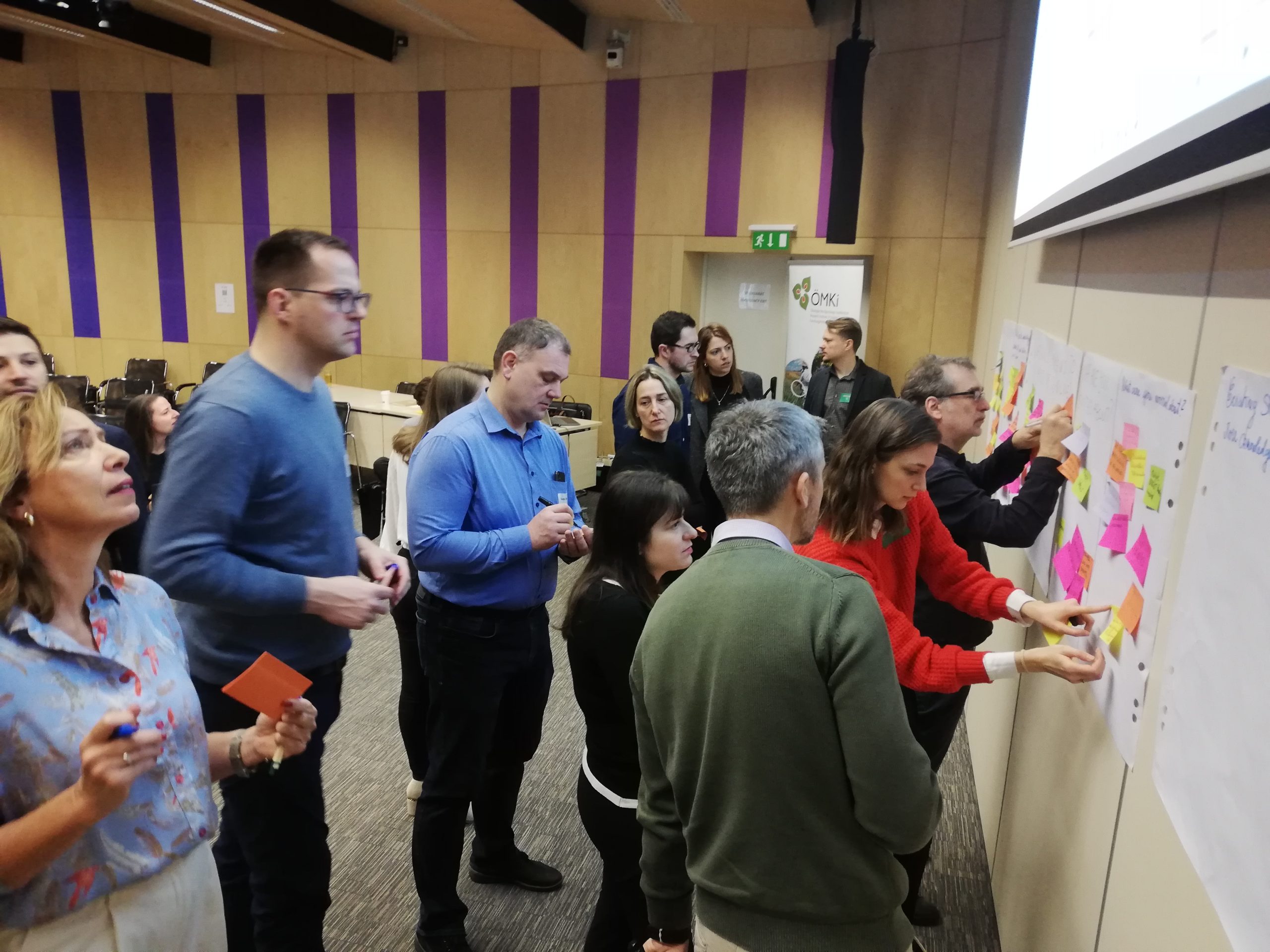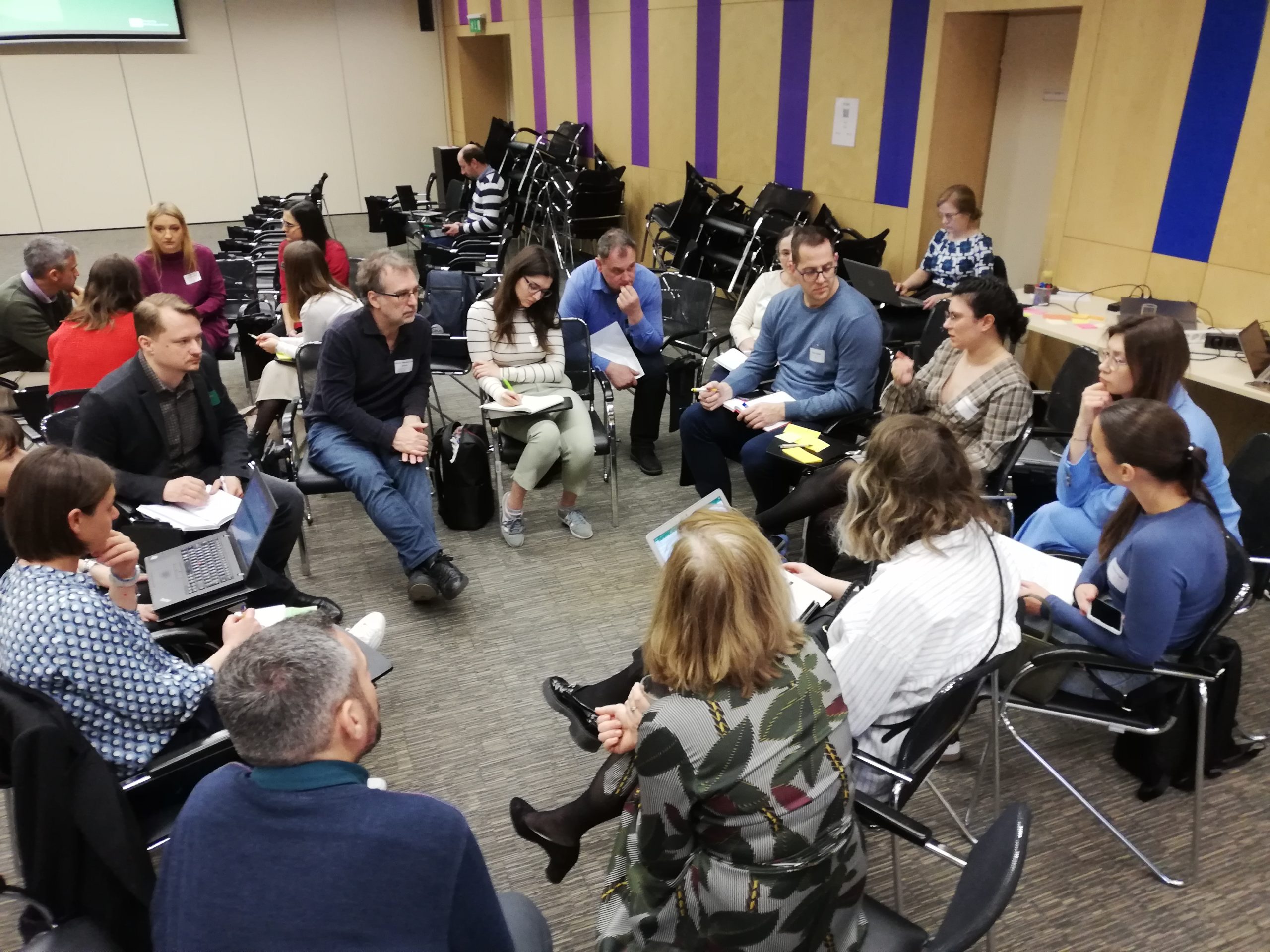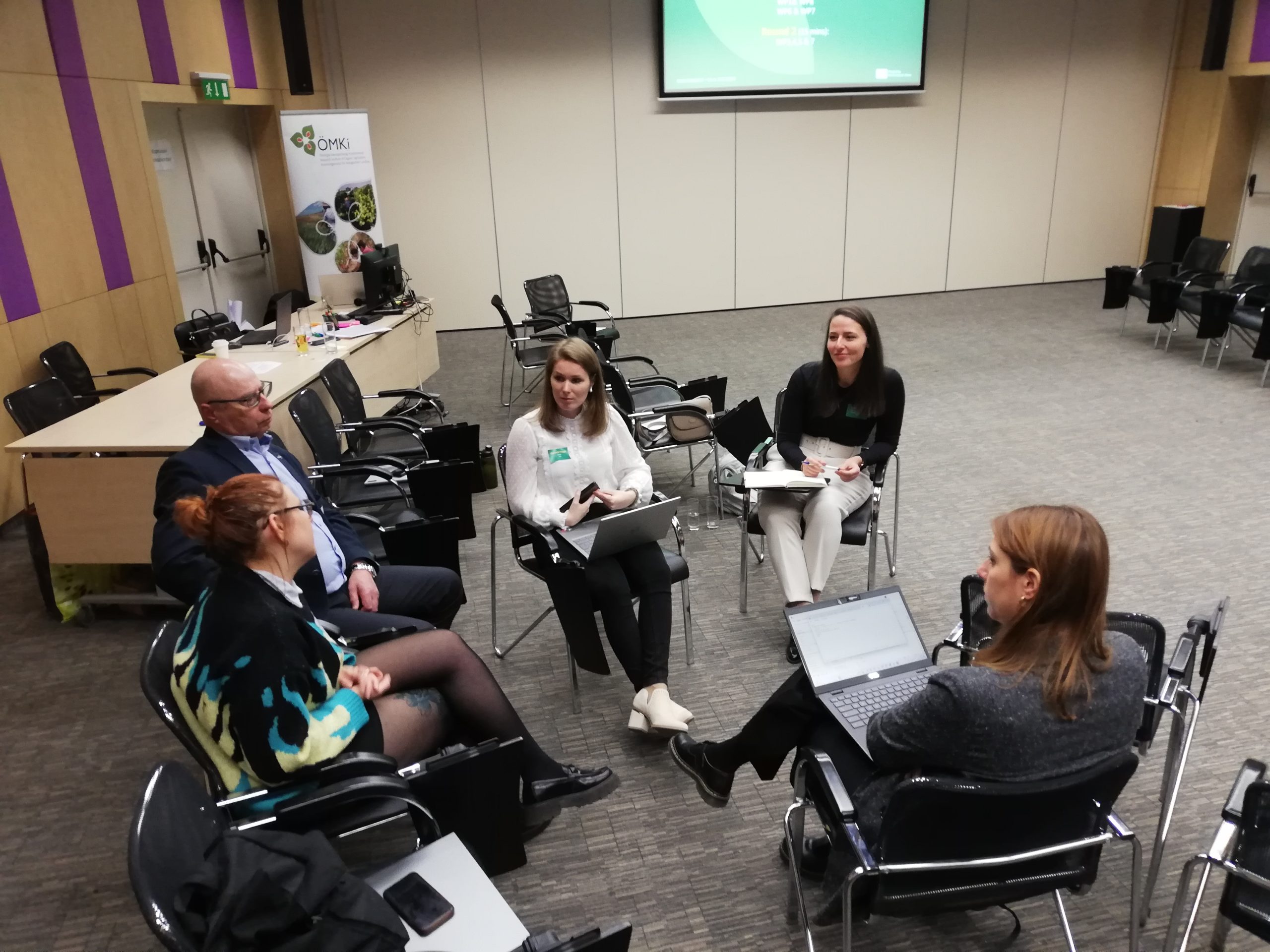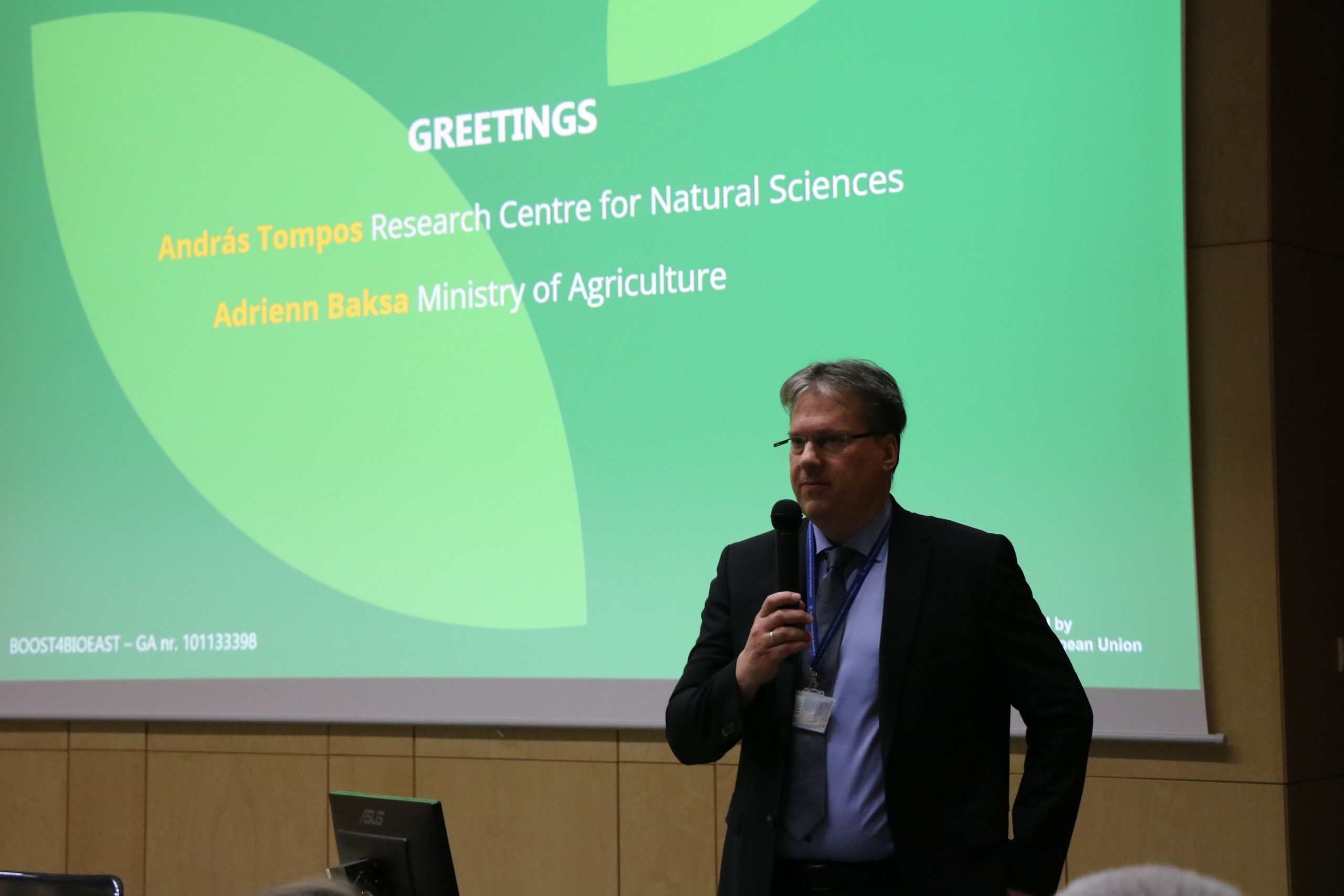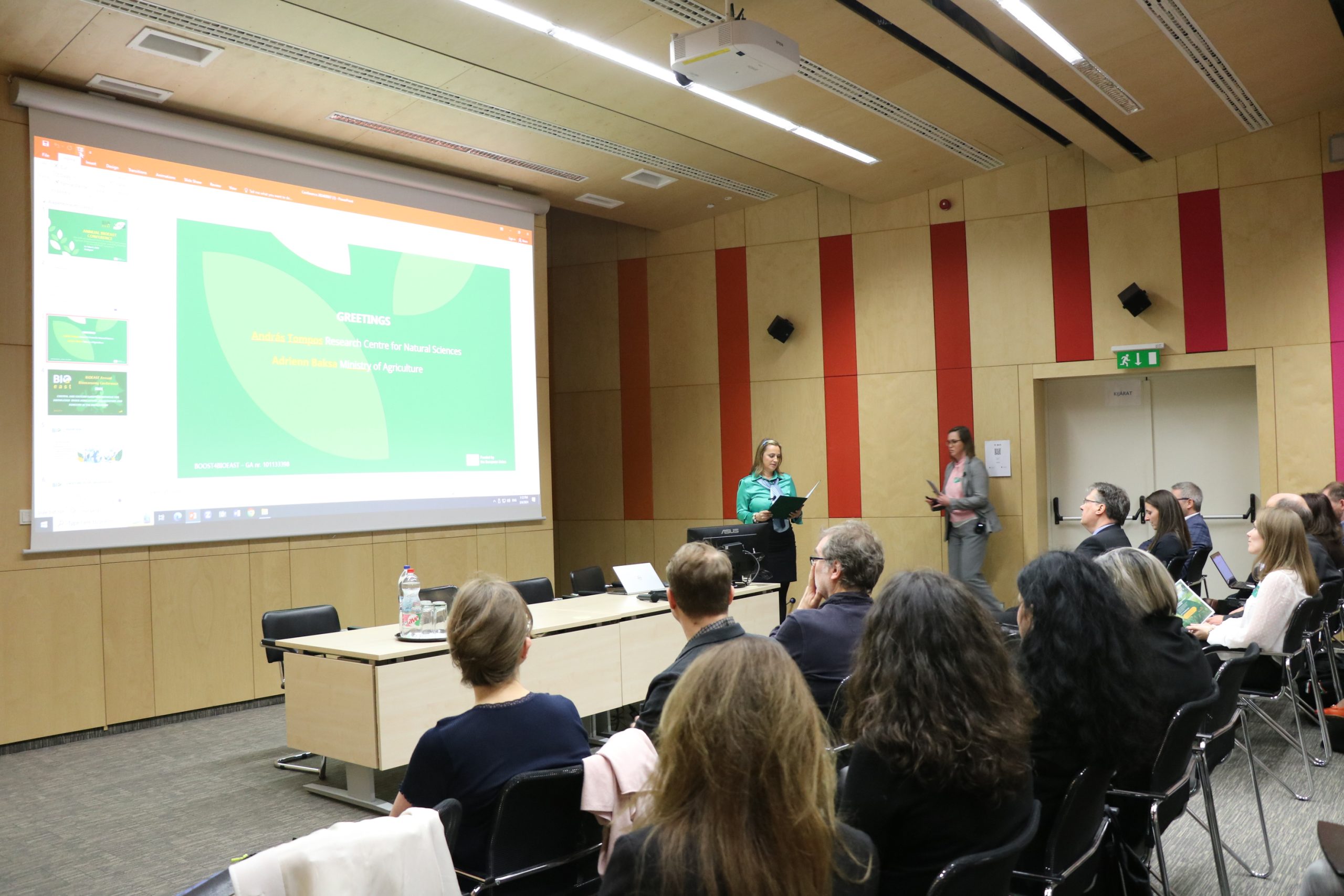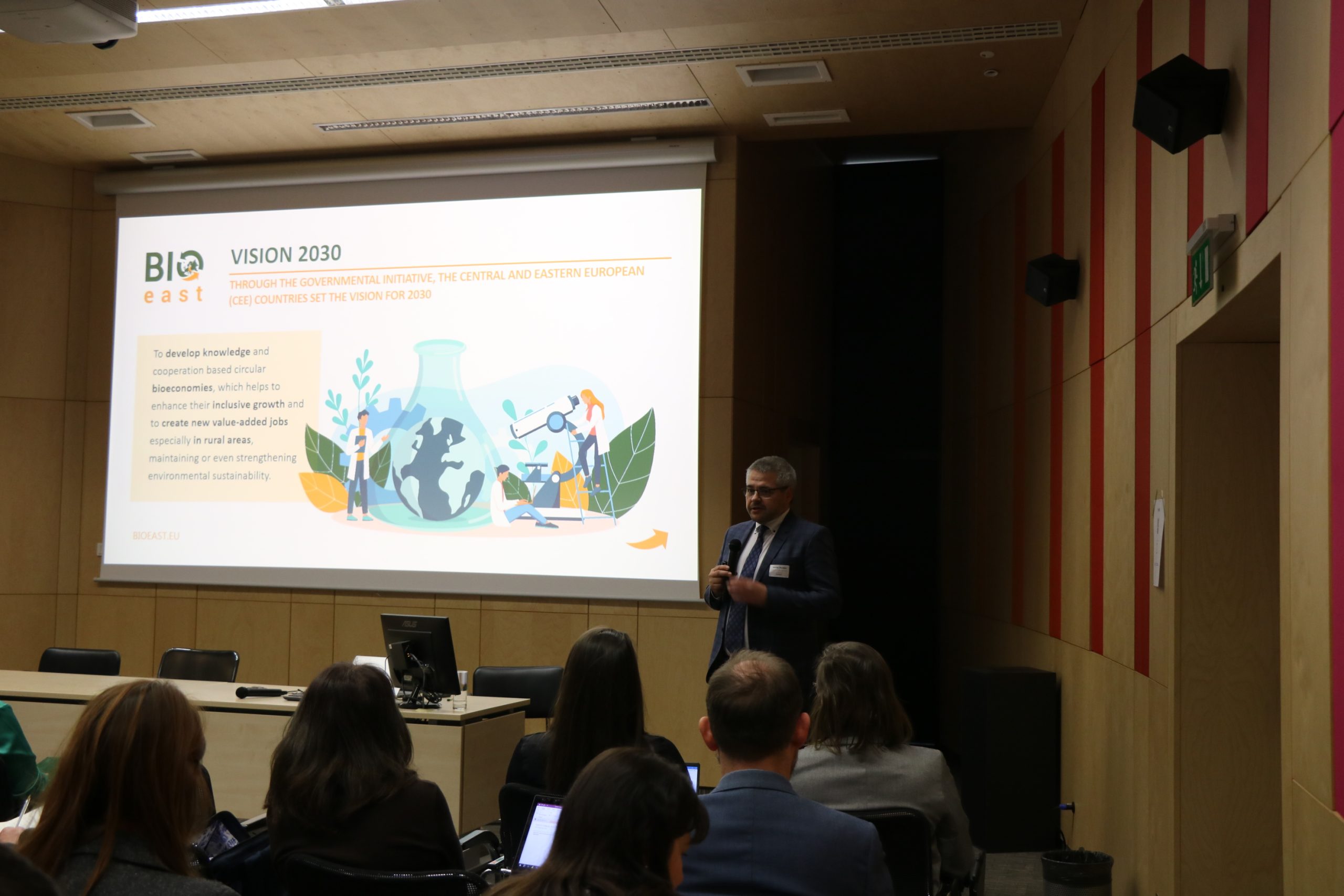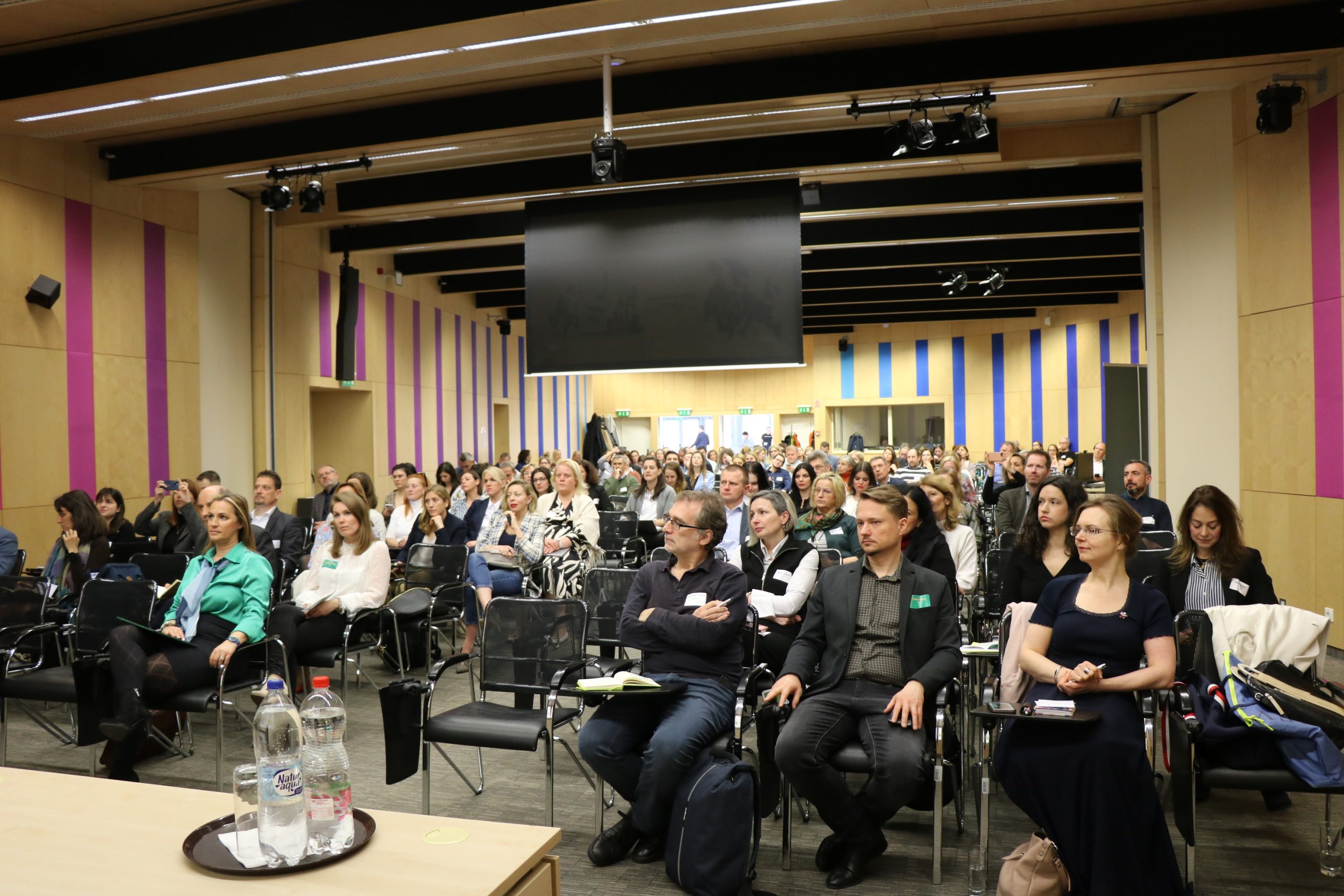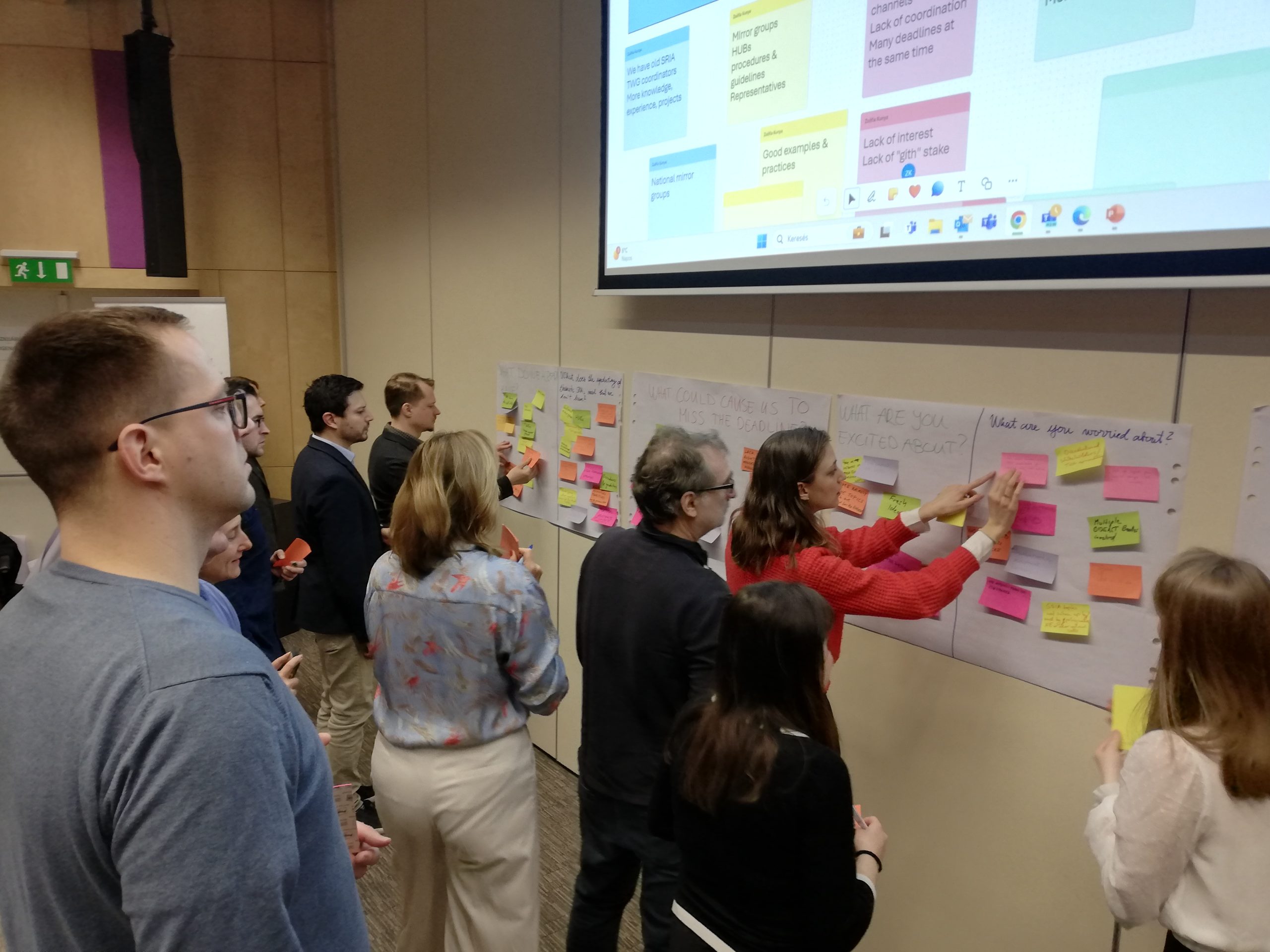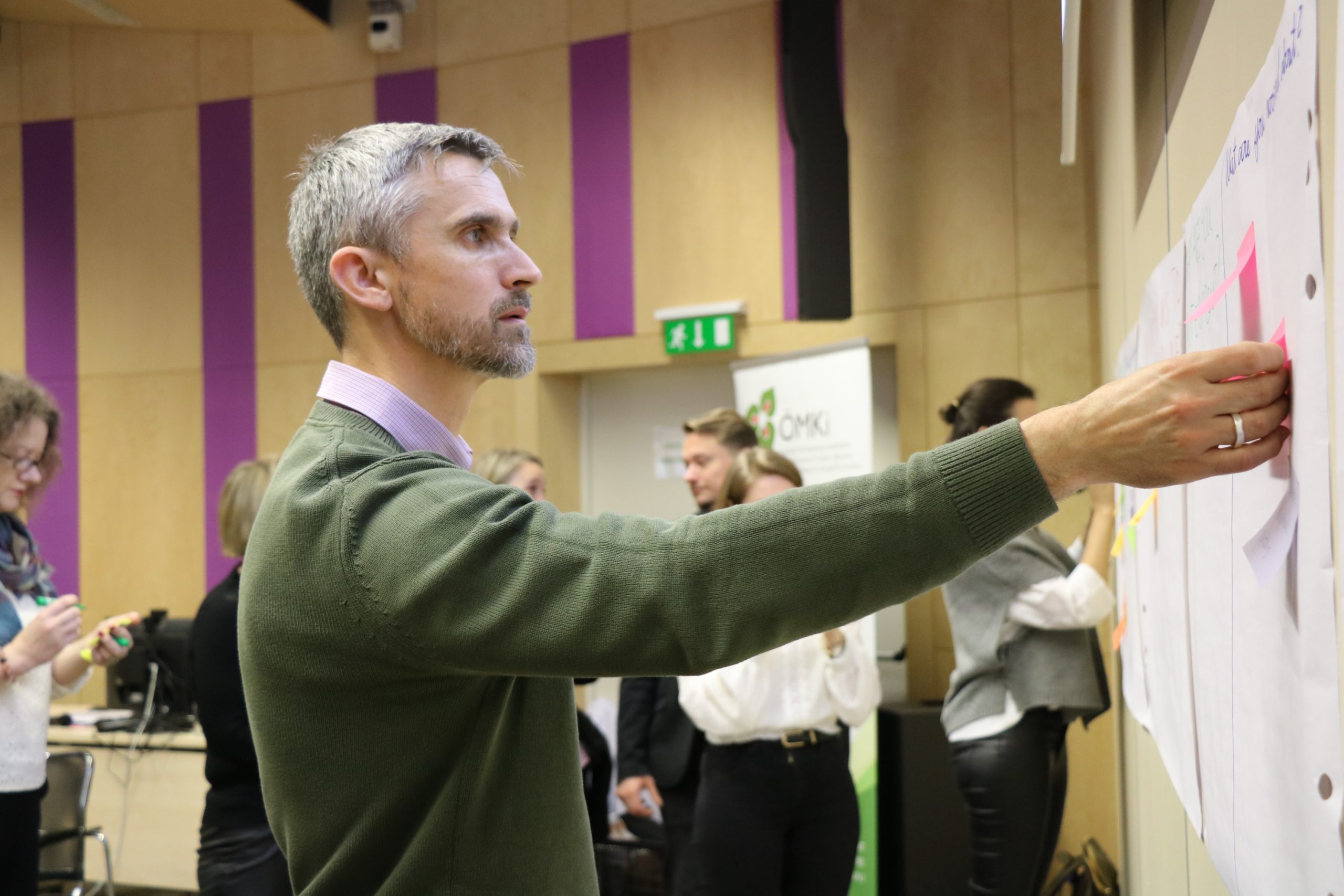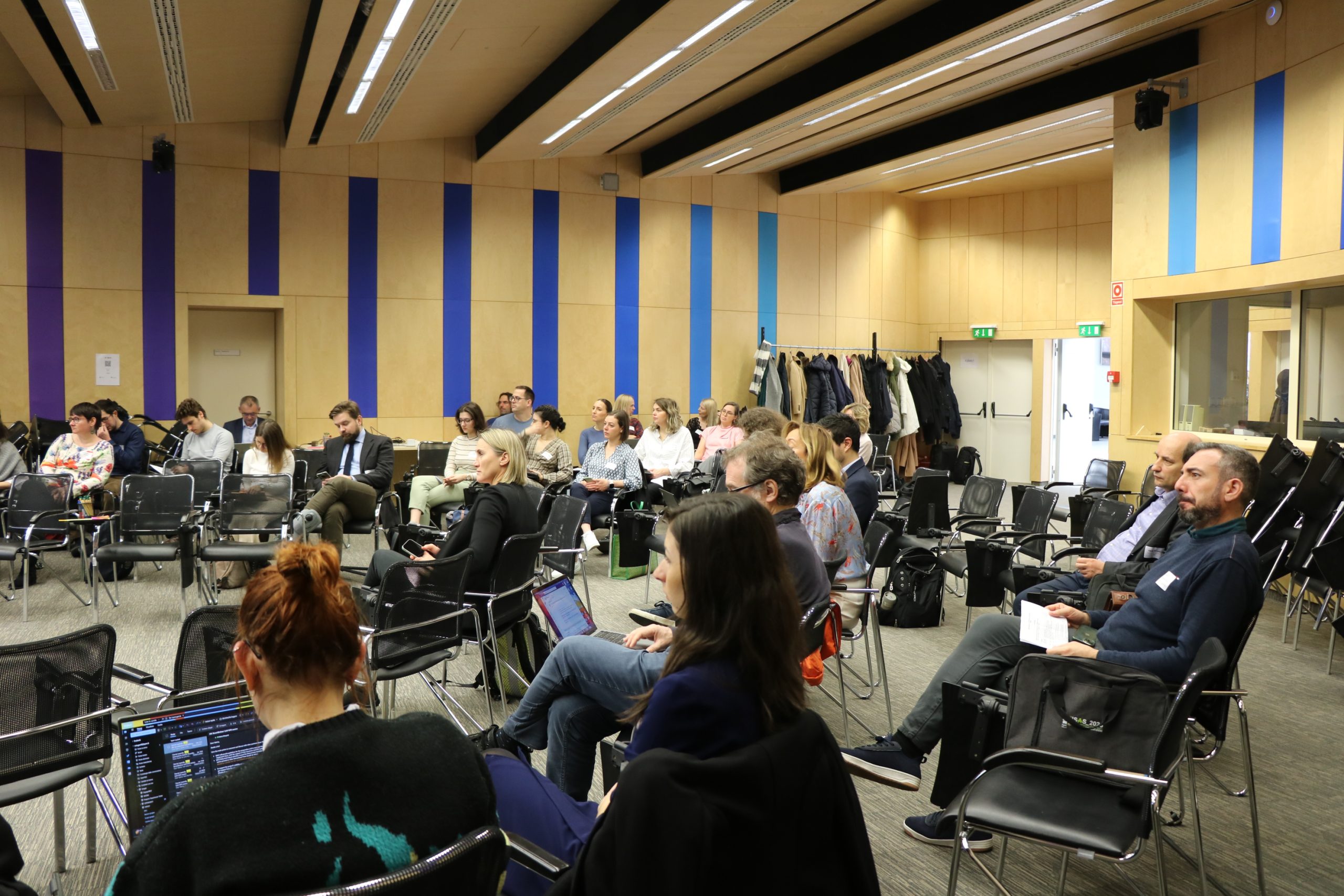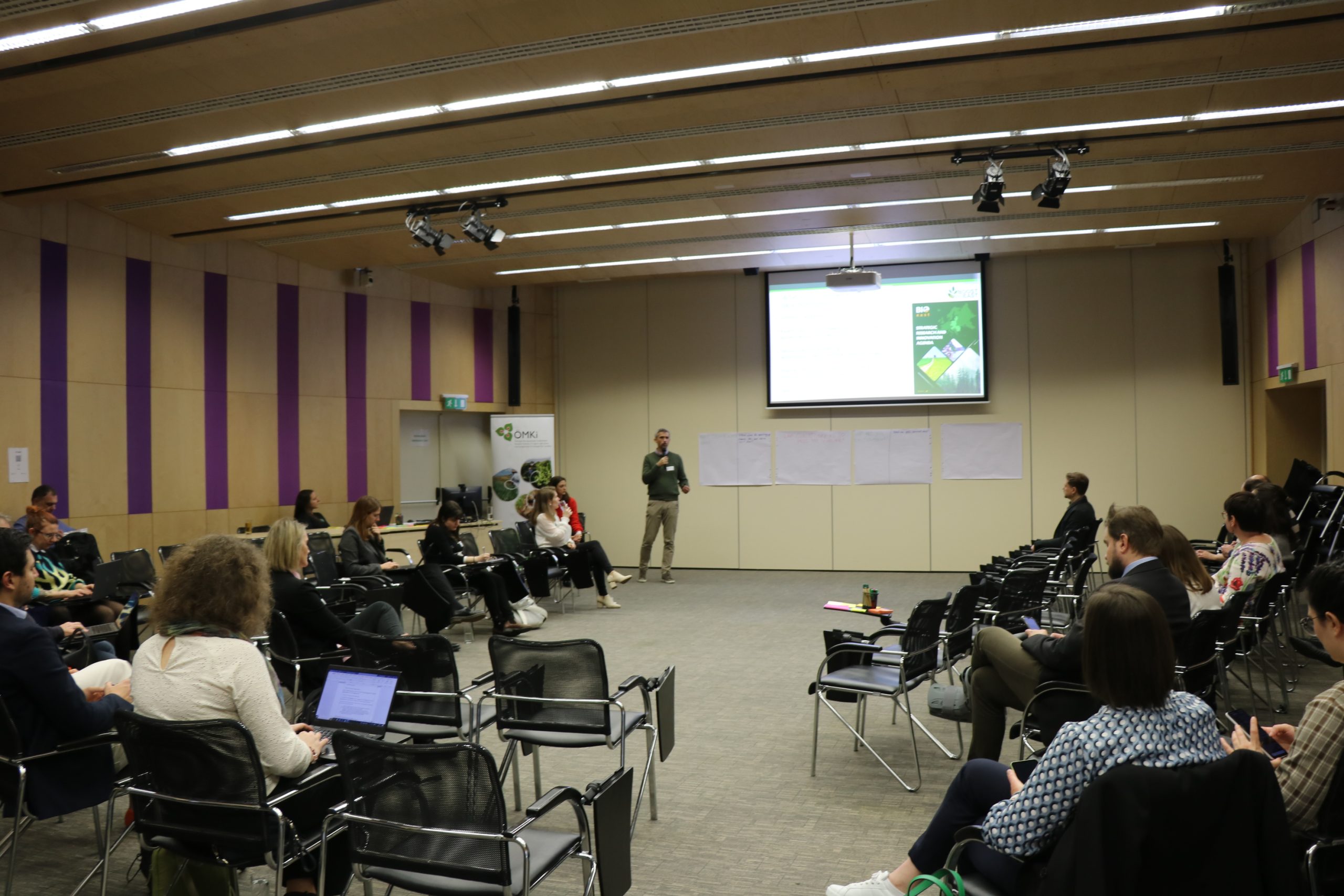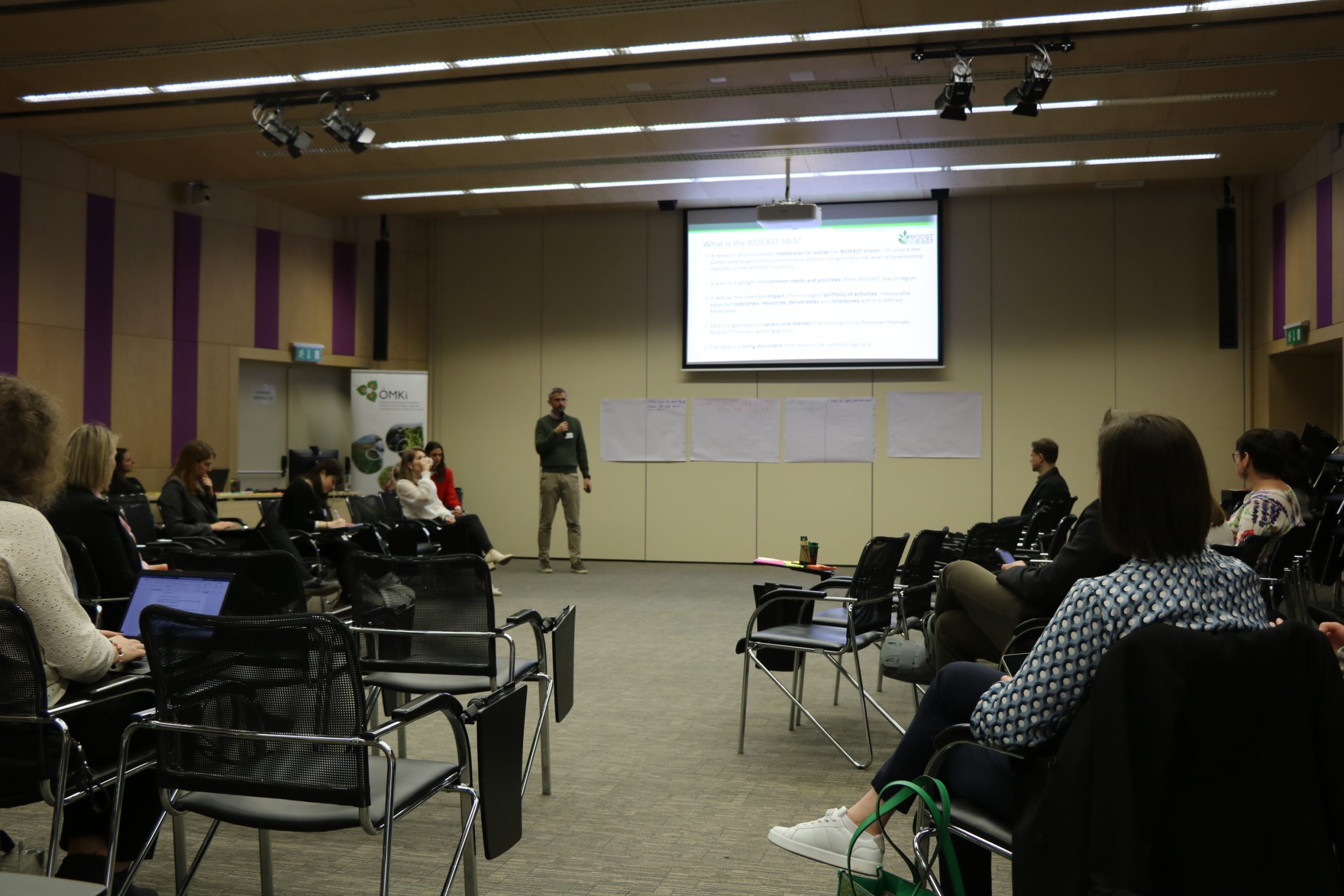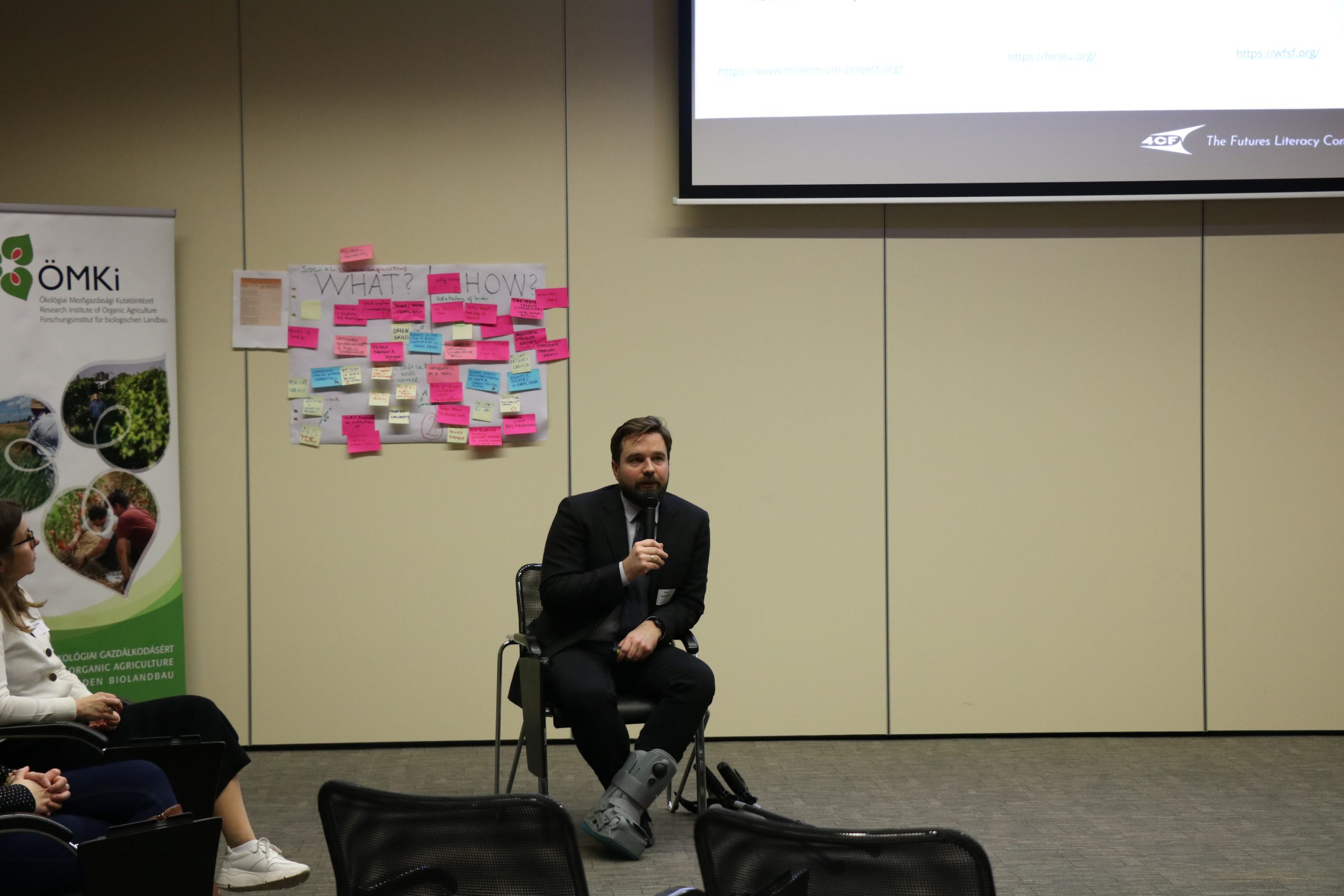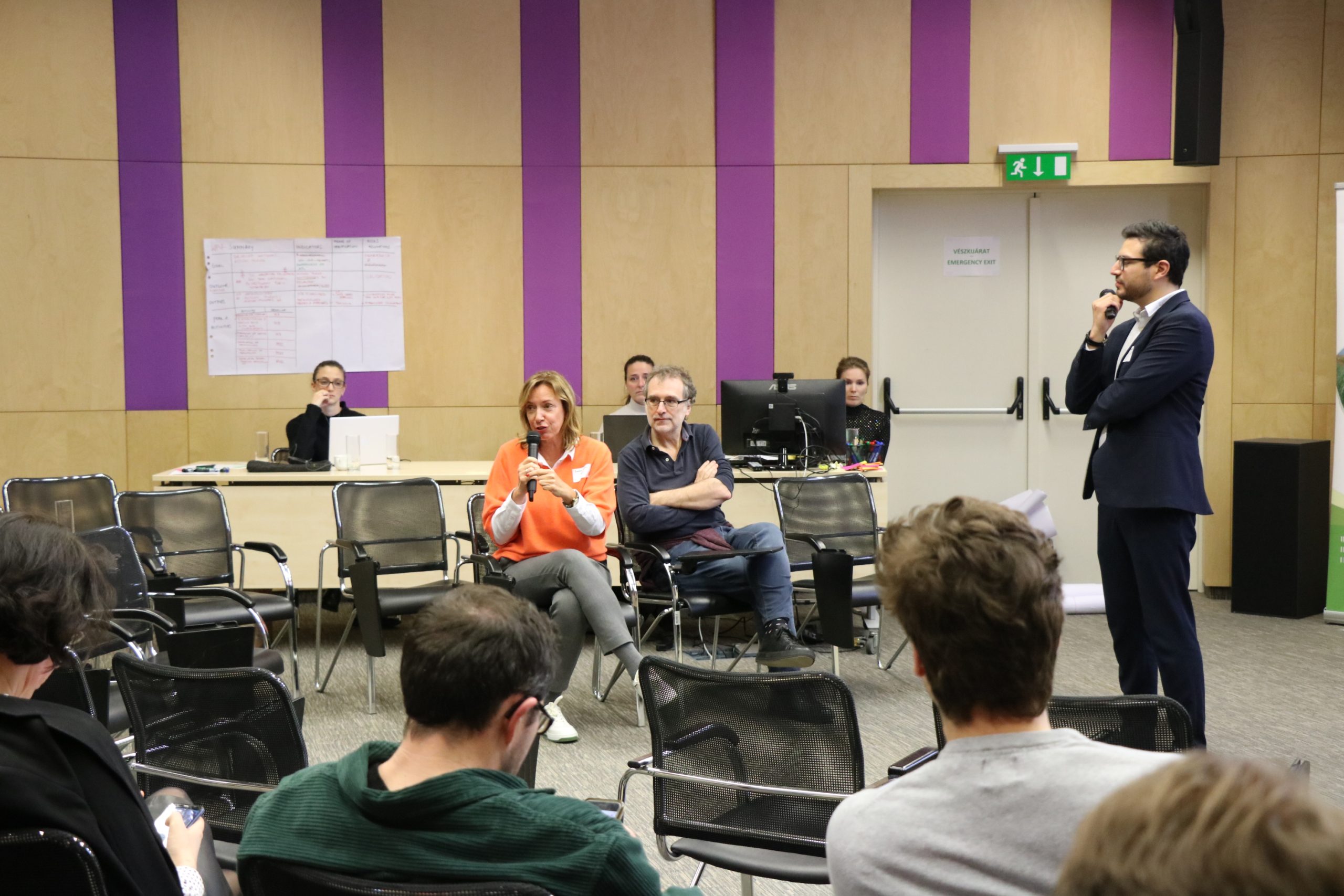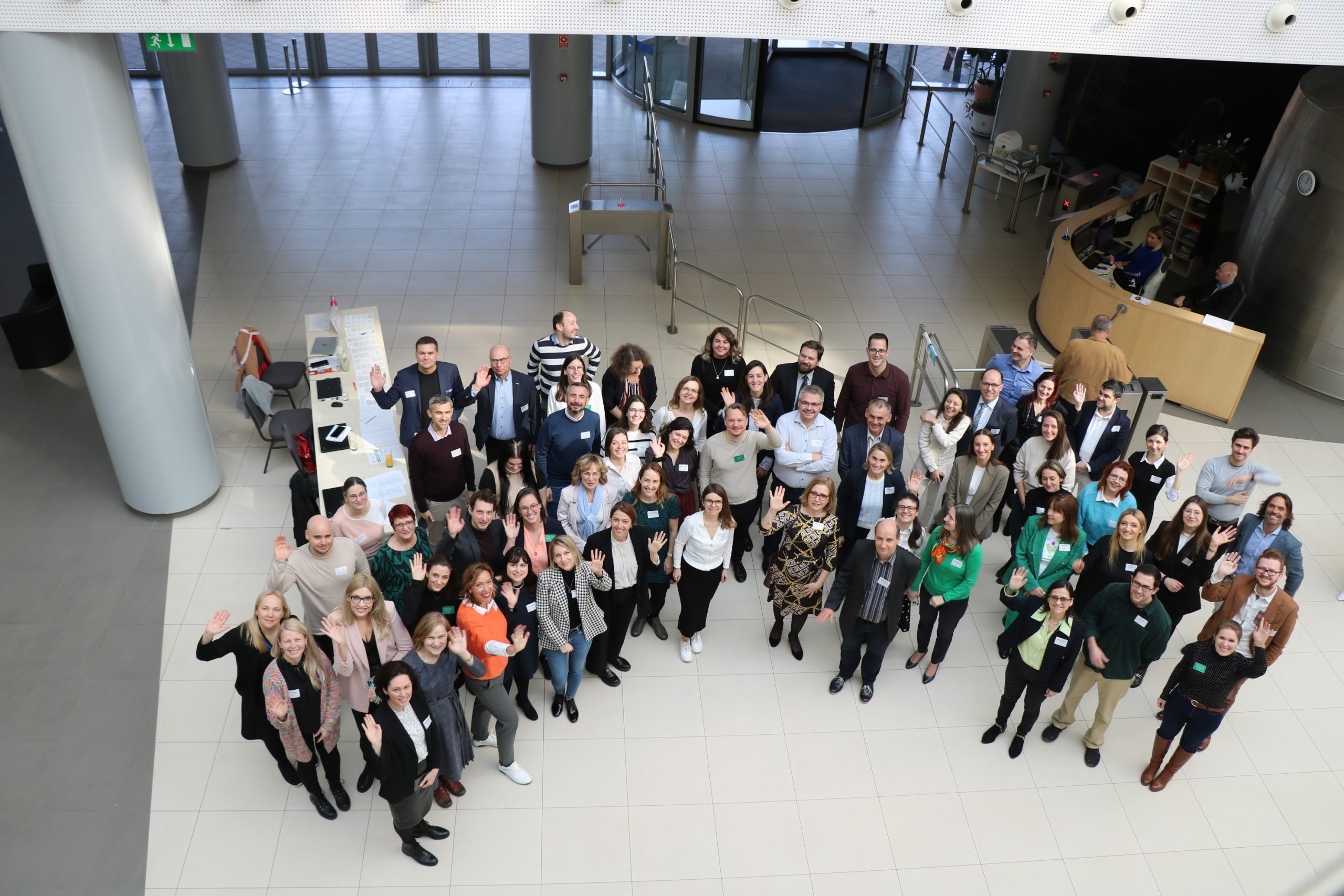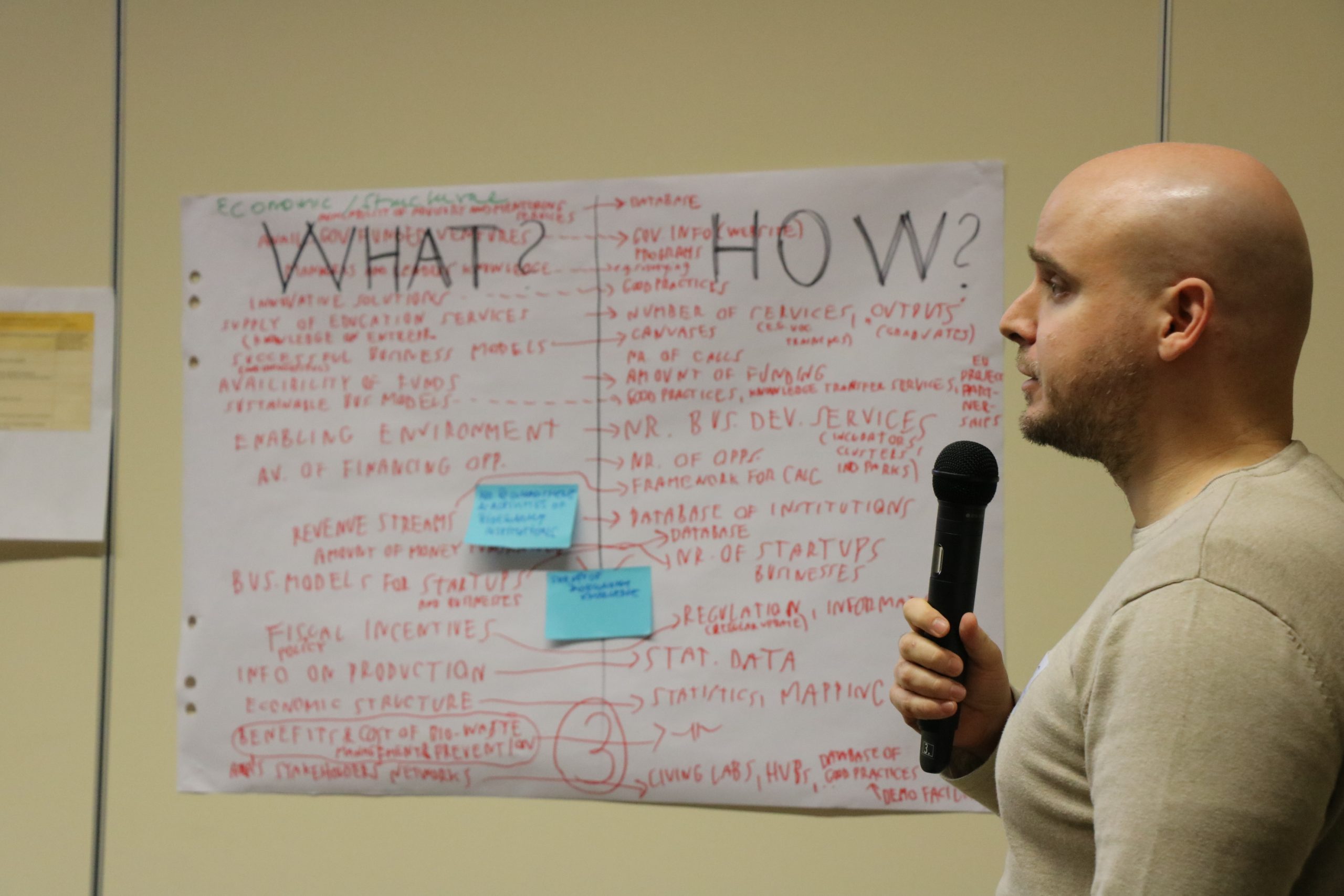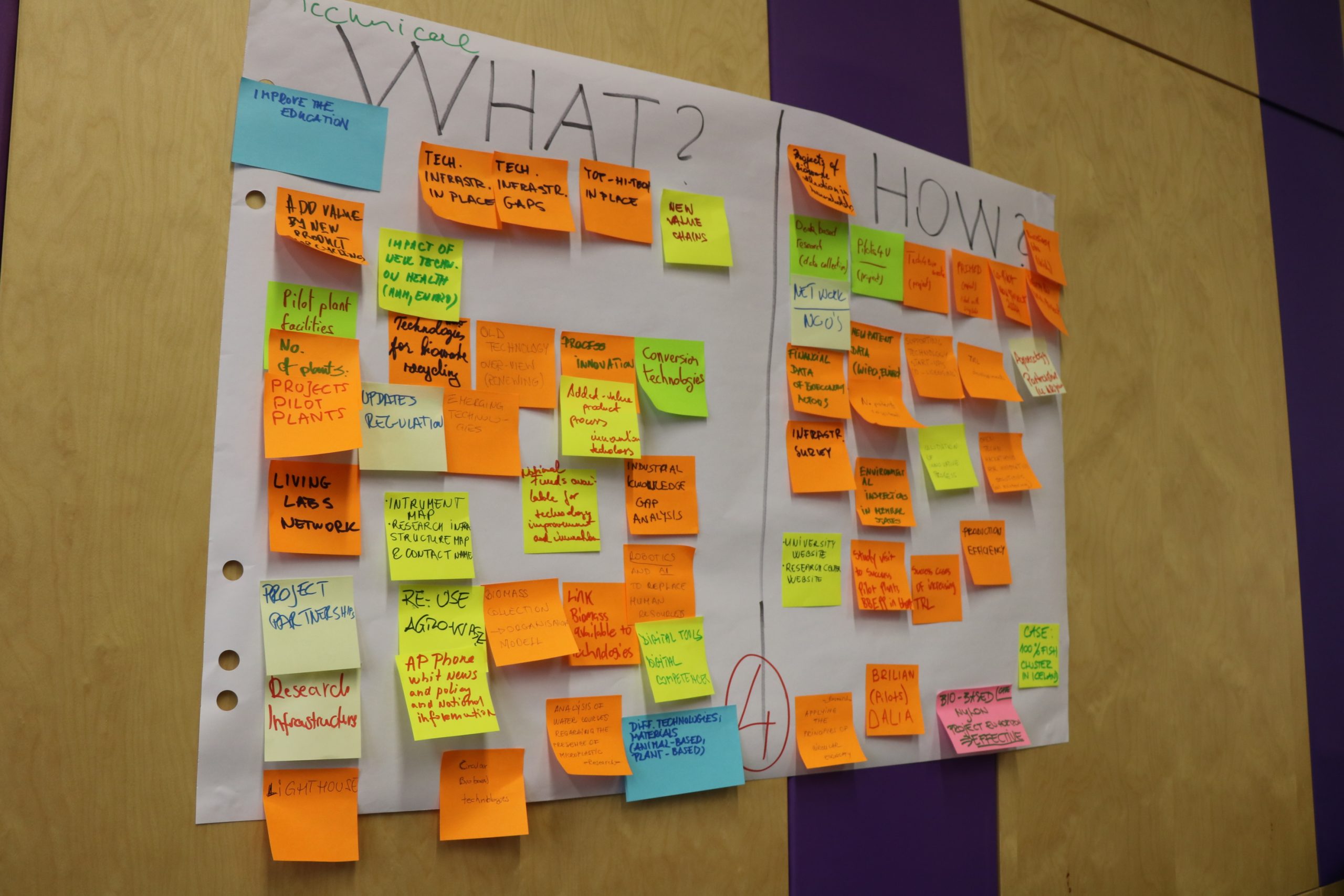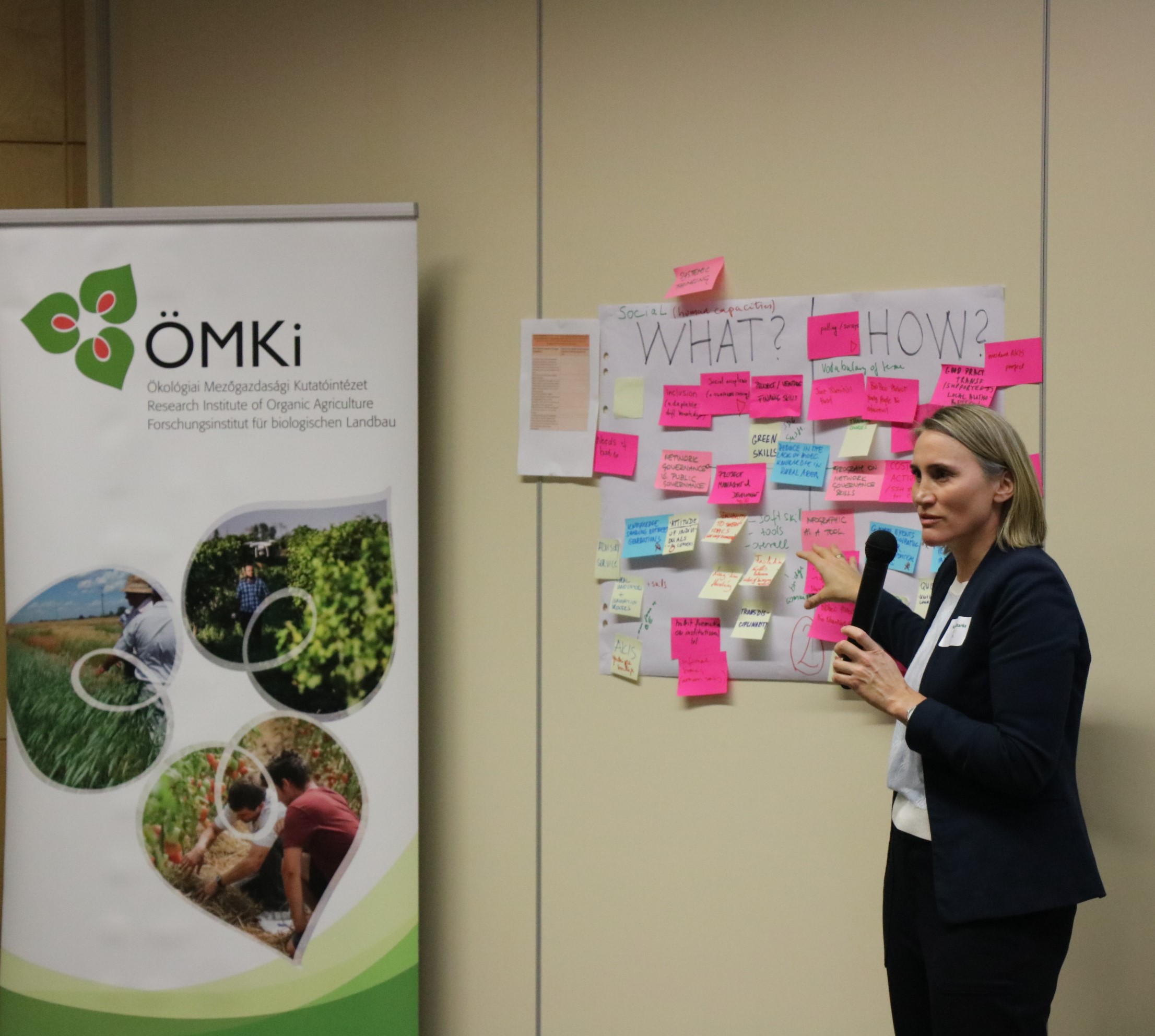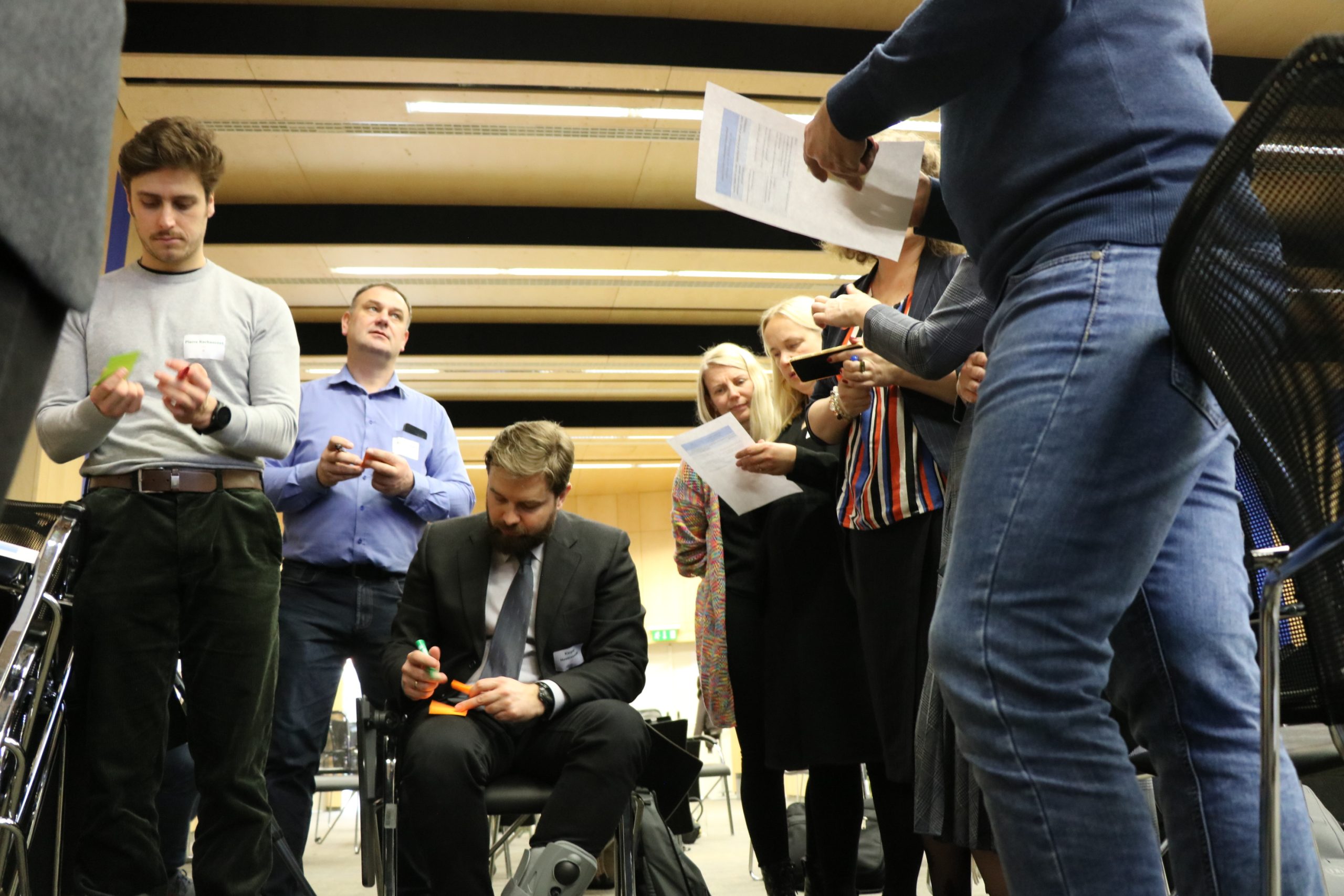What an exciting week! From March 5th to the 7th, the BOOST4BIOEAST (B4B) project Kick-Off and the Annual BIOEAST Bioeconomy Conference made Budapest the center of the bioeconomy community in the Central Eastern European and Baltic Countries.
The project already had its official kick-start on 31 January online, however the consortium was committed to meet in-person at the early stage of implementation as well to focus on the strategic planning, practical realization of main activities – namely to develop national bioeconomy action plans and the BIOEAST Strategic Research and Innovation Agenda (SRIA) – and building synergies between tasks for the first year. Co-creation approach using different participatory methods were applied during the project meeting to arrive to a comprehensive and rich exchange and inclusion of different points of view between partners. Both national stakeholder networks (HUBs) and macro-regional Thematic Working Groups (TWGs) foresee the participation of a variety of stakeholders, and B4B is set to consider the different needs, barriers, challenges, and opportunities of the concerned actors.
Following the B4B Kick-off, the Annual BIOEAST Bioeconomy Conference took place between 6-7th March, jointly organized by the project and the BIOEAST Initiative.
The conference represented an important occasion to address pivotal strategic, policy-related, economic and political challenges concerning the macro-region’s goal of implementing a transition towards a sustainable, circular and socially fair bioeconomy by facilitating the creation and expansion of BIOEAST HUBs. Over 130 participants attended the conference from the BIOEAST macro-region across all bioeconomy related fields from research, public administration, primary sector, and industry making the event a great opportunity for networking, too.
The conference was opened by Dr. András Tompos, director of Institute for Material and Environmental Chemistry of the Research Center for Natural Sciences and Dr. Adrienn Baksa, head of department for agricultural modernization of the Hungarian Ministry of Agriculture.
The keynote speaker of the conference, Dr. Barna Kovács, secretary general of the BIOEAST Initiative took stock of the Initiative’s results since 2016 and rolled out the new BIOEAST agenda for 2024 onwards explaining: “ In light of the multiple crises we experience in Europe, from COVID19, the war in Ukraine to weather extremities (like unprecedented heatwaves), there is an opportunity in rethinking the role of Central Eastern European and Baltic countries, including Western Balkan to contribute to the management of this critical period in the EU. Therefore, the BIOEAST countries should take the opportunity to build up an R&I driven joint programming structure (BIOEAST Partnership) that aims to build a bridge between Eastern European countries and other parts of the EU to secure knowledge transfer for sustainable transition toward circular bioeconomies.”
Therefore, the creation and strengthening of national expert communities (BIOEAST HUBs) at the national level is an important preparatory step for the BIOEAST Partnership as they will represent national bioeconomy innovation ecosystems that support collaboration and knowledge transfer across the Partnership countries. Korinna Varga (Hungarian Research Institute of Organic Agriculture) gave an overview of the B4B project aiming to support the BIOEAST Initiative in its goals to facilitate the development of national bioeconomy action plans and BIOEAST SRIA. María Beatriz Rosell (Geonardo) presented the CEE2ACT project having similar activities and therefore, close collaboration is foreseen with B4B when creating the national bioeconomy stakeholder communities.
Inazio Martinez, coordinator of Bioregions Facility at the European Forest Institute, talked about the role of stakeholder networks in bioeconomy transition building on the good practices and experiences of the Network of European Regions for Innovation in Agriculture, Food and Forestry (ERIAFF). Martinez highlighted that building collaboration between stakeholders across sectors, policy domains, science-business-society and regions is essential for creating successful bioeconomy networks just as providing shared vision, economic, environmental and societial benefits for all actors involved.
Marie Kubankova, coordinator of the Czech BIOEAST HUB presented the most important lessons learnt in developing the first BIOEAST HUB in the marco-region while Dasa Beric, Head of Department for Coordination of Implementation of International Commitments in the Croatian Ministry of Agriculture explained how the Croatian bioeconomy strategy was developed though the engagement of wide range of stakeholders. The strategy aims to develop sustainable production and raw material market and increase the added value in the bioeconomy by 2035 financed by the combination of European and national funds.
Tomasz Calikowski, Policy Officer at the DG RTD Directorate B “Healthy Planet”, unit B1 “Green Transitions” talked about the recent developments in the EU bioeconomy policy, relevant research and innovation opportunites under the Horizon Europe Cluster 6 targeted for regions, while Luisa Mascia, Project Officer at the Circular Bio-based Europe Joint Undertaking (CBE JU) more specifically highlighted CBE JU’s widening strategy and its action plan and related call opportunities.
The conference also offered practical workshops aimed to involve participants in identifying the main barriers of a more active European Research Area (ERA) participation of CEE countries, good practices in stakeholder engagement in bioeconomy and on the funding and financing opportunities of bioeconomy innovation.
The BIOEAST Thematic Working Groups also had the chance to discuss with their representatives the future of their work in B4B aligned with the vision of the BIOEAST Partnership in closed sessions. The event was a perfect opportunity to identify key points (challenges, enablers, good practices, incentives, youth involvement) that support the establishment of national HUBs and foster long-term collaboration between national and macro-regional bioeconomy stakeholders.
As closure of the conference, two field trips to Hungarian biorefineries were organised to Hungrana and Pannonia Bio that represent successful case studies for the production of added value products such as bioethanol, various starch, sugar and feed products from grains.
We would like to thank all speakers and participants for offering their insights and ideas on shaping the future of the macro-region’s bioeconomy and hope to meet again next year in Bucharest, Romania.
